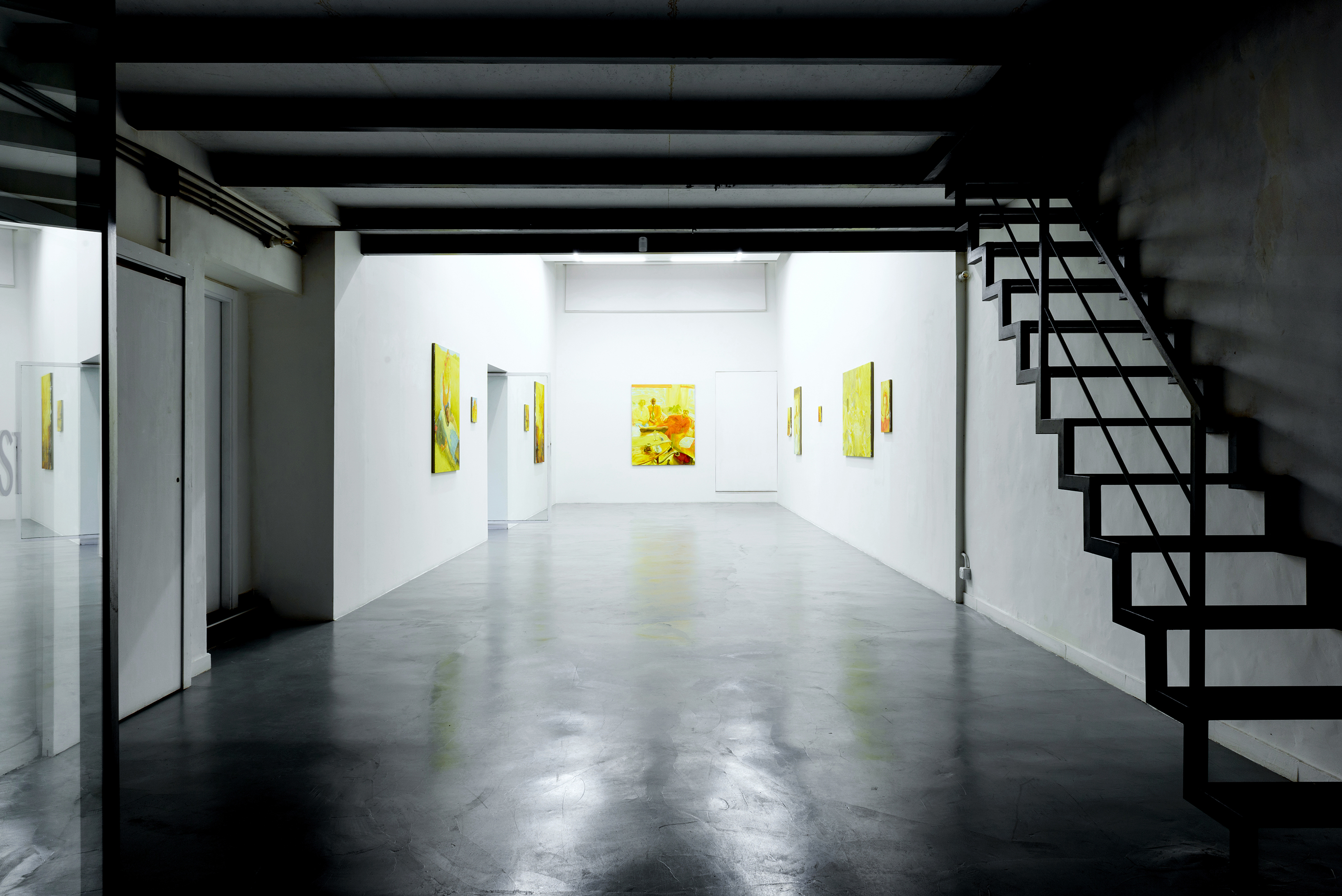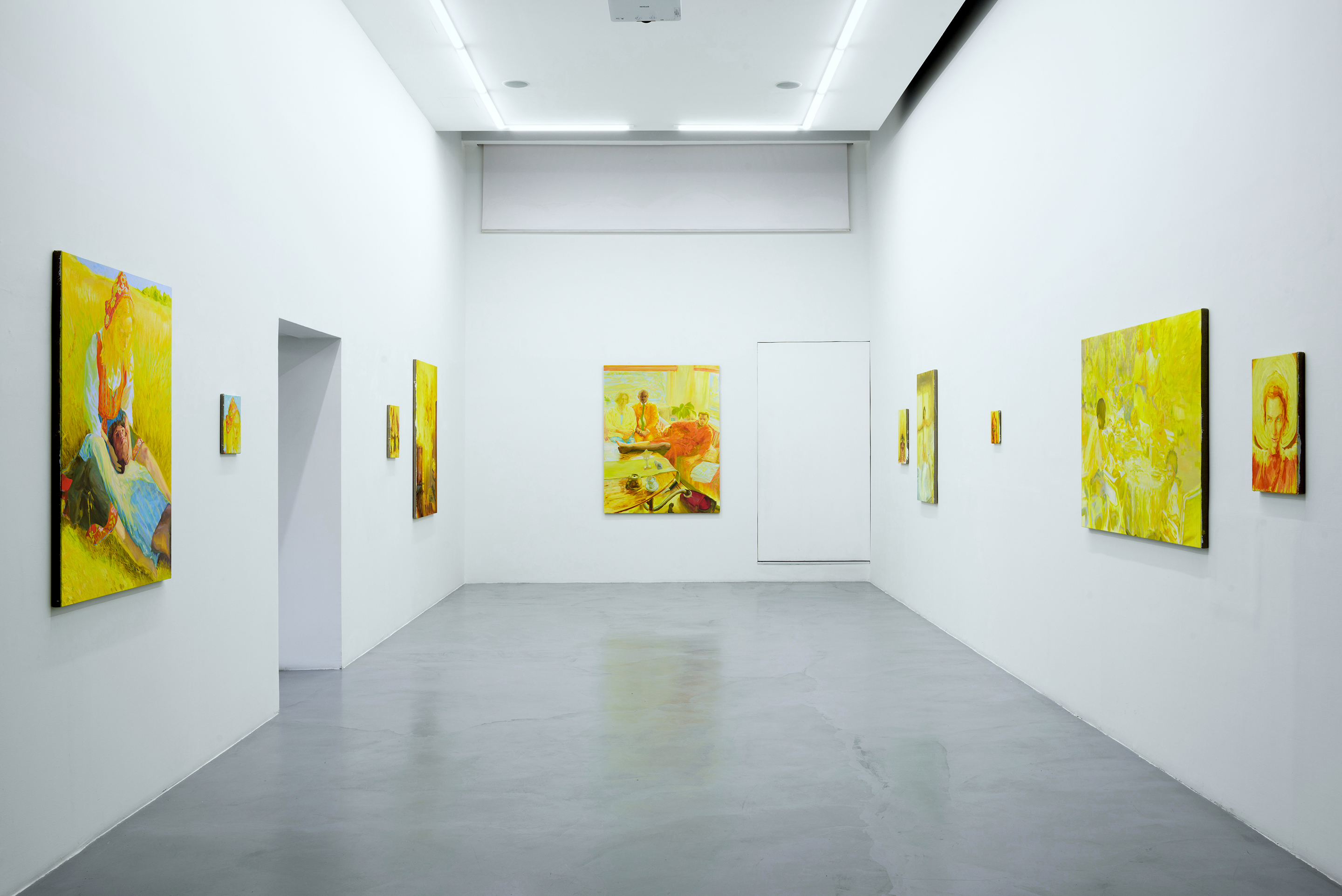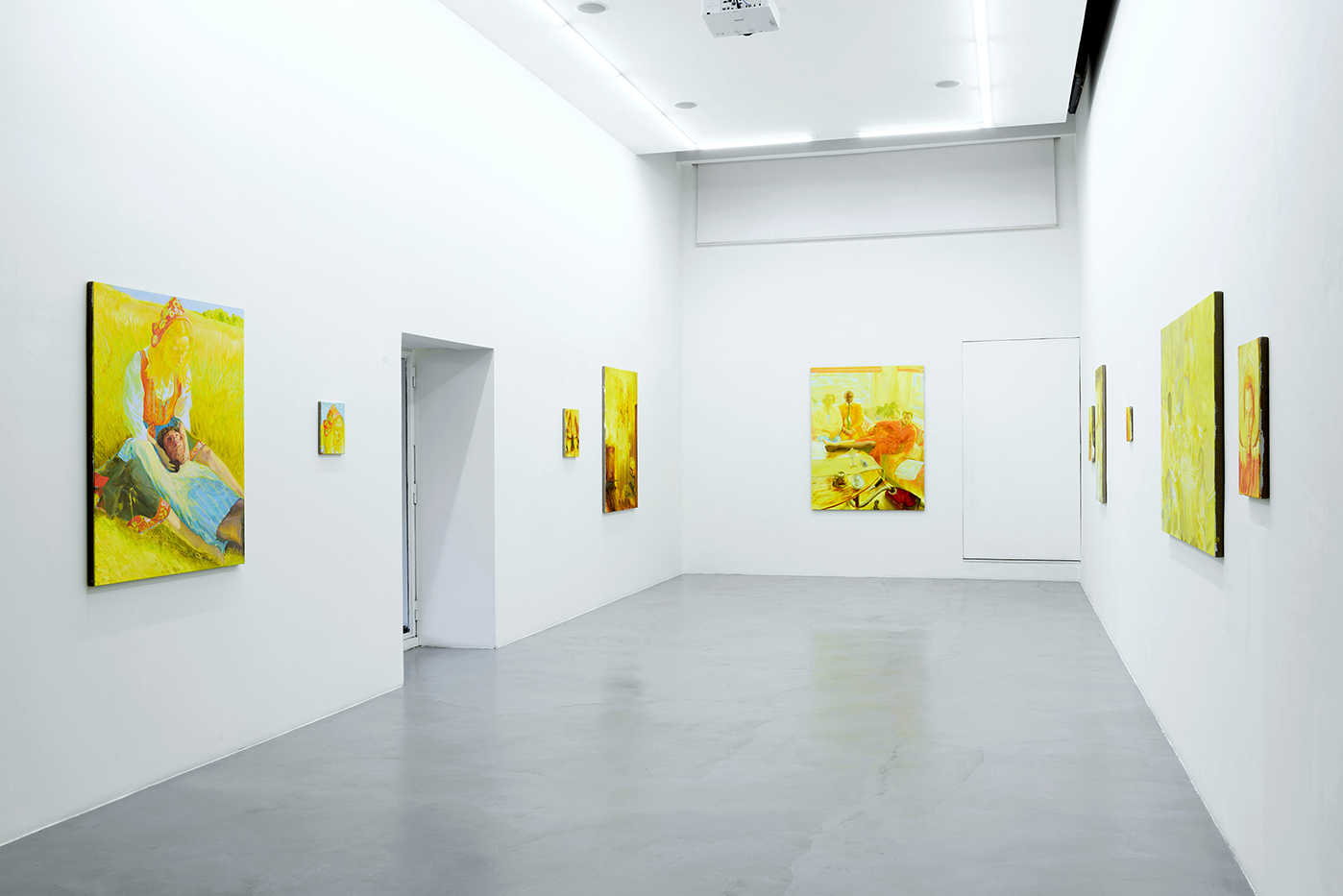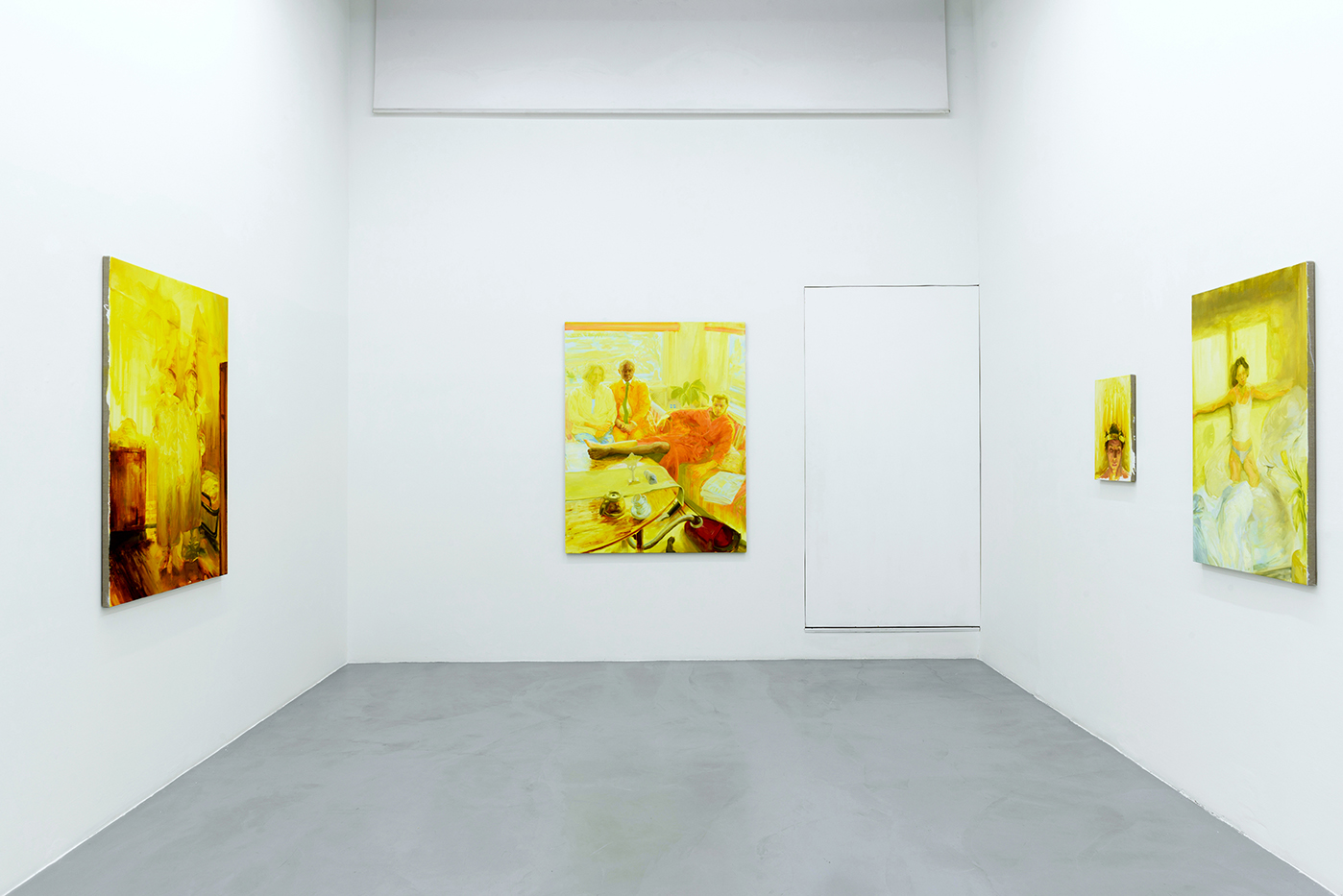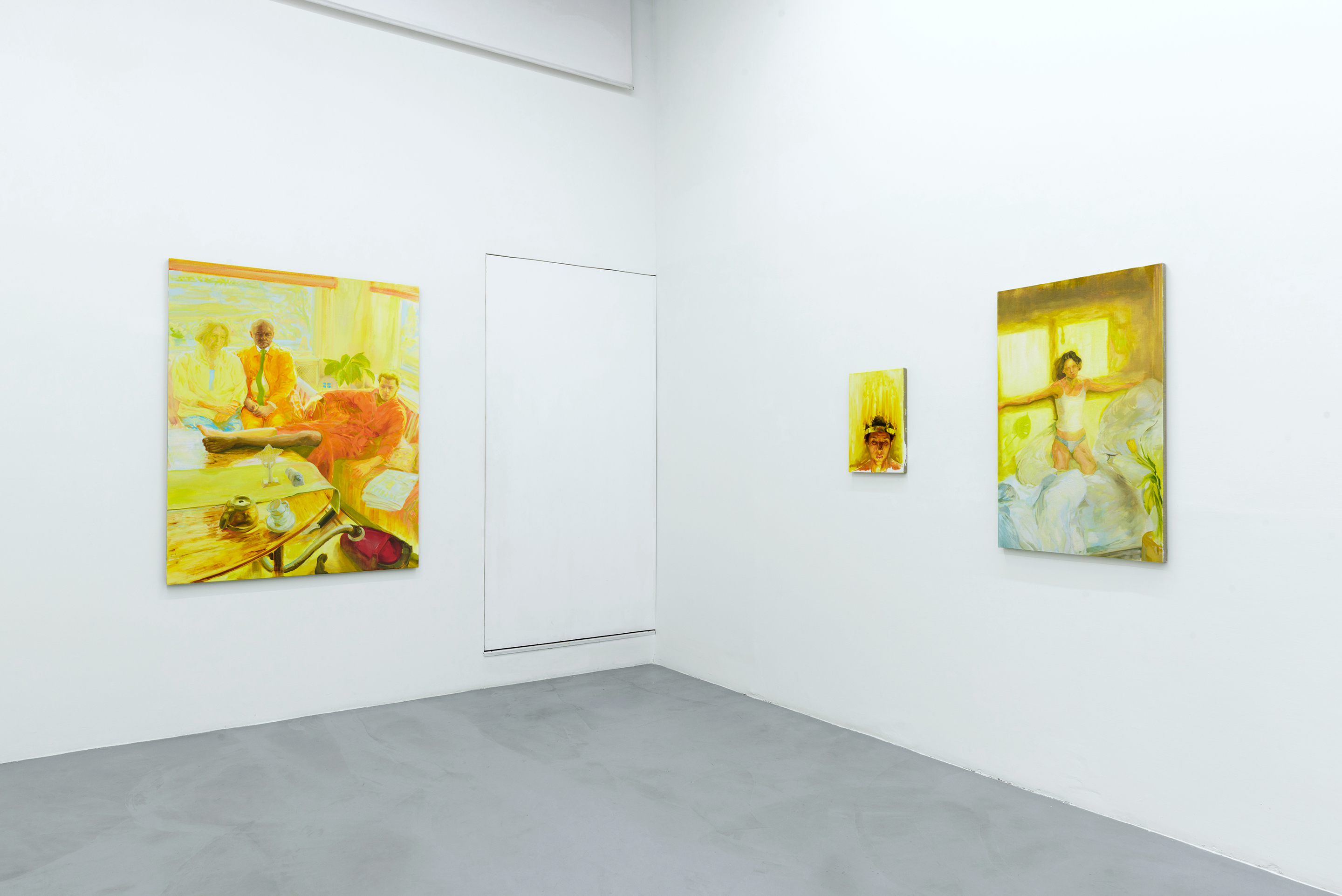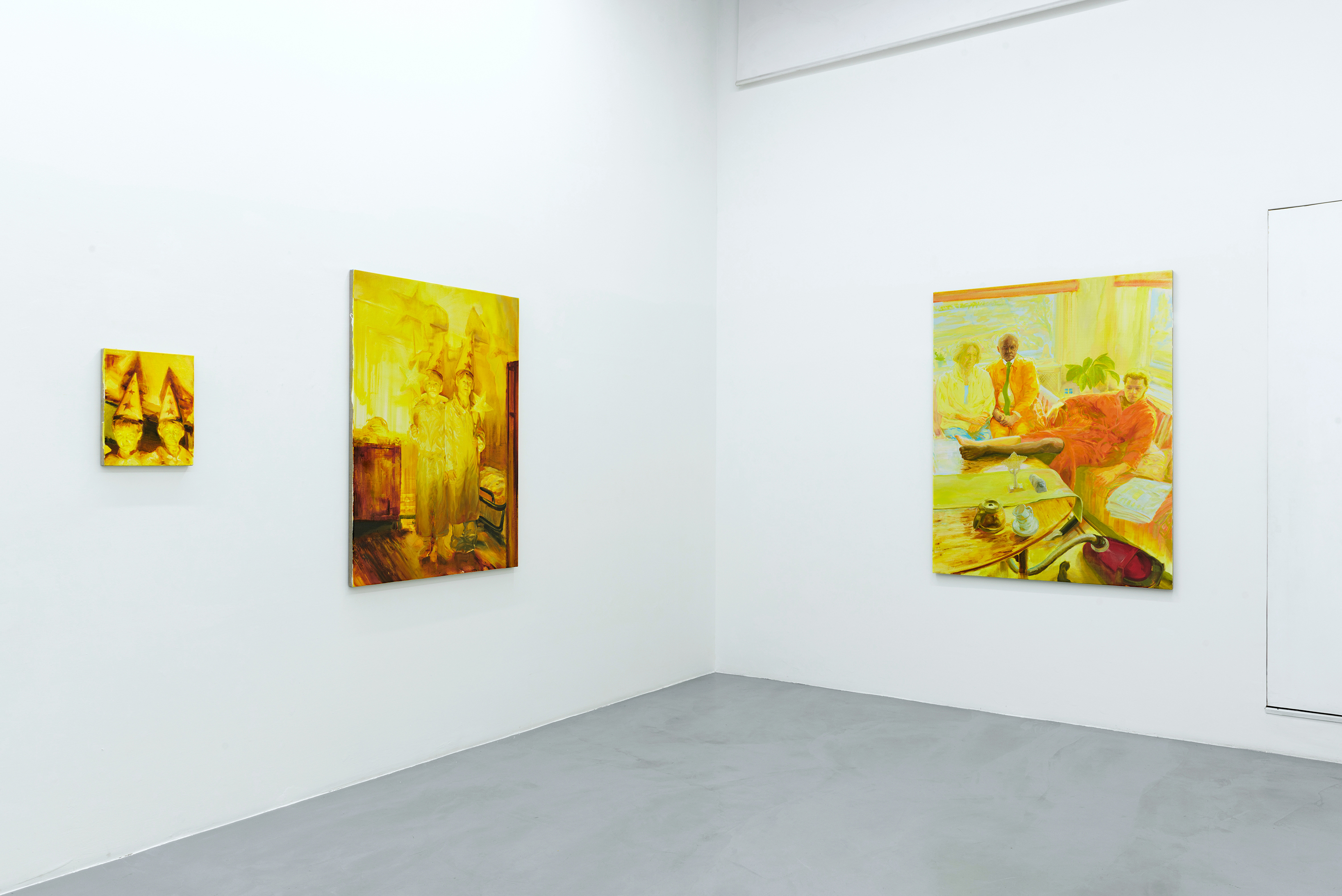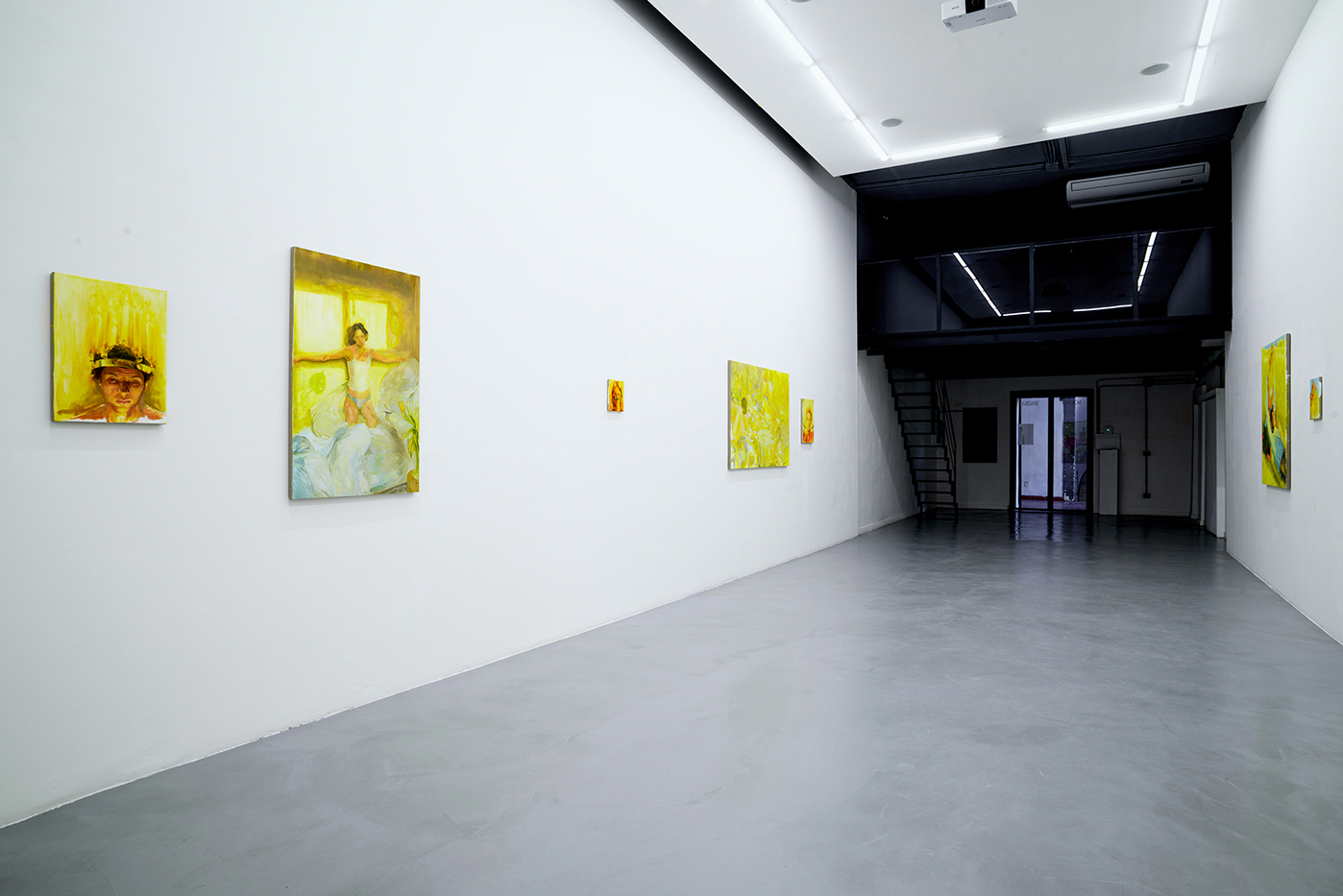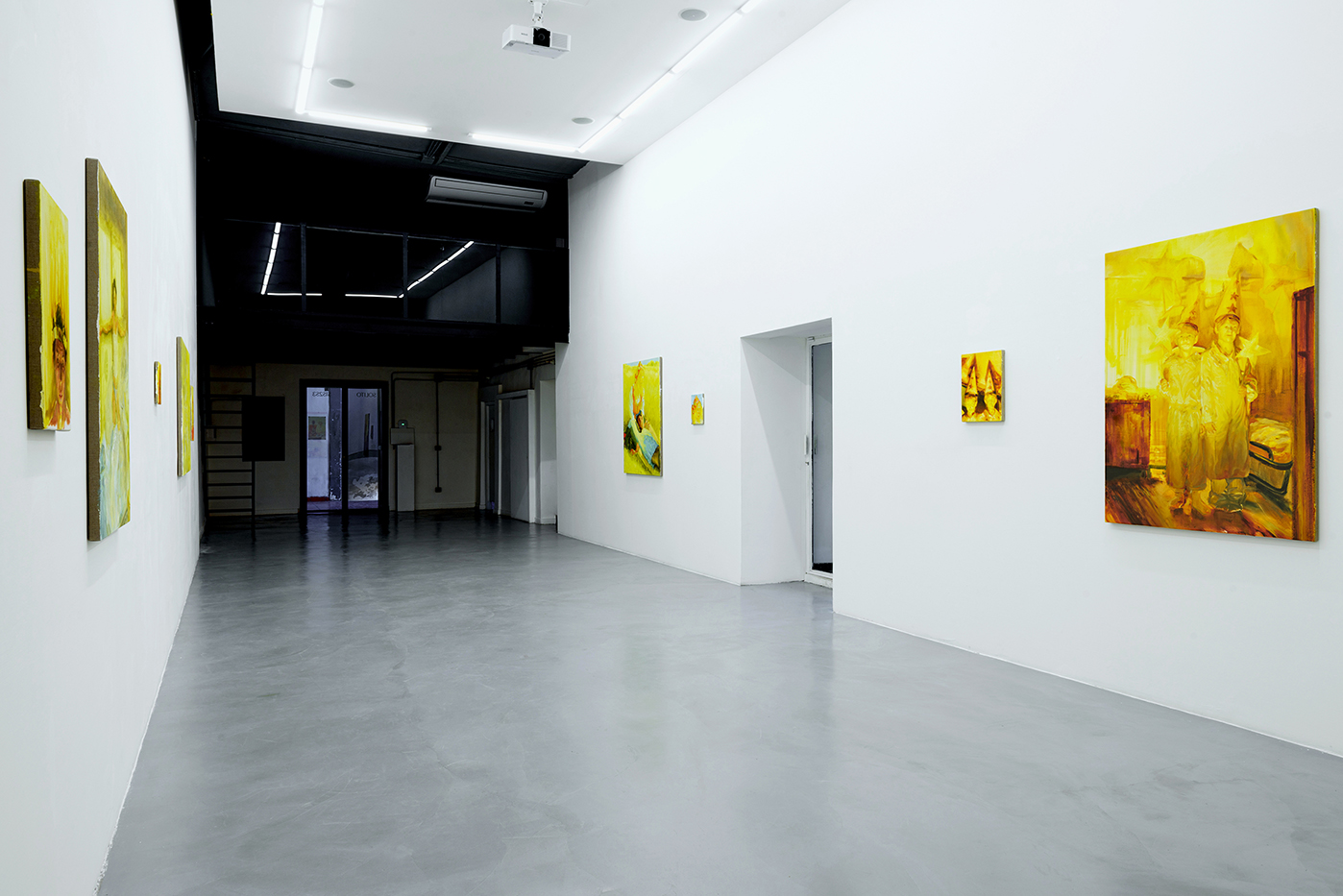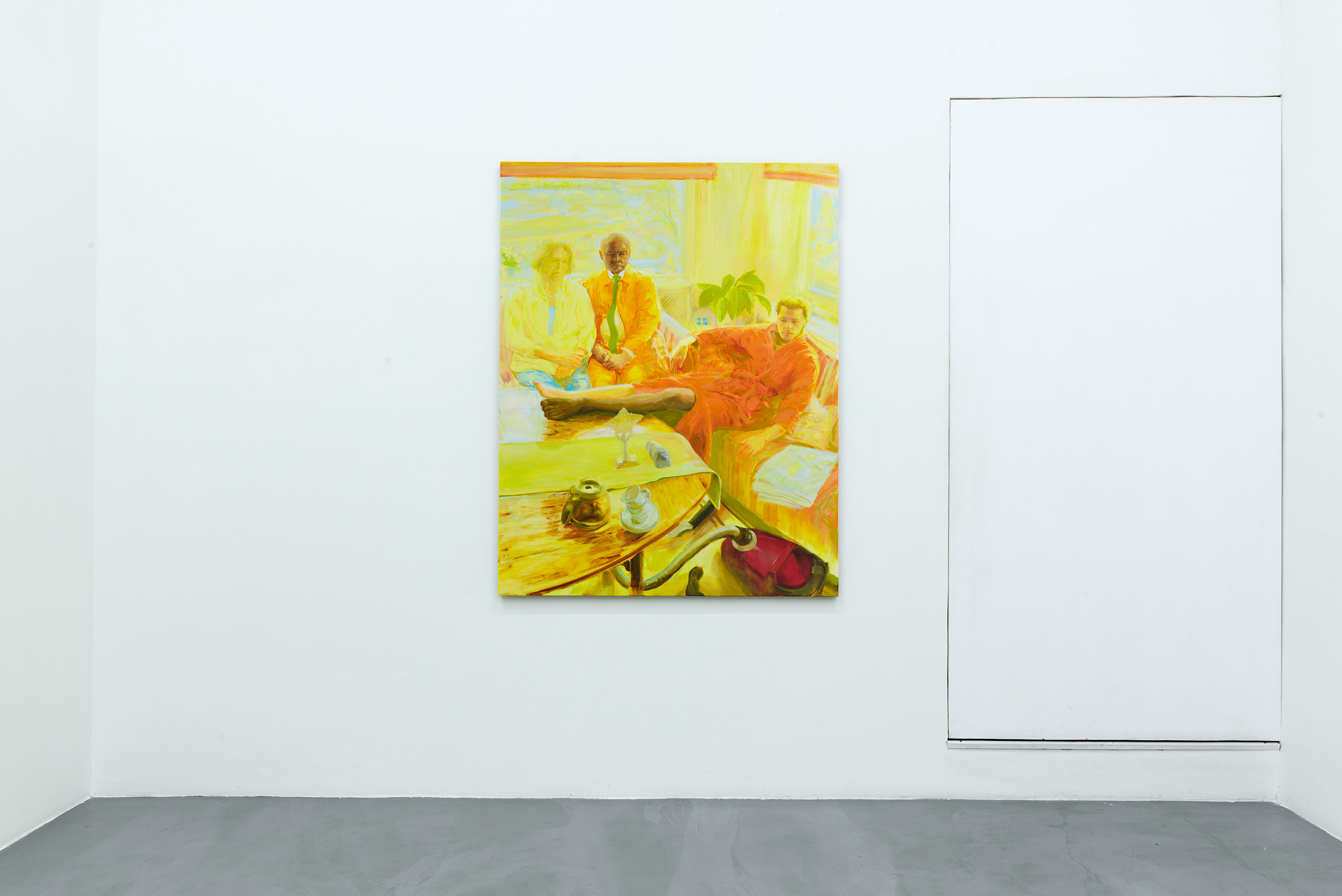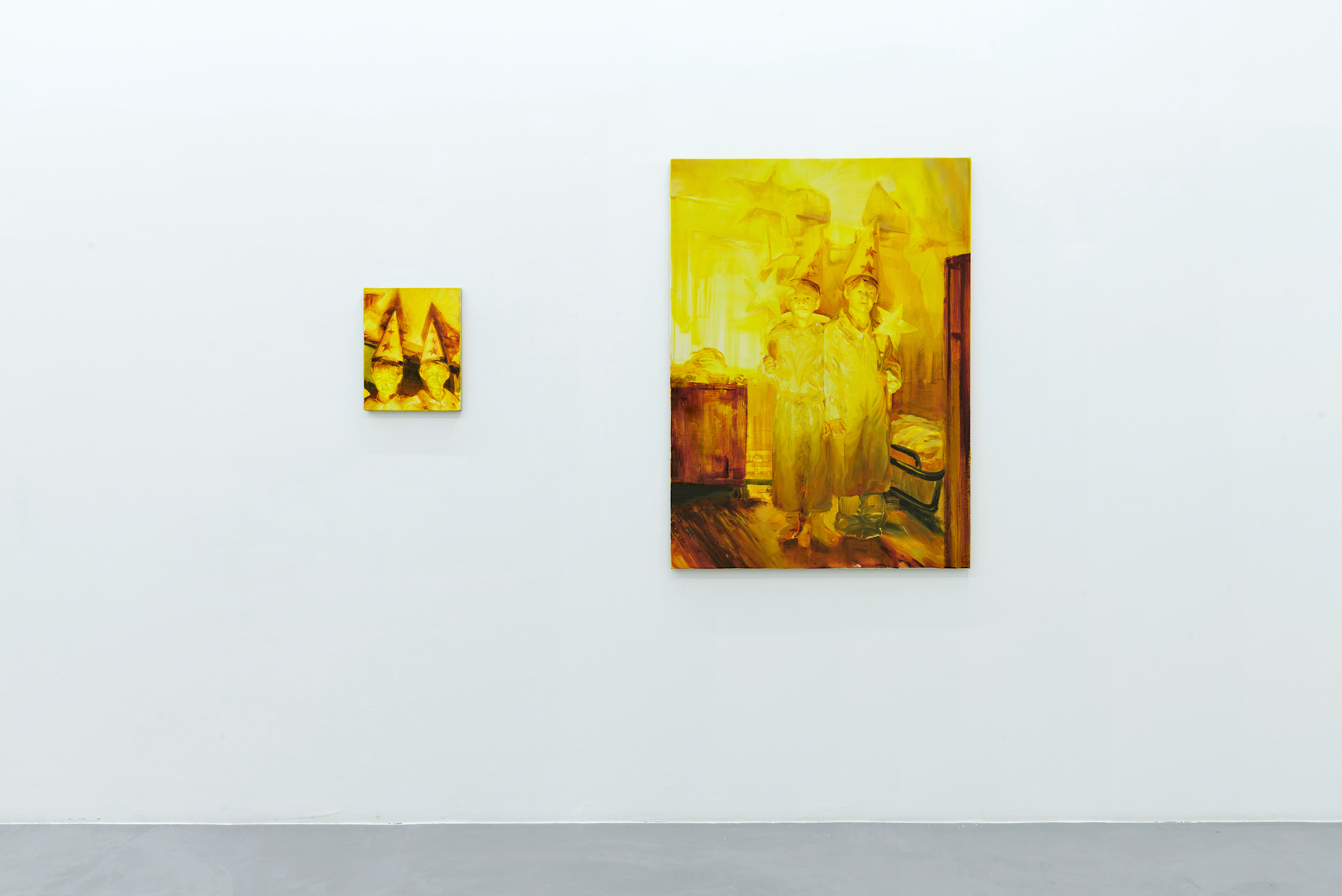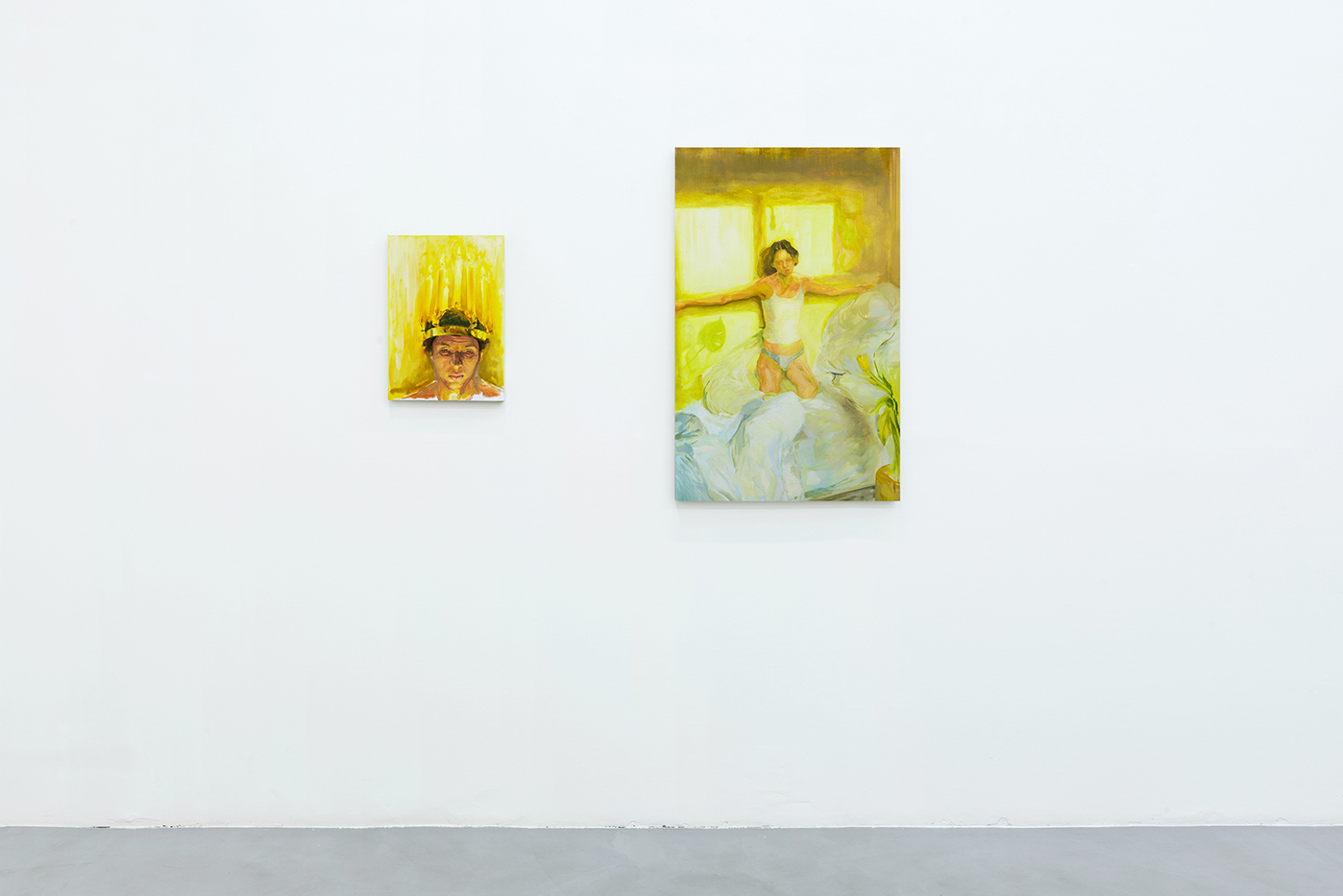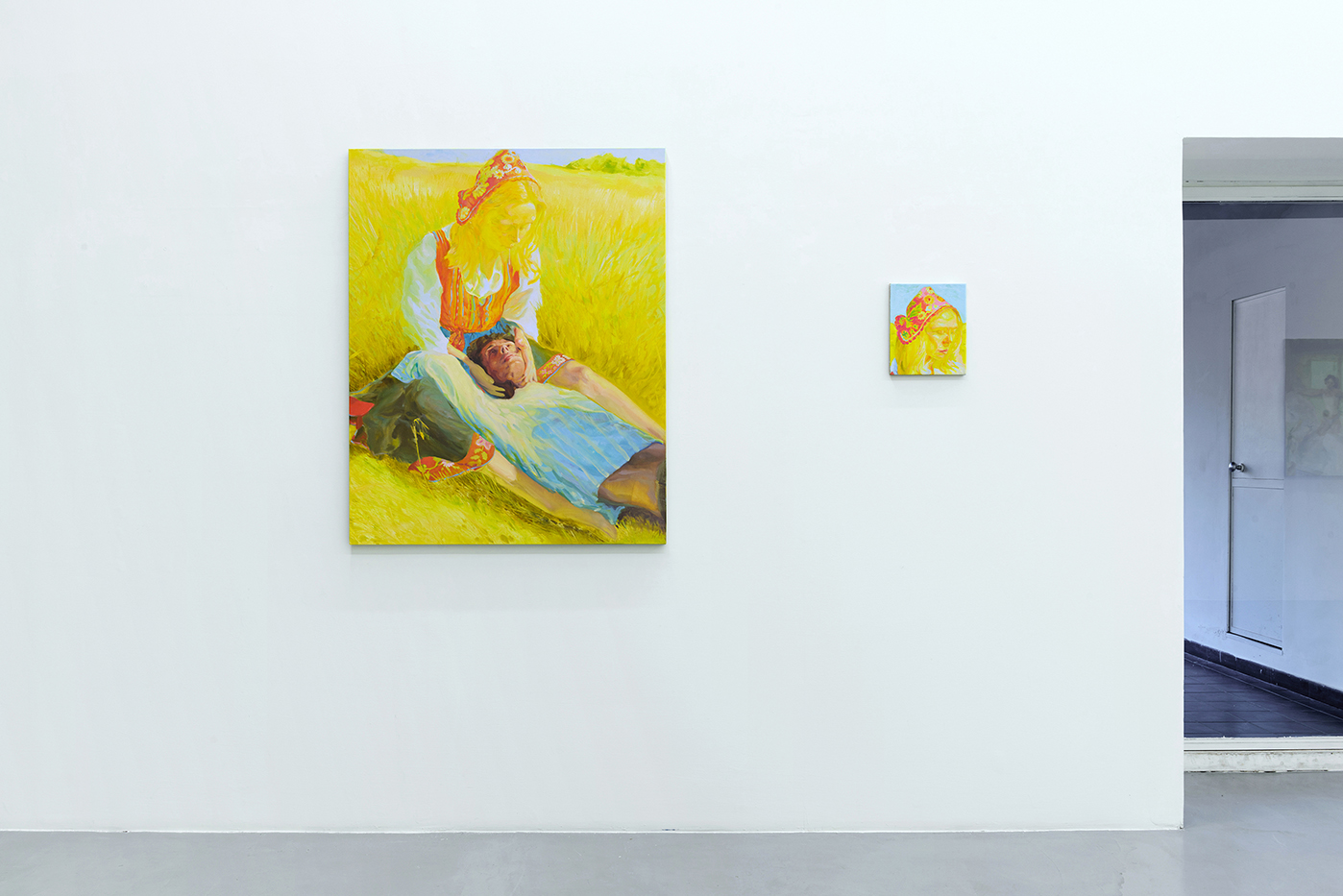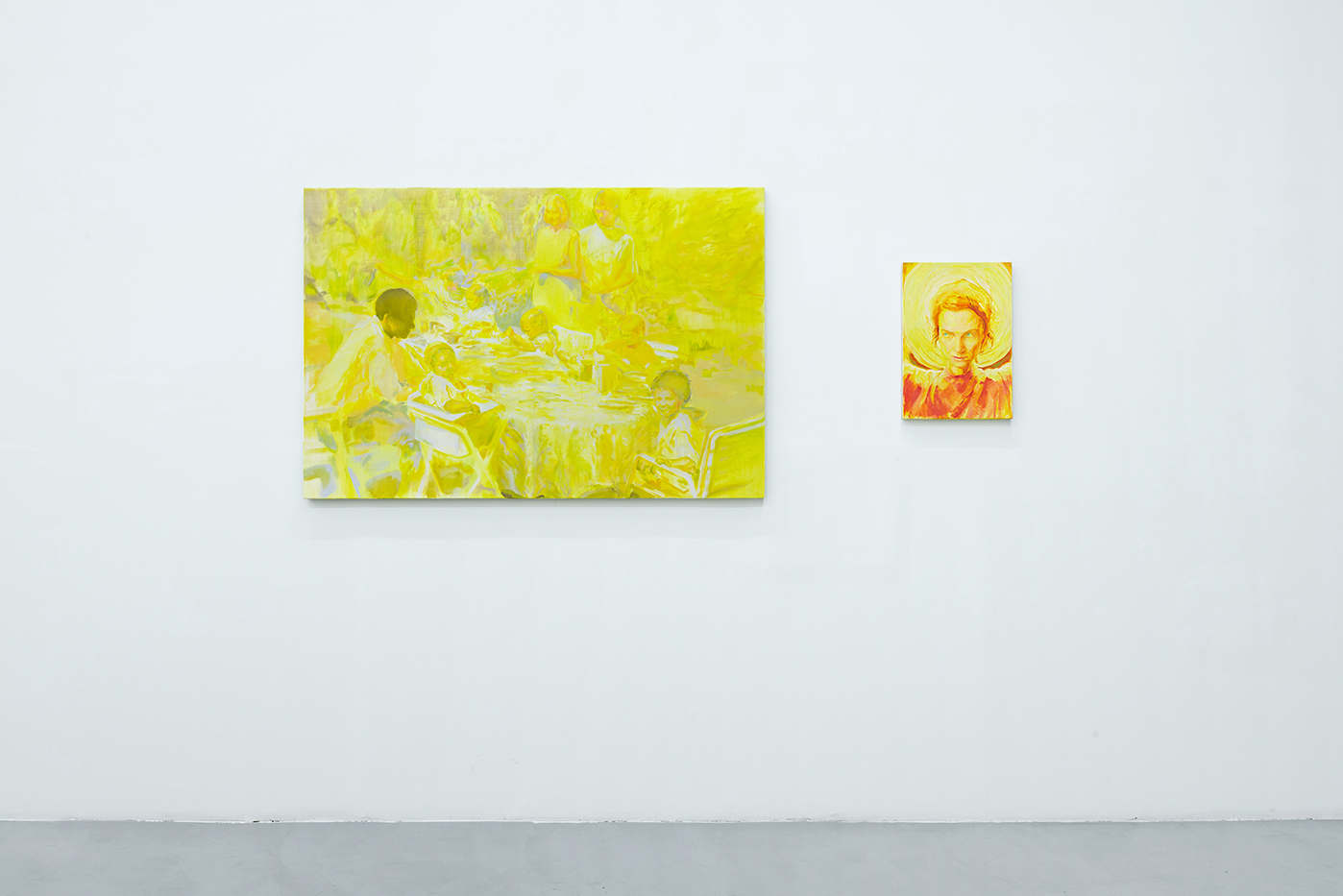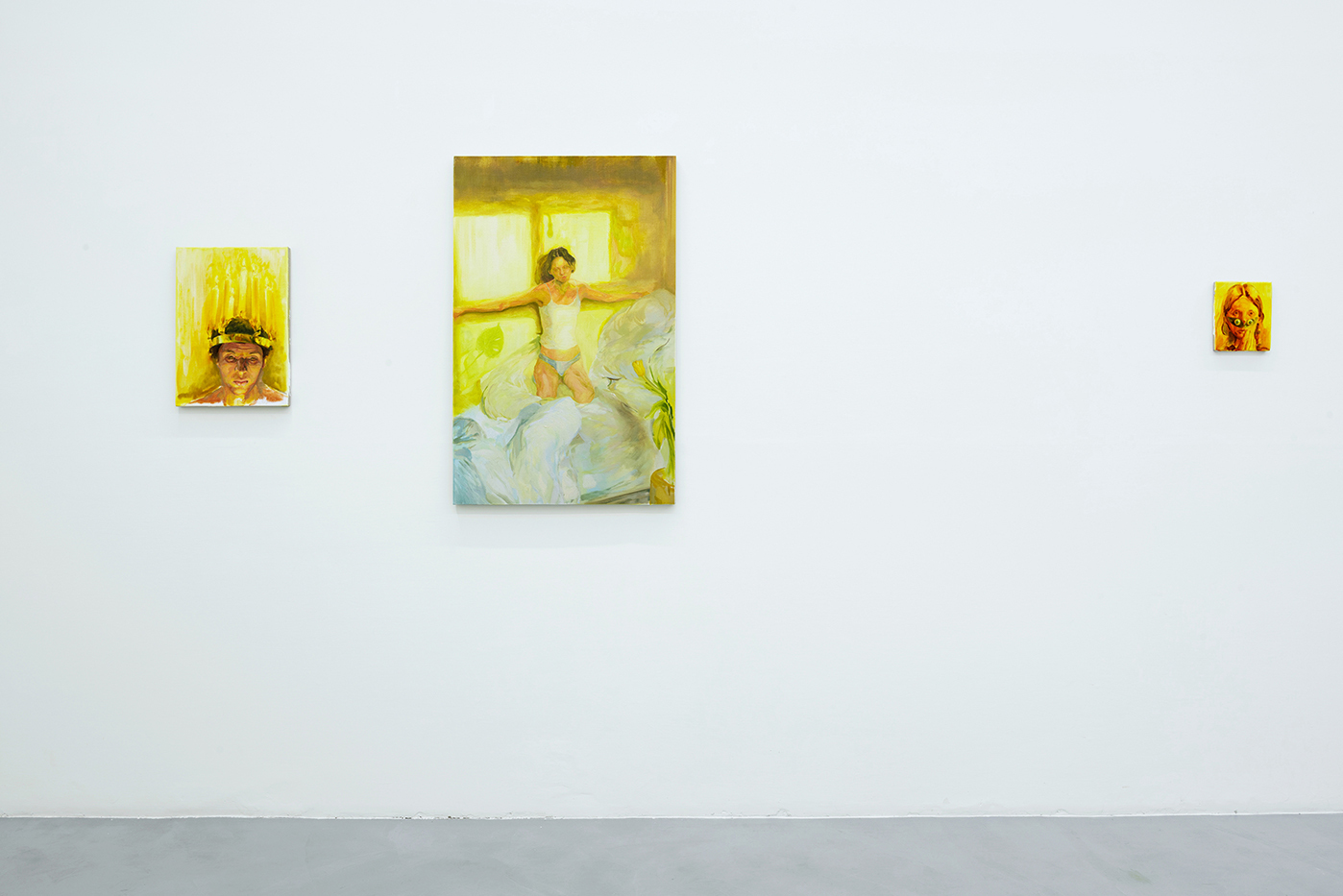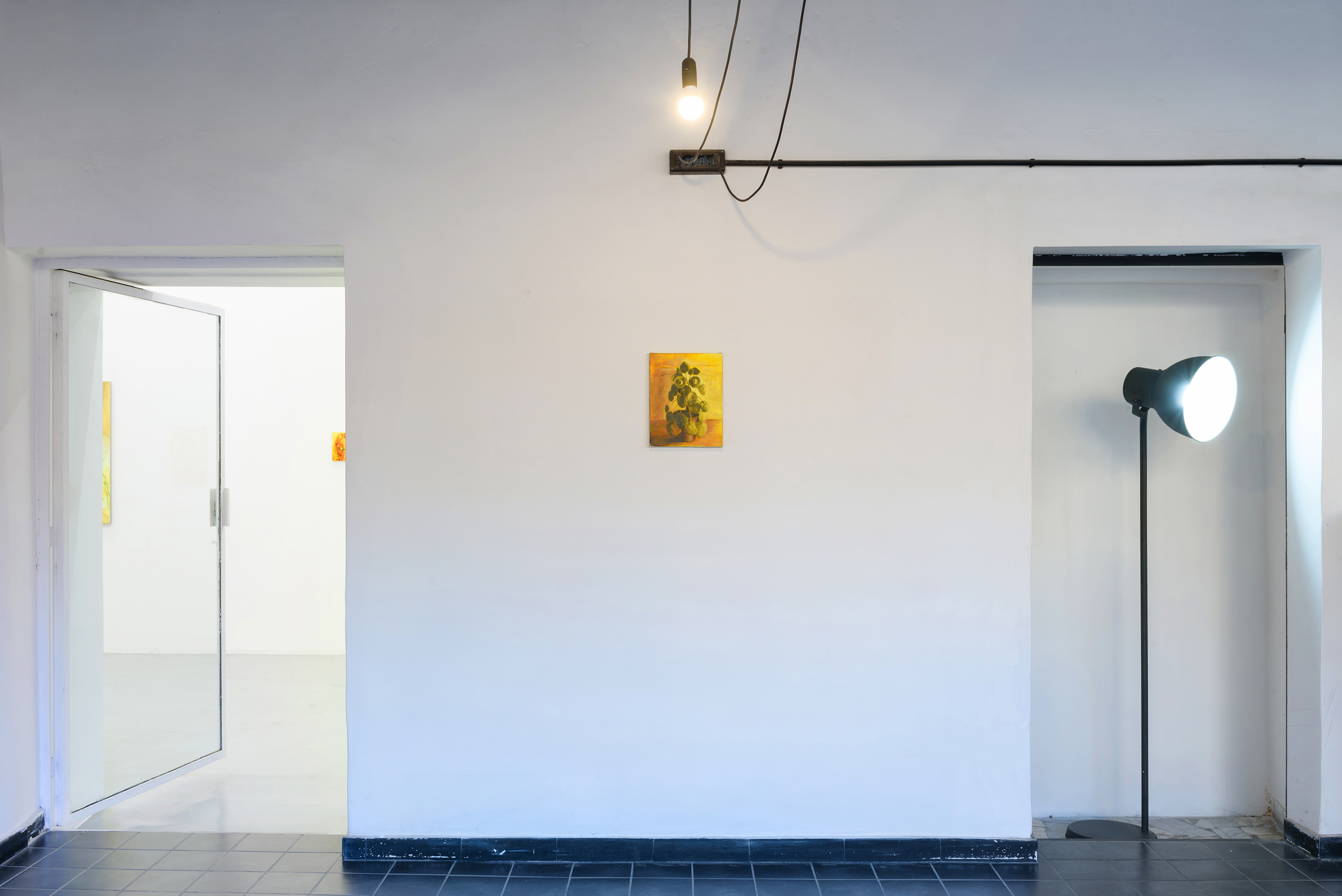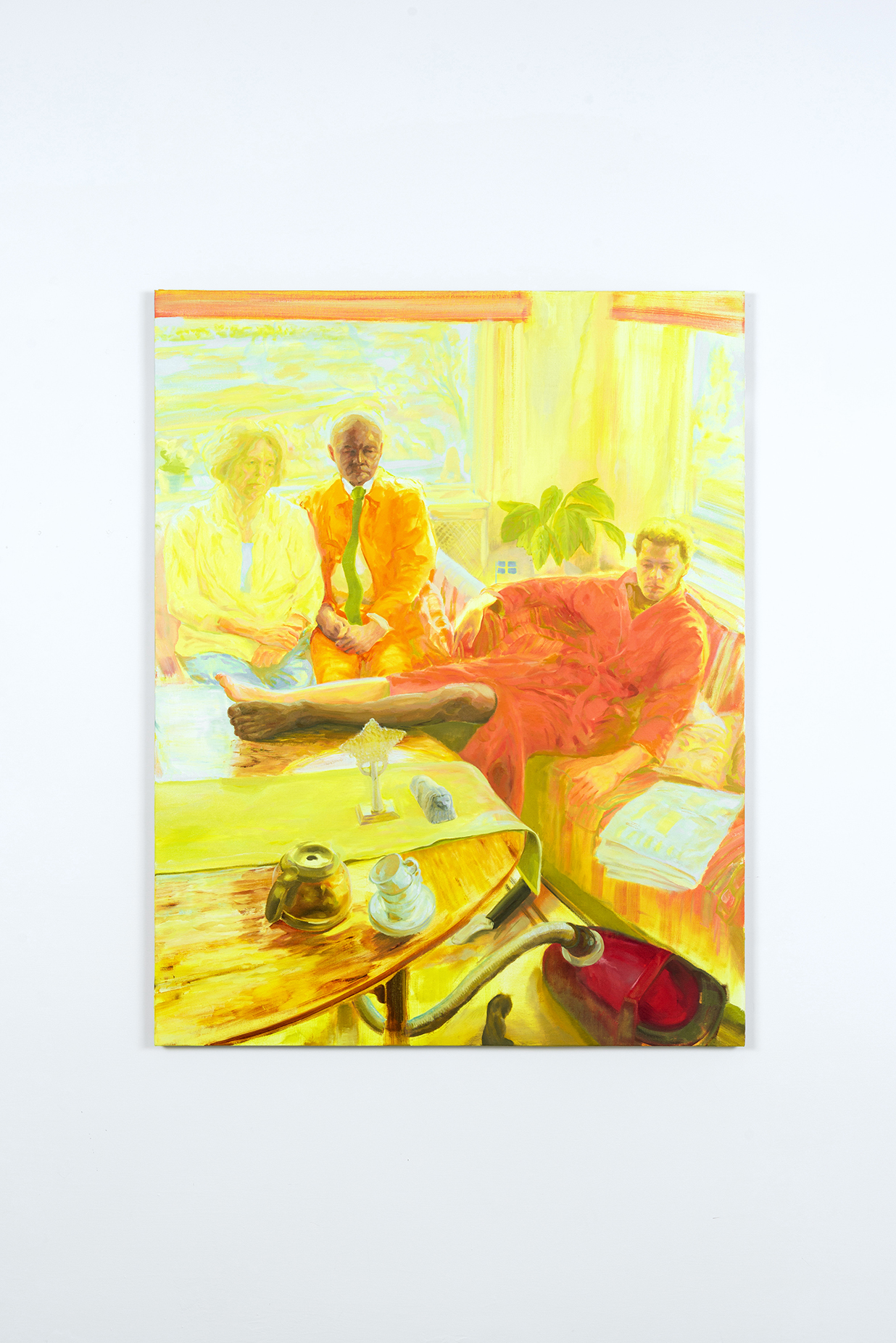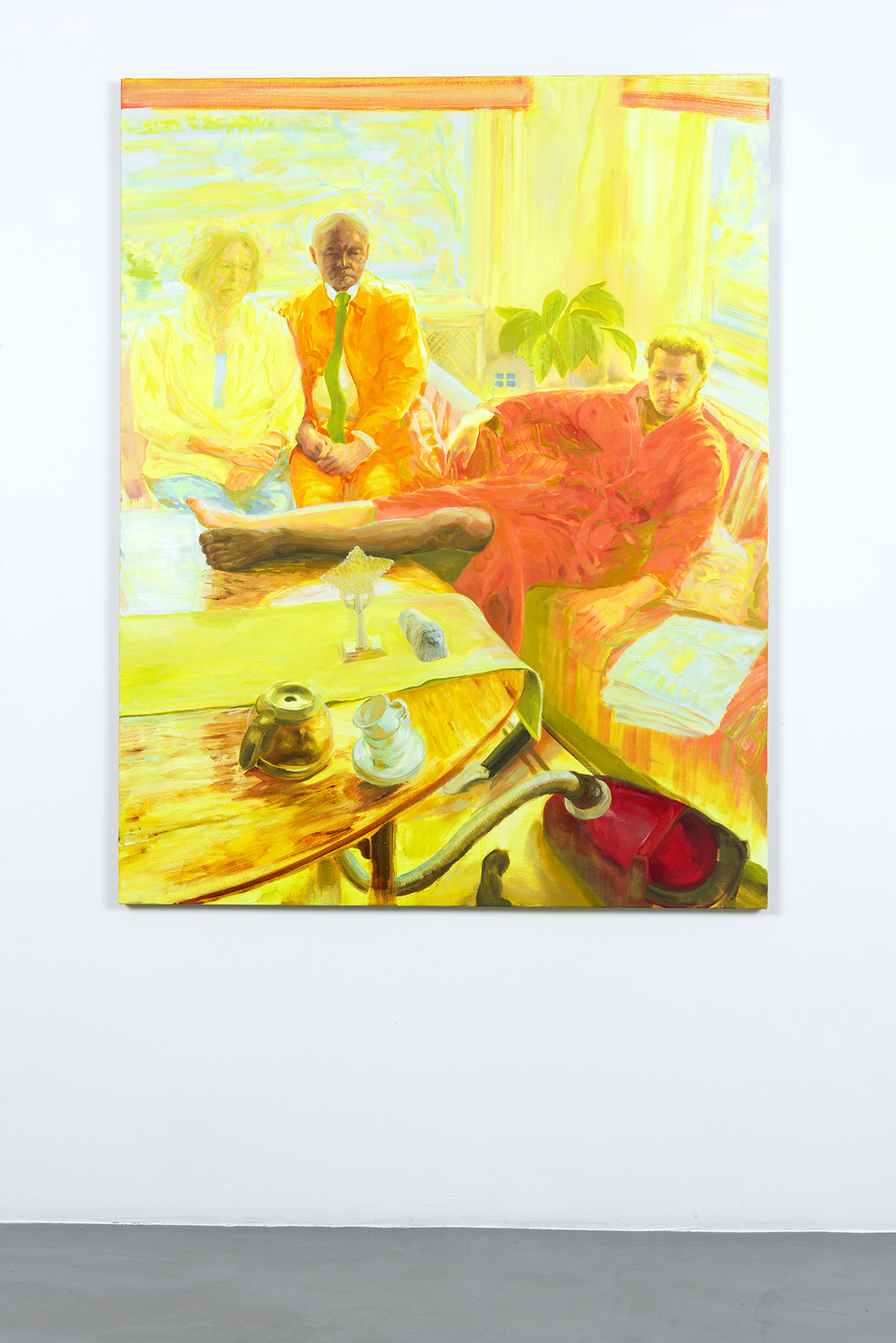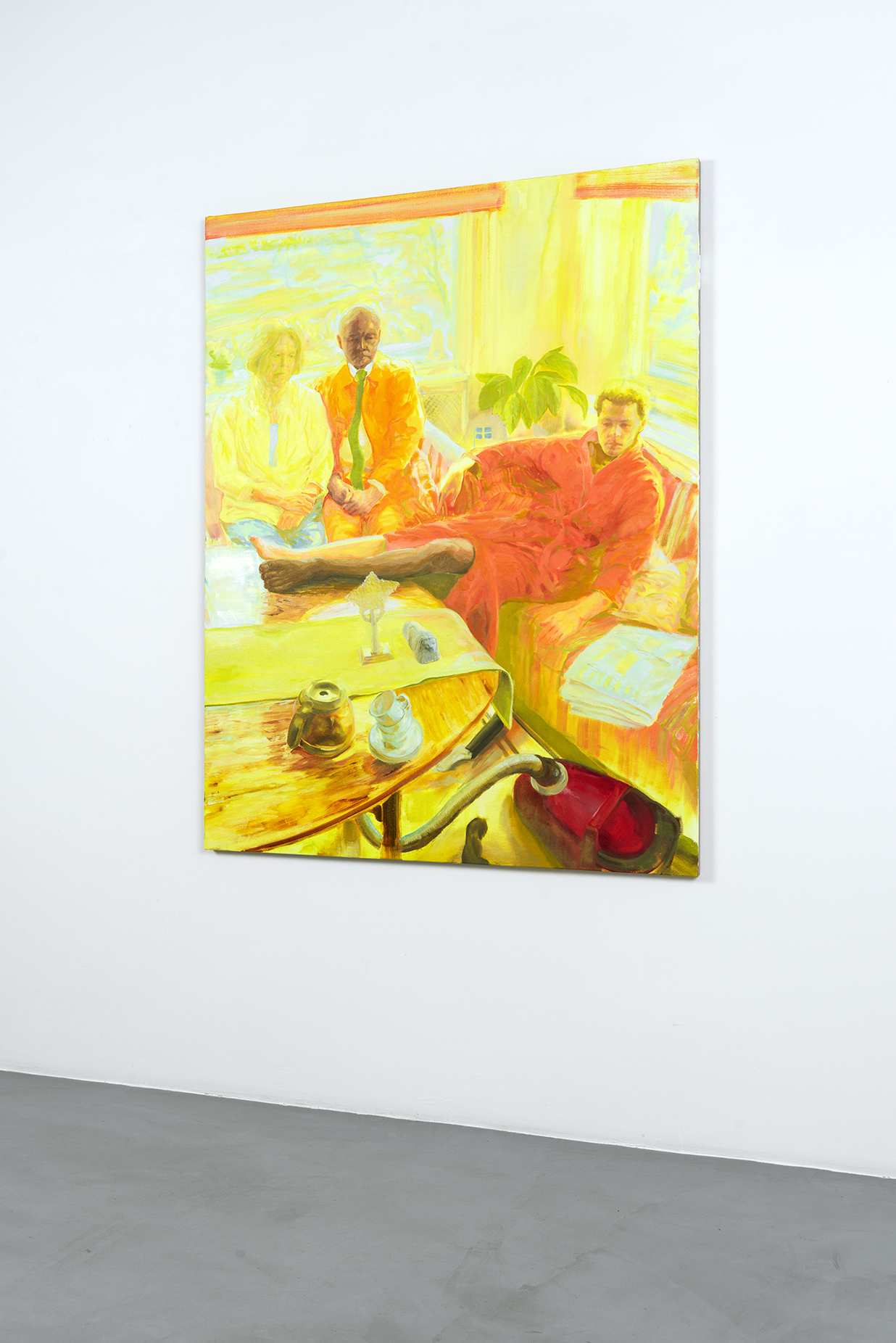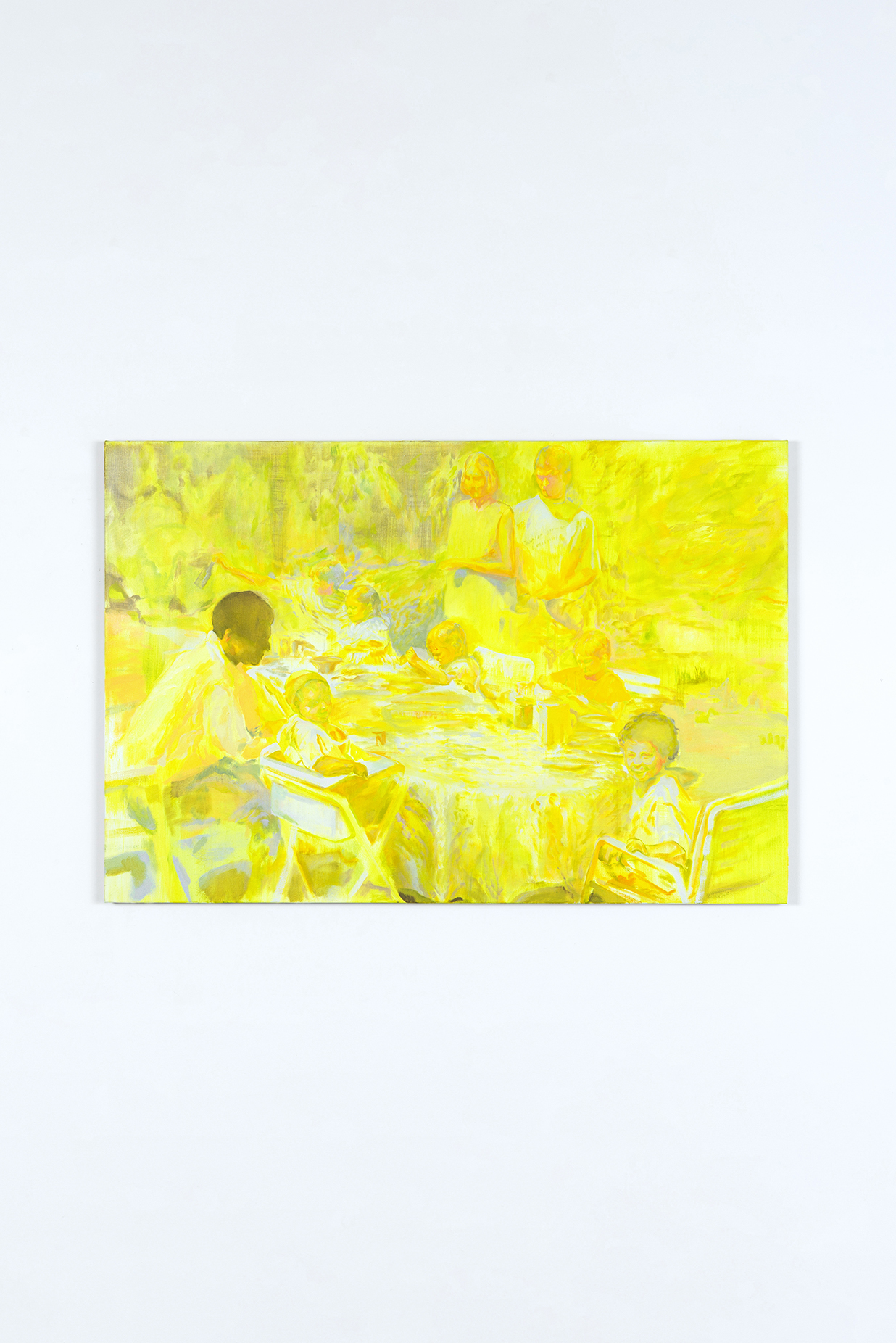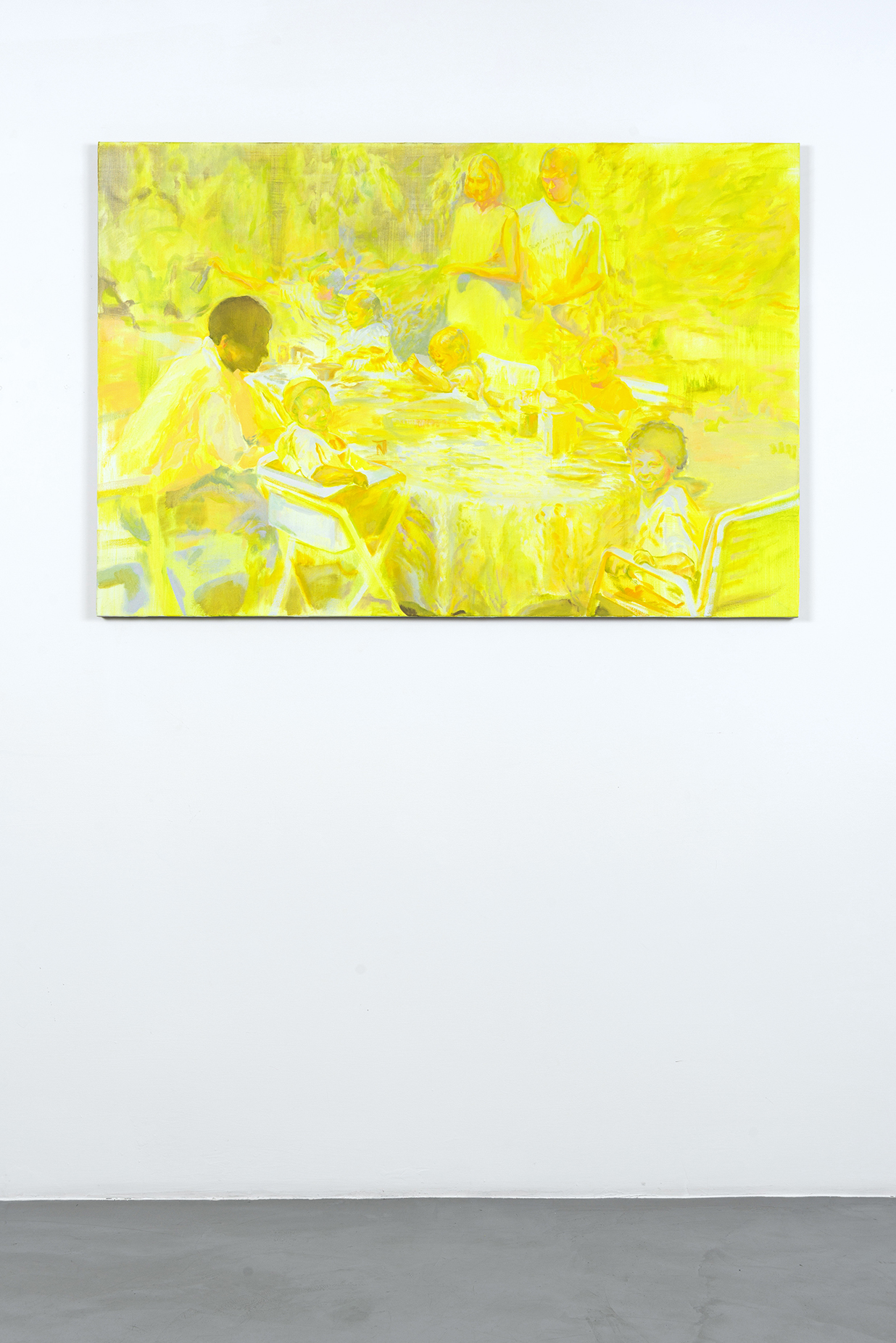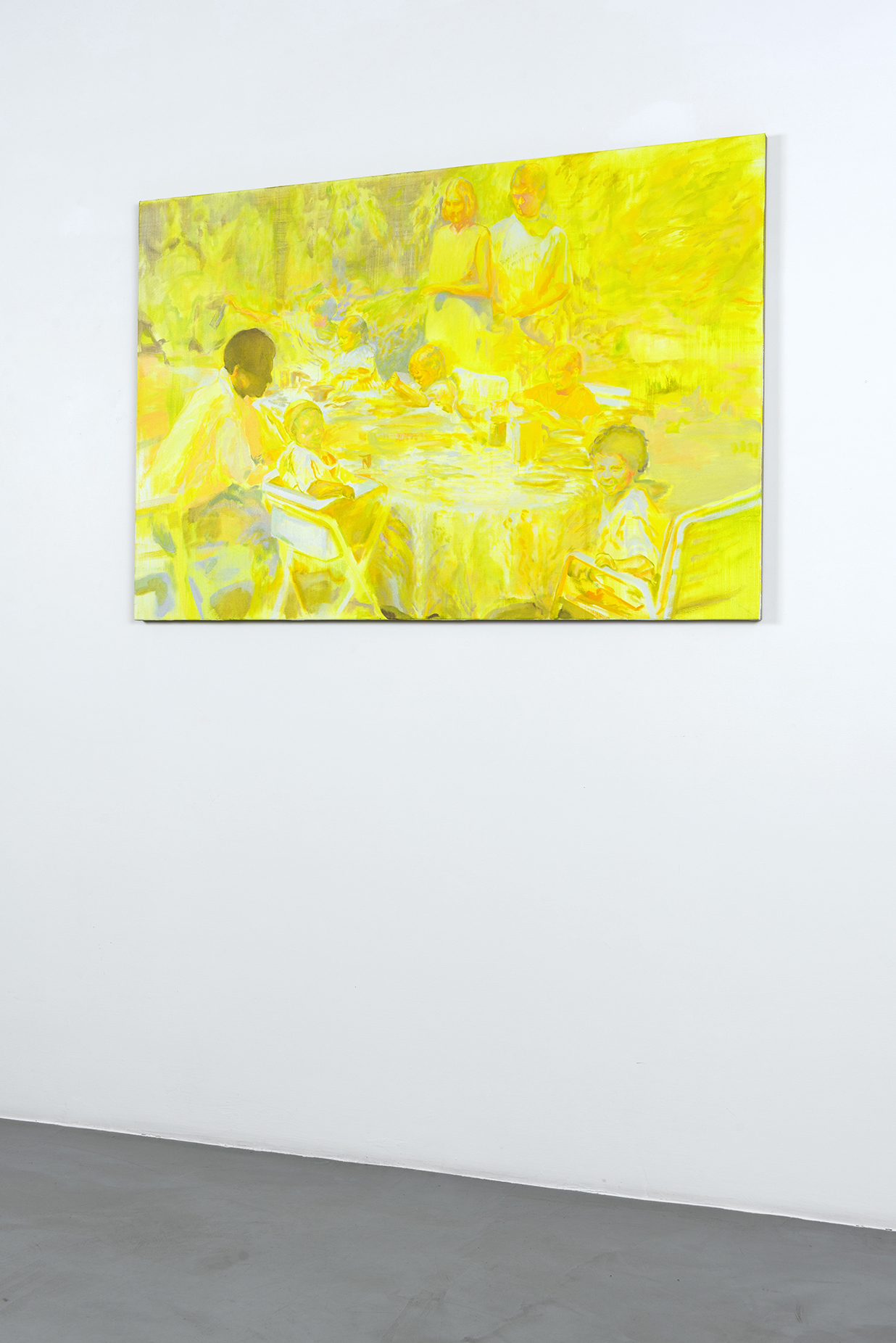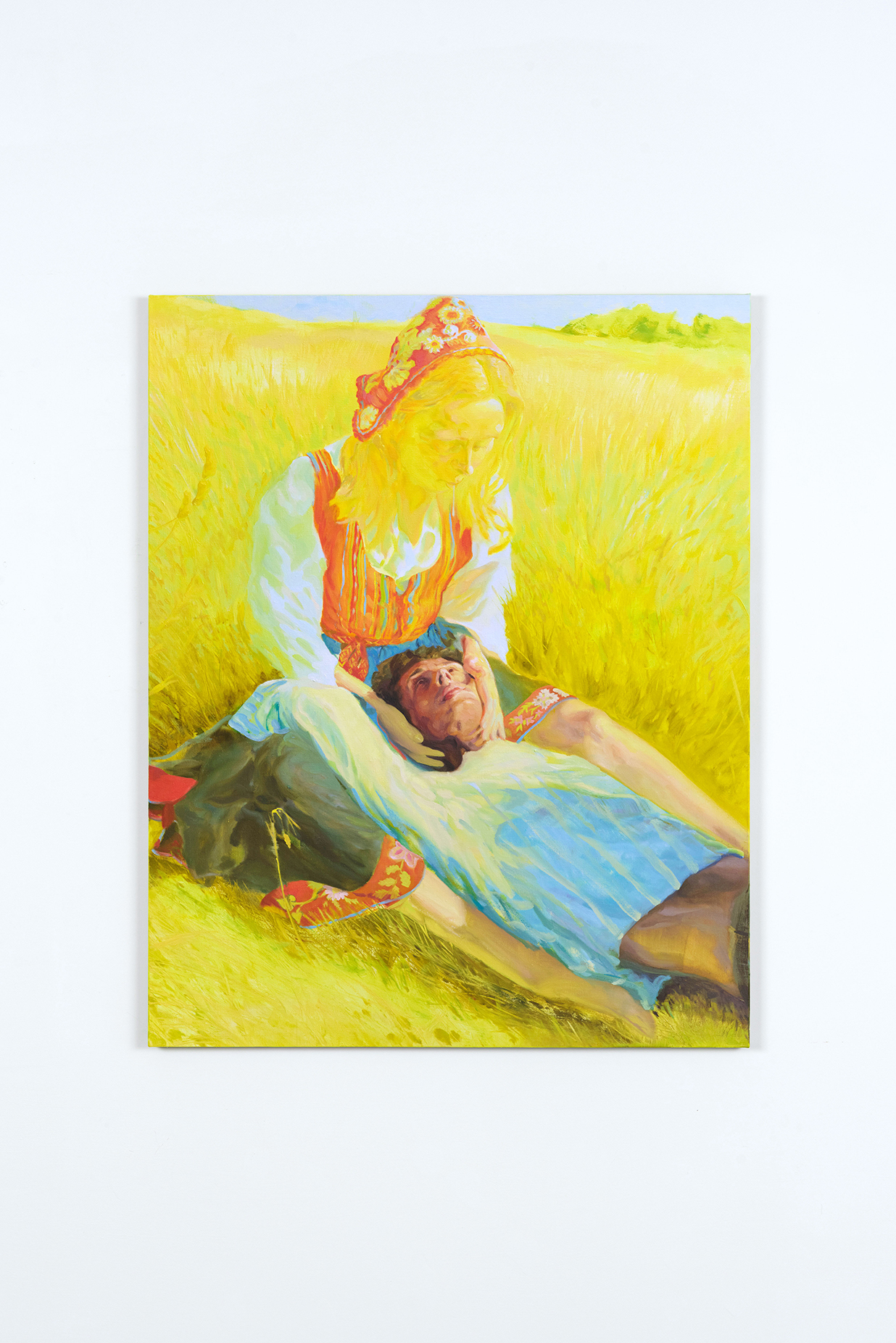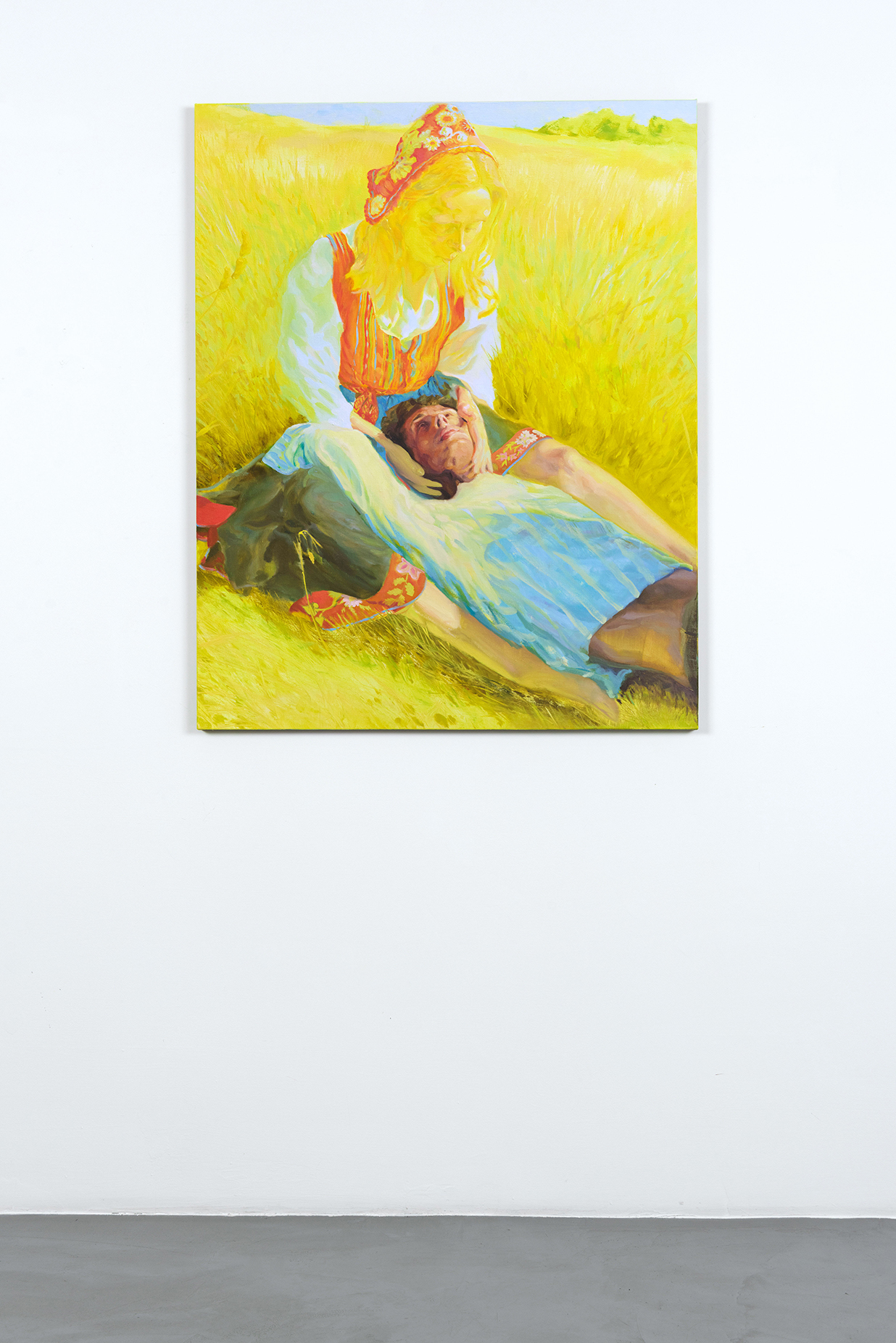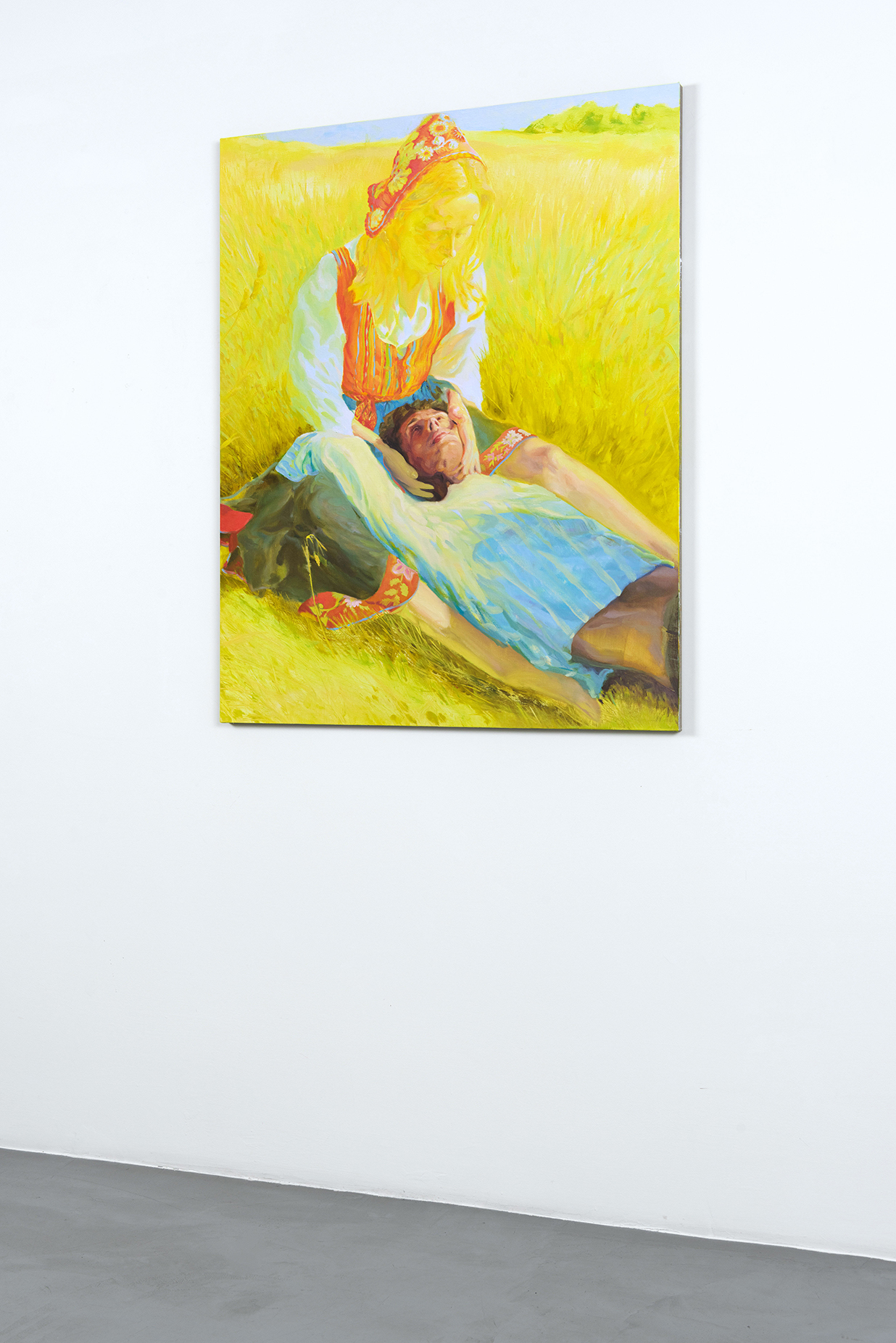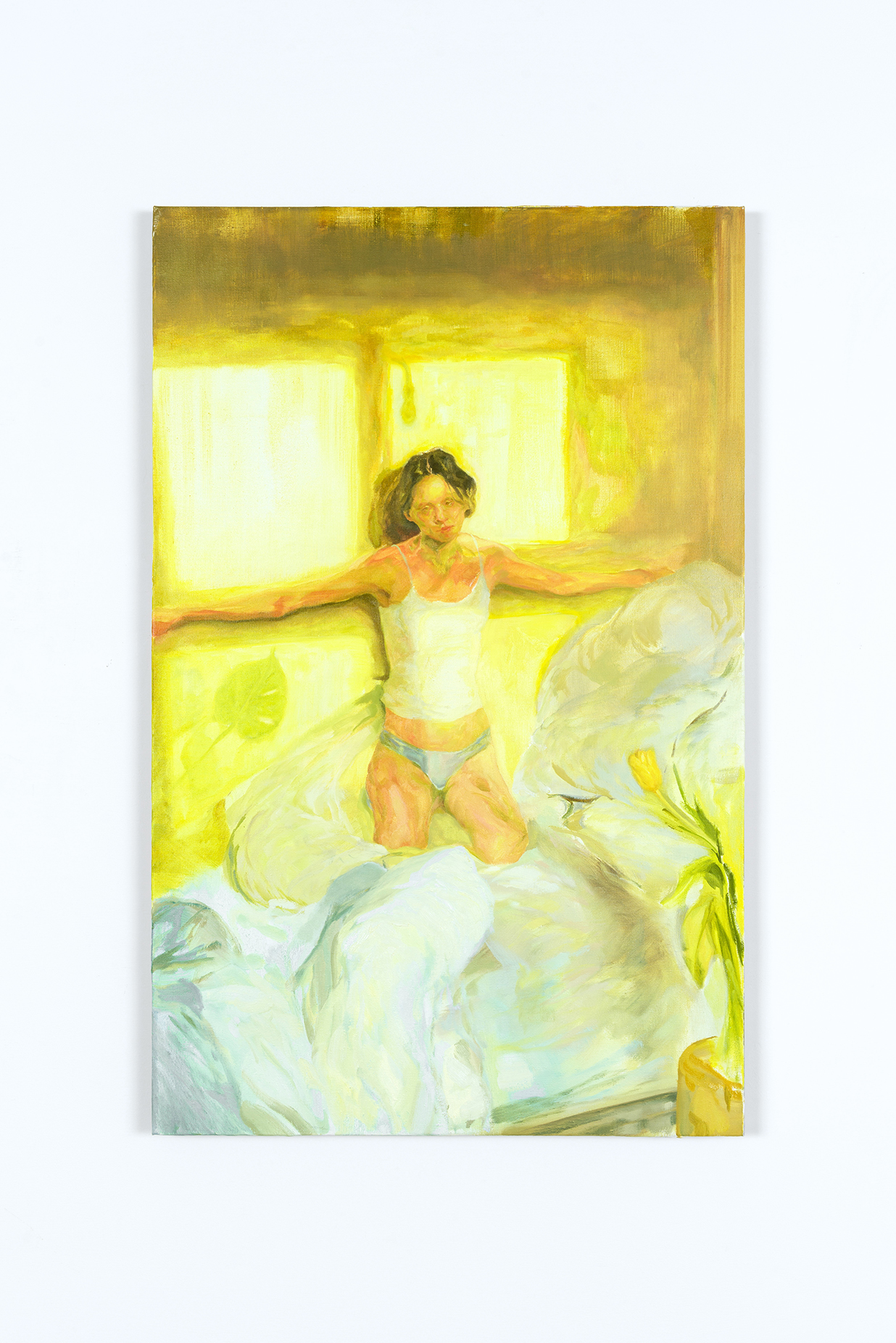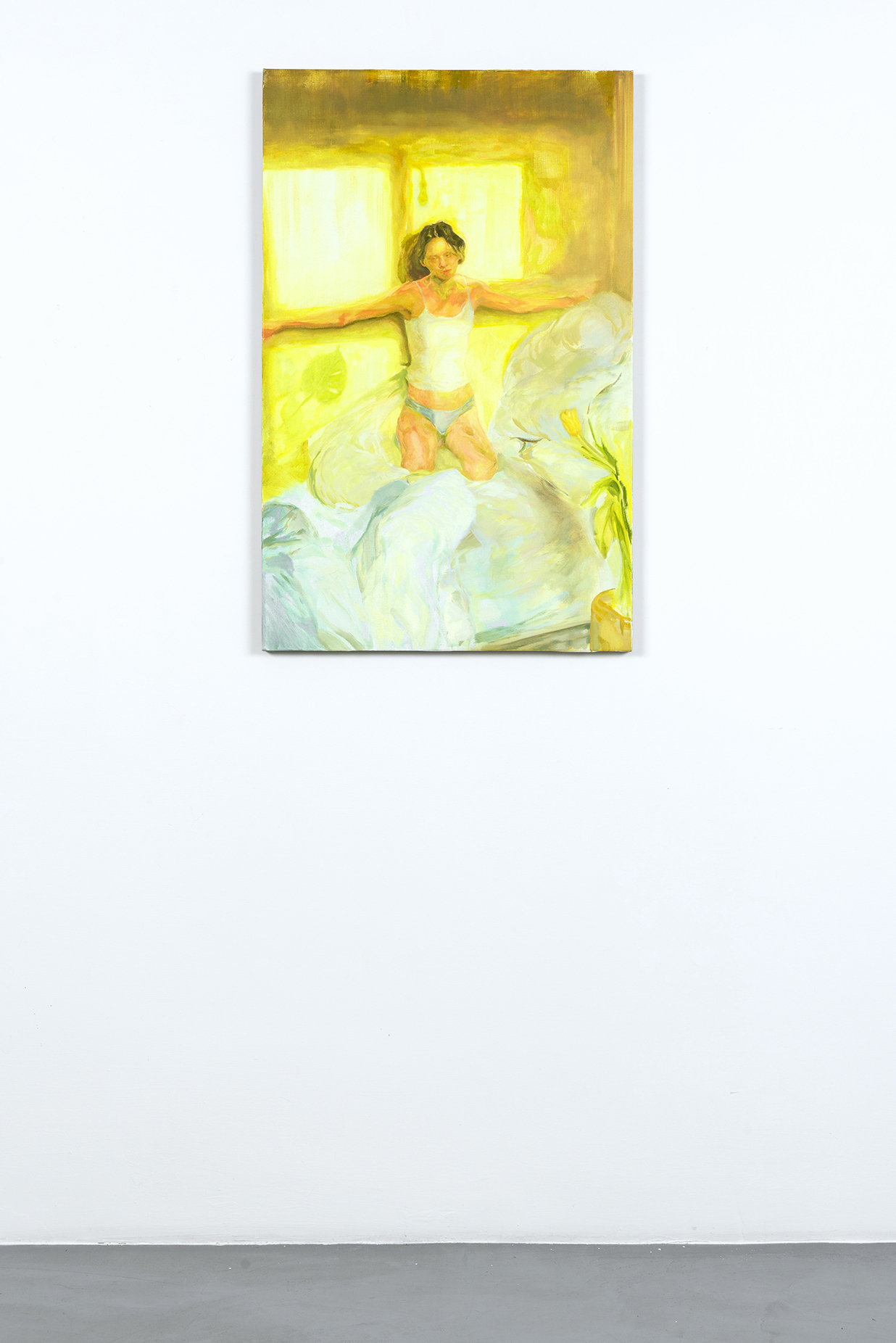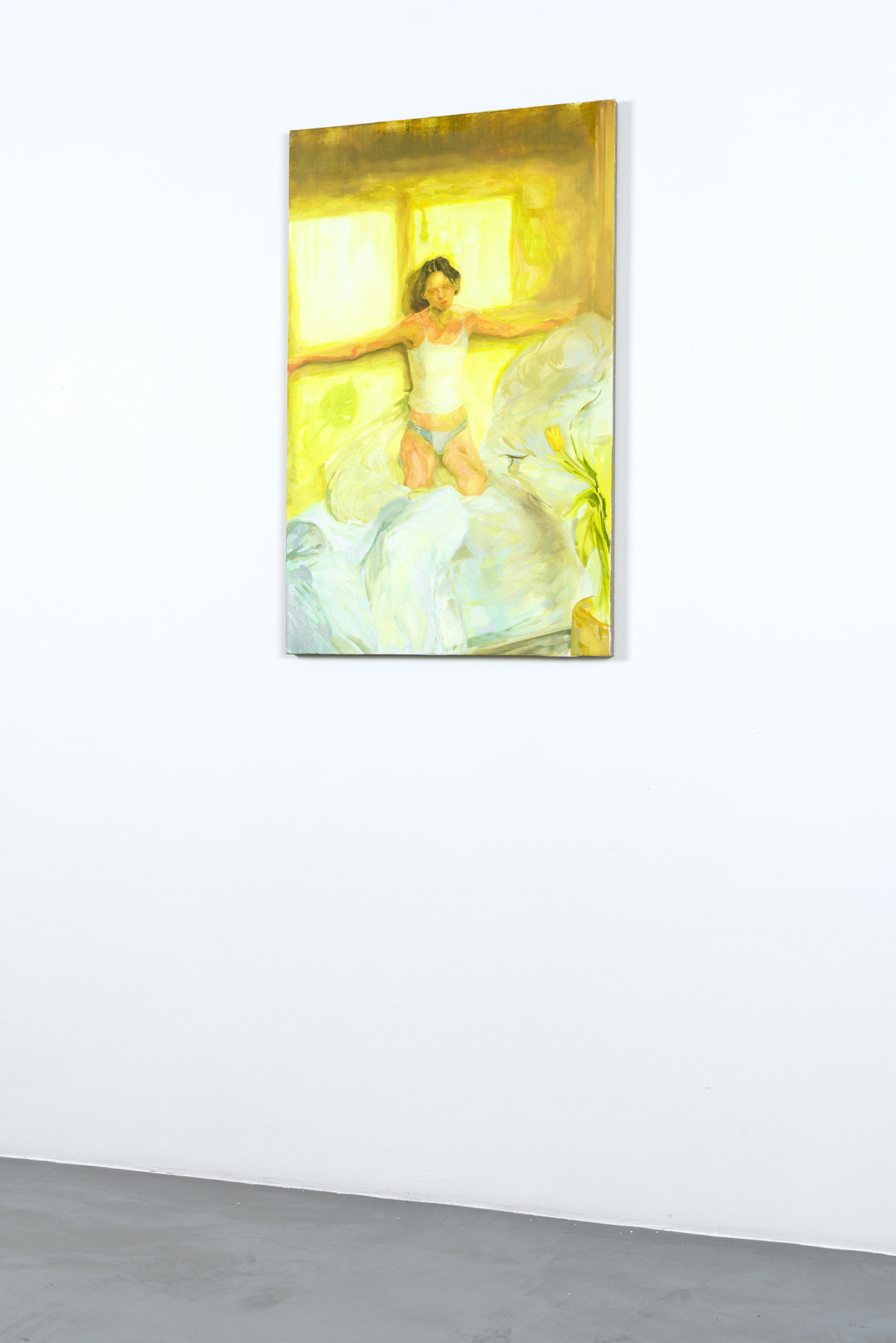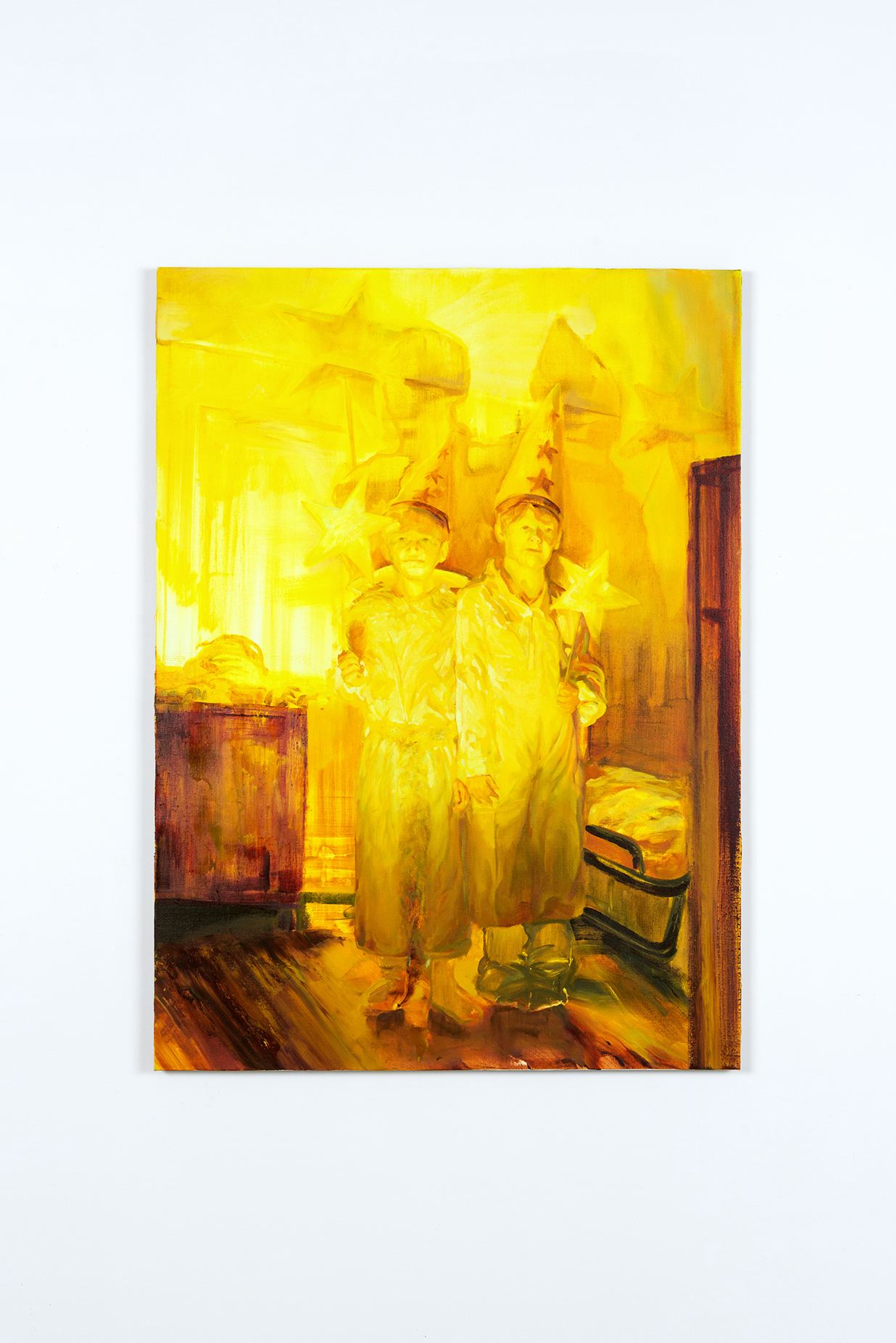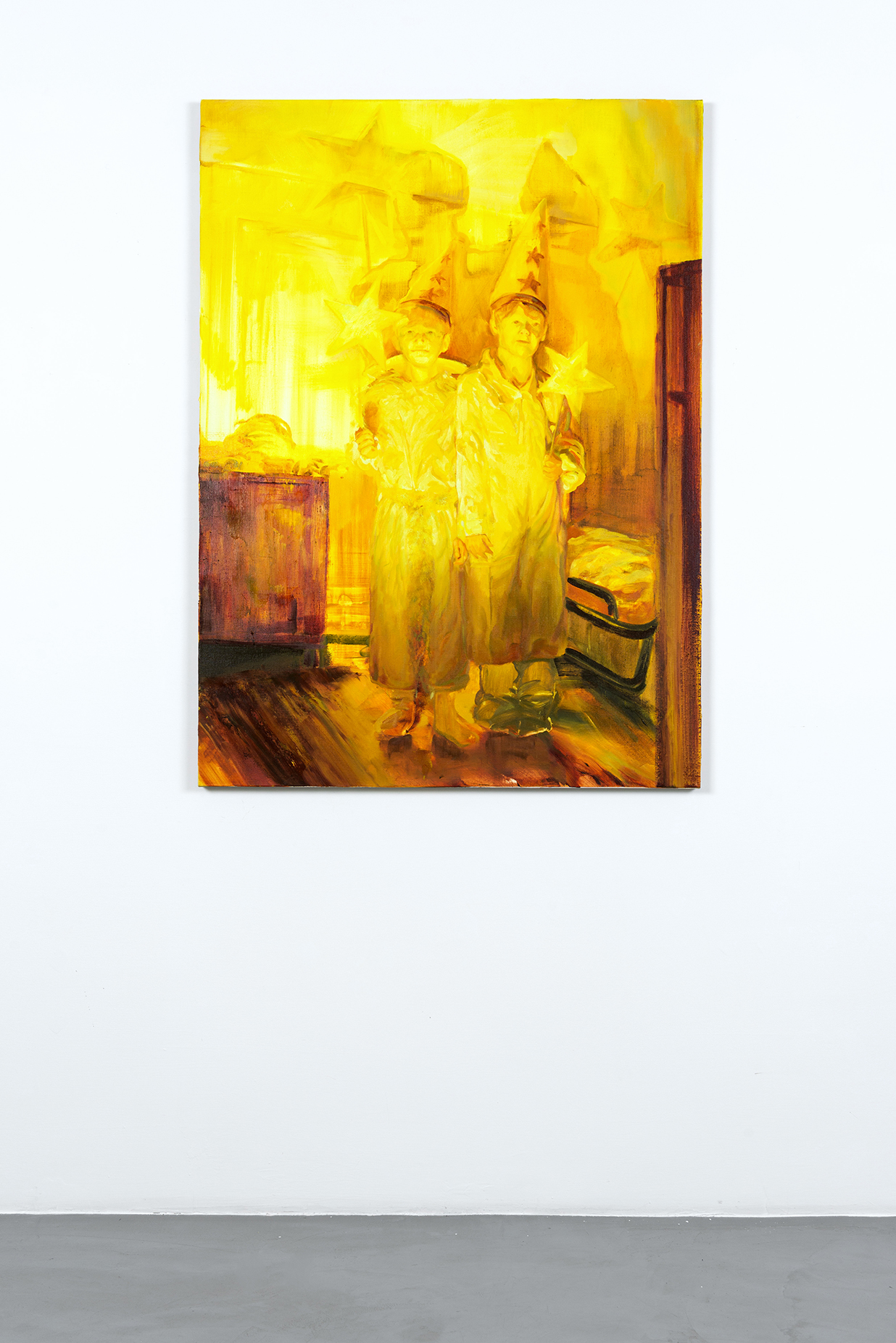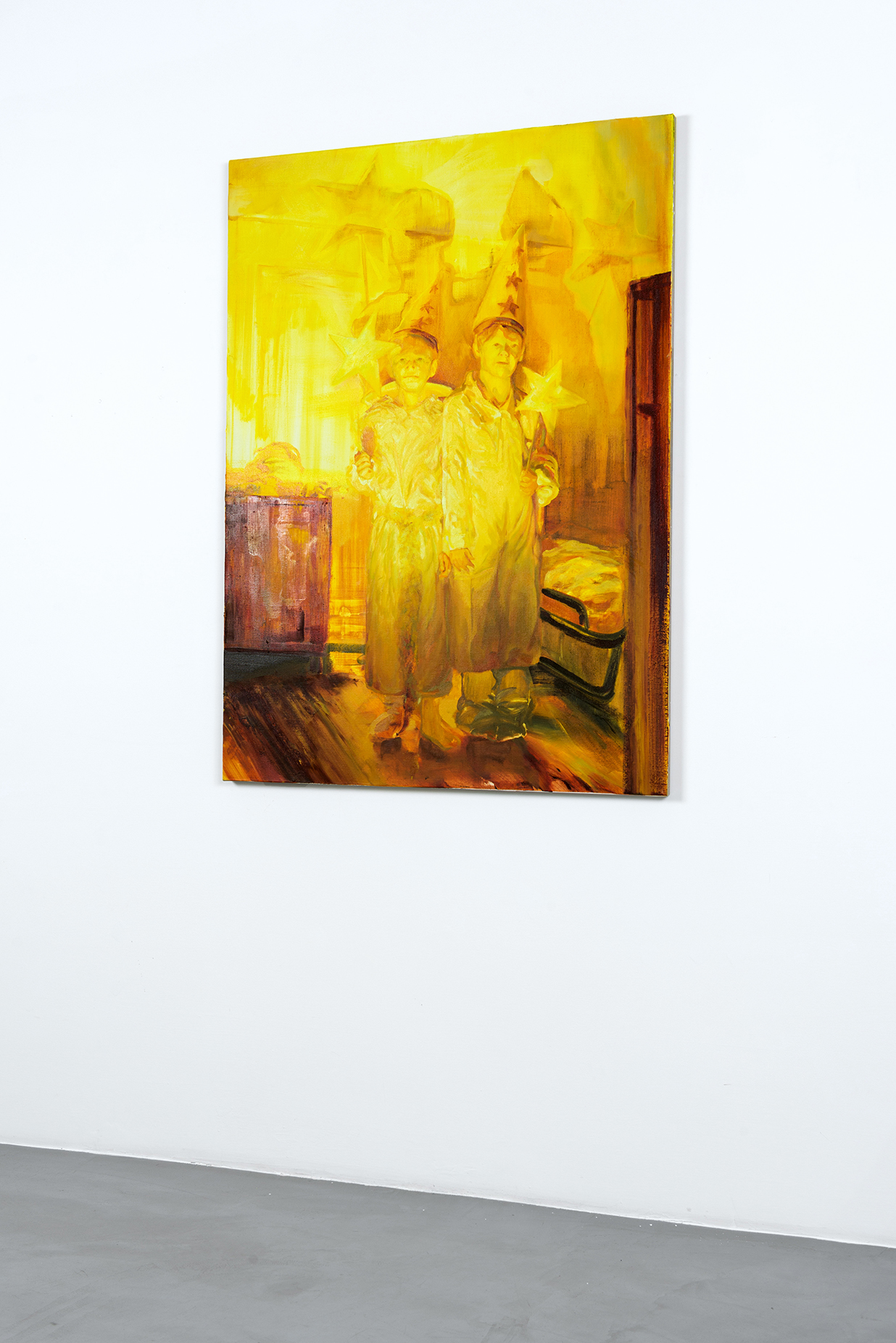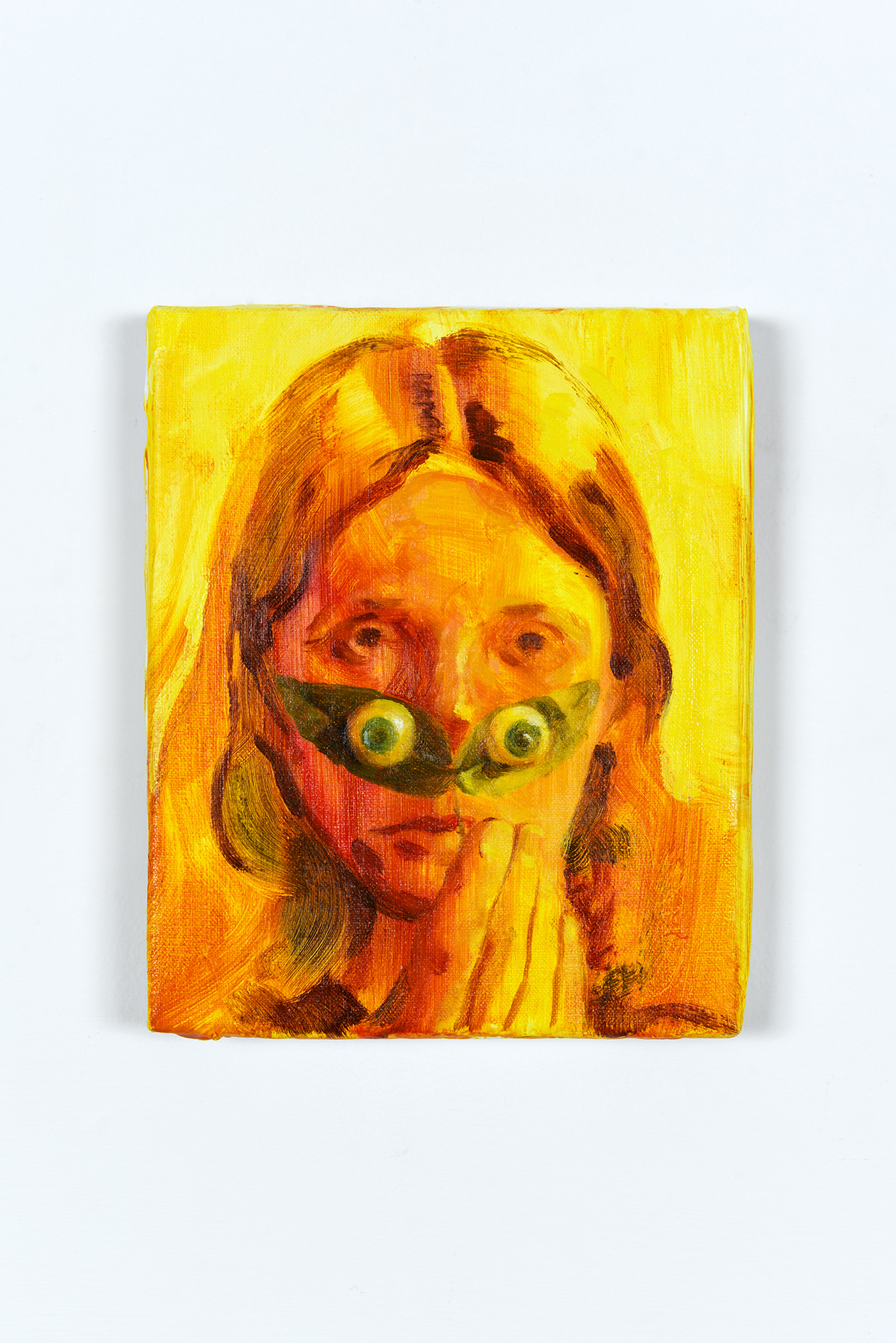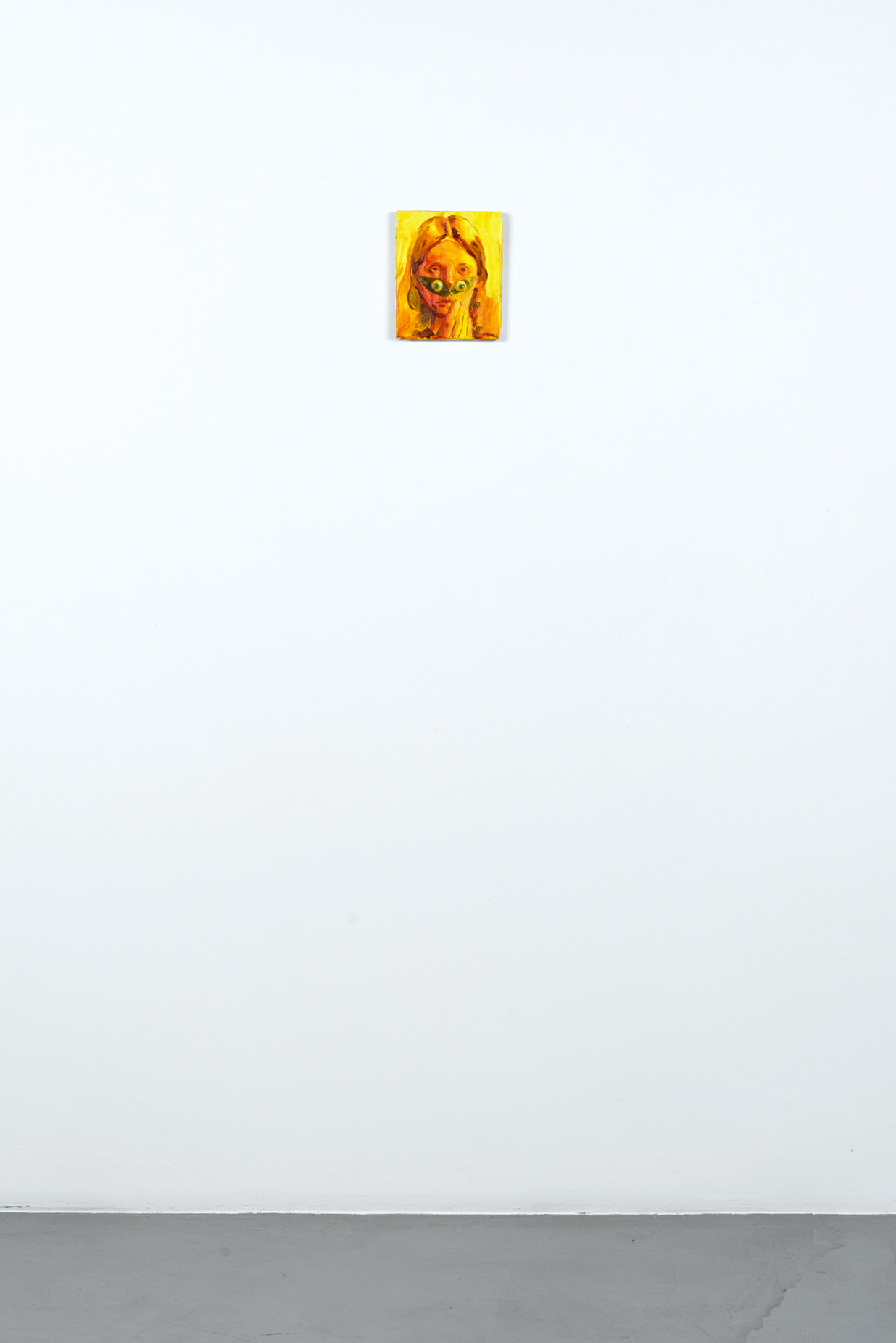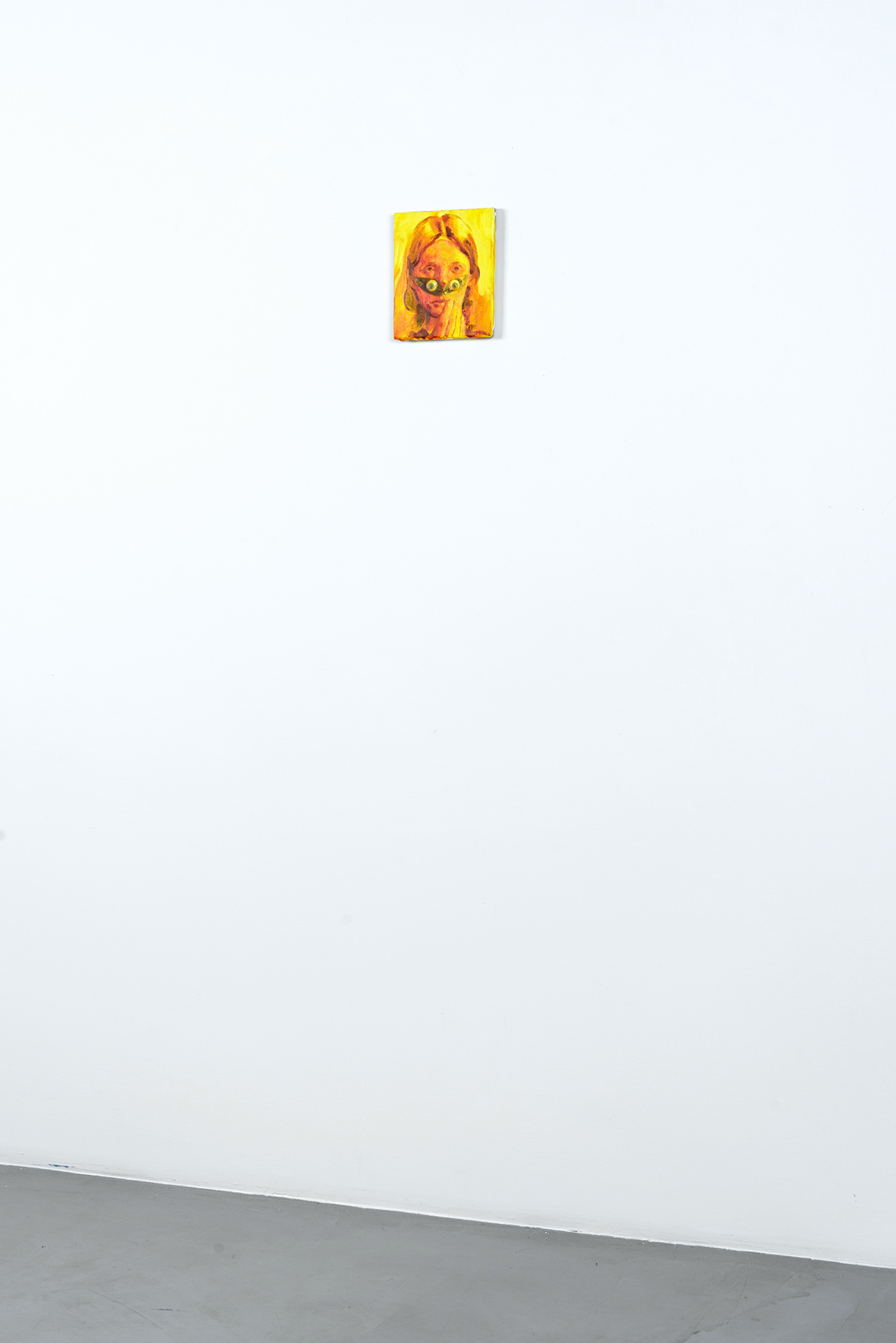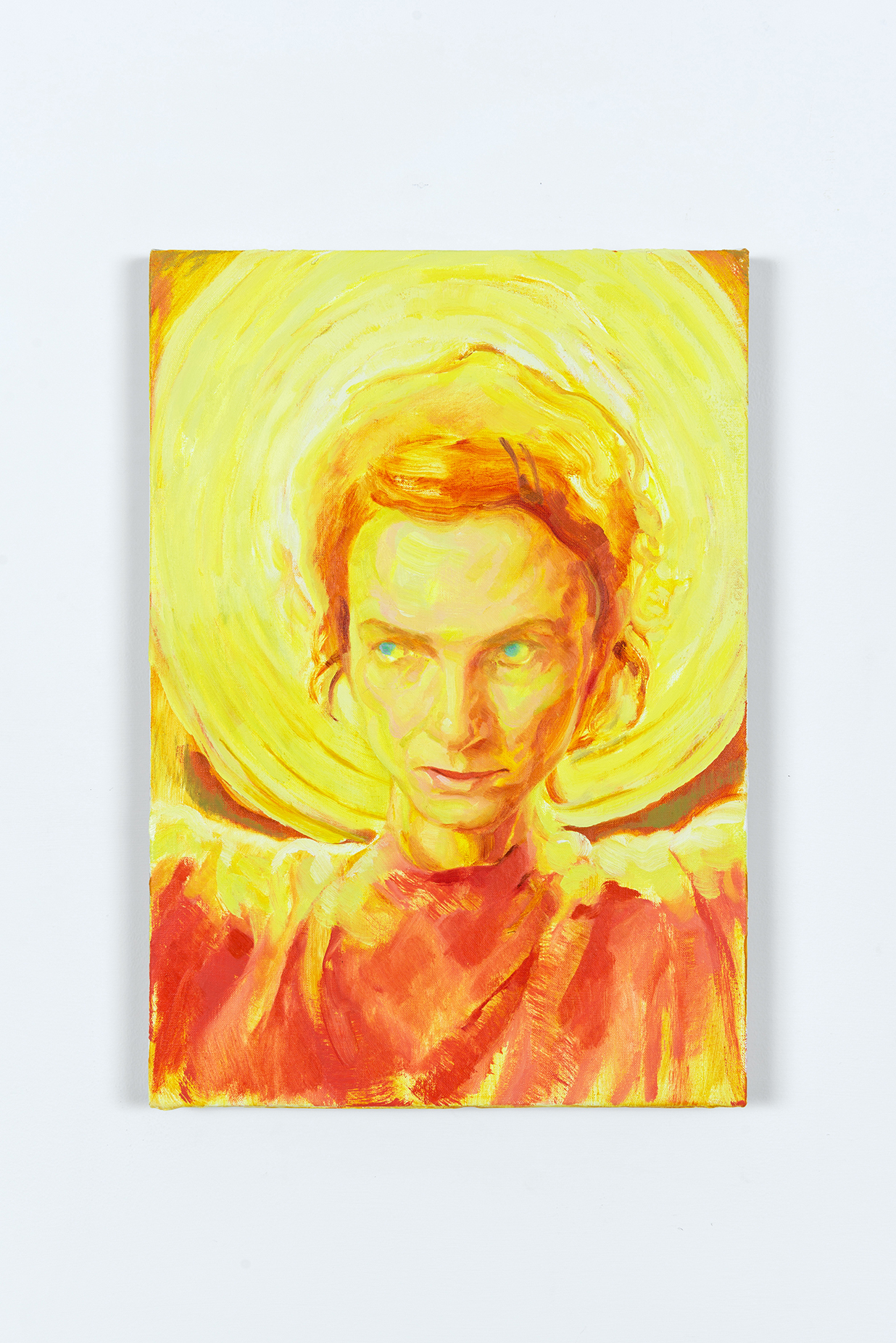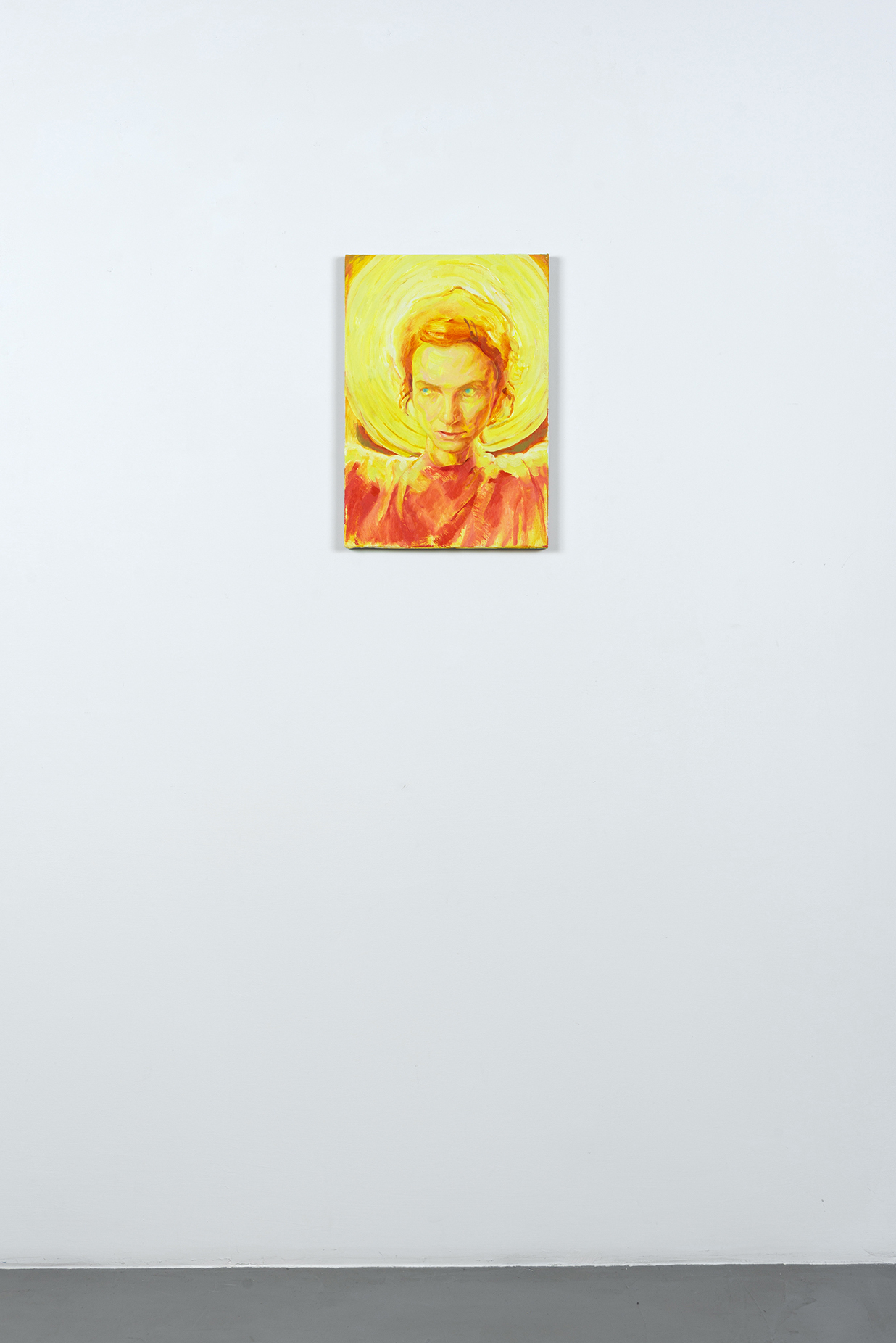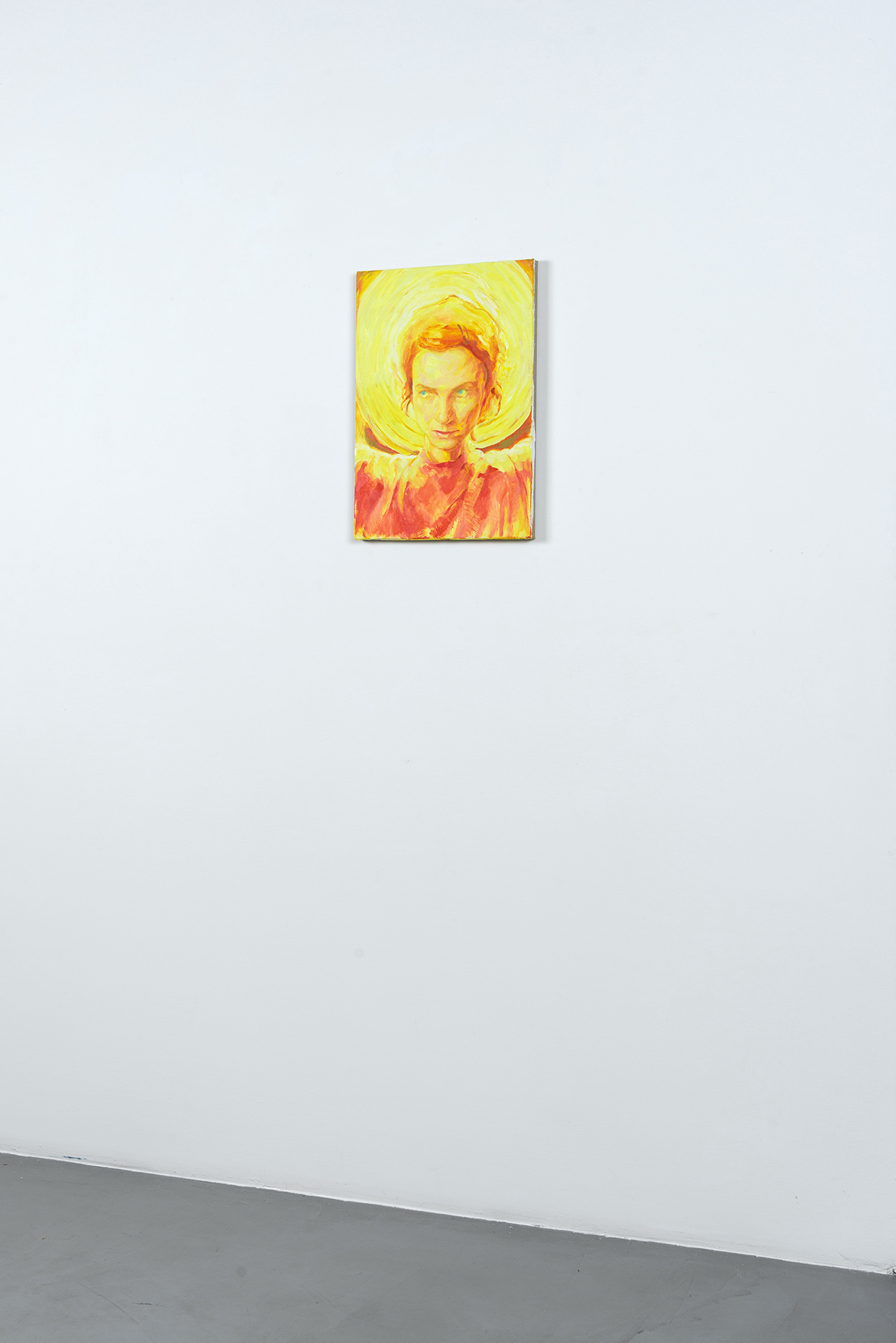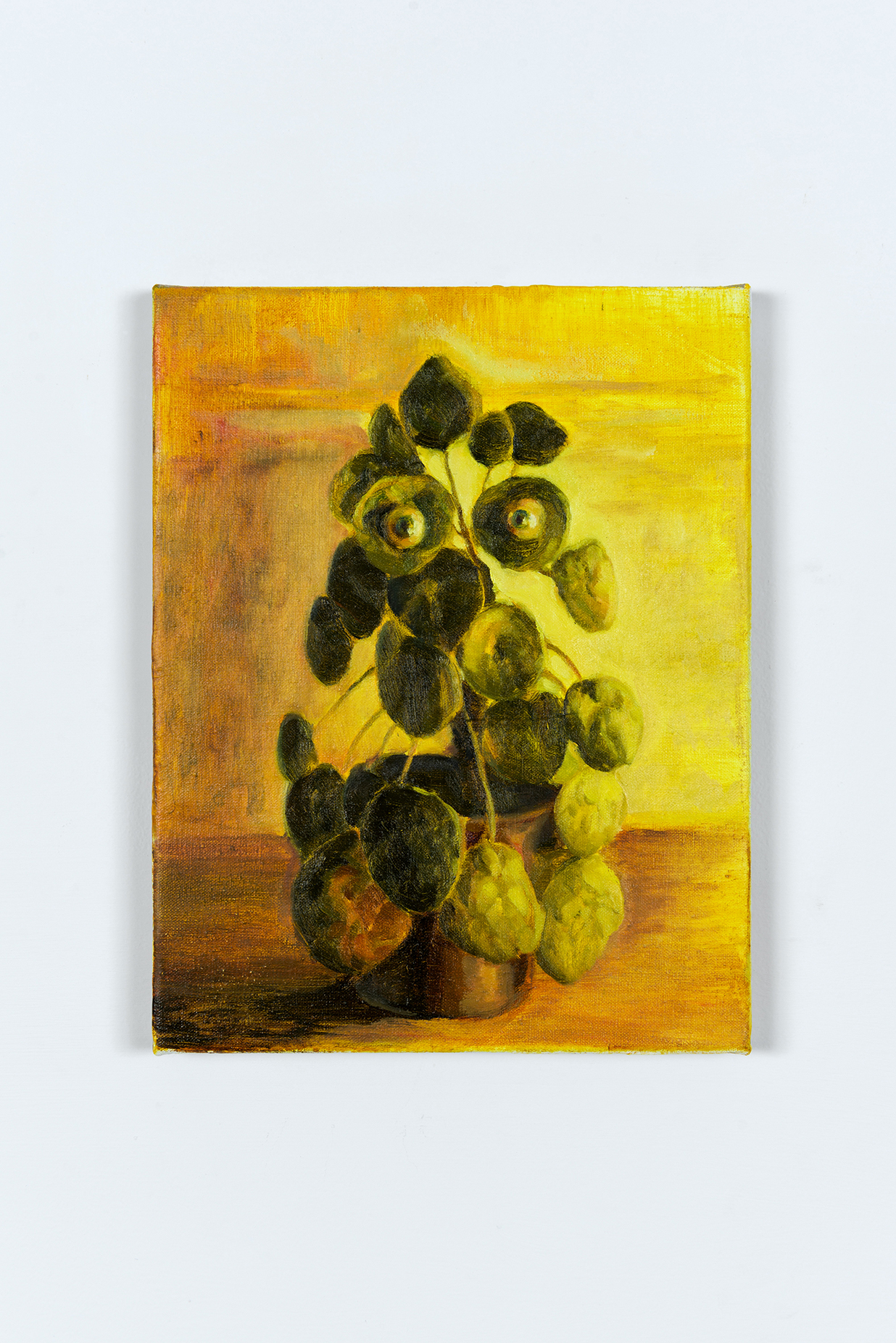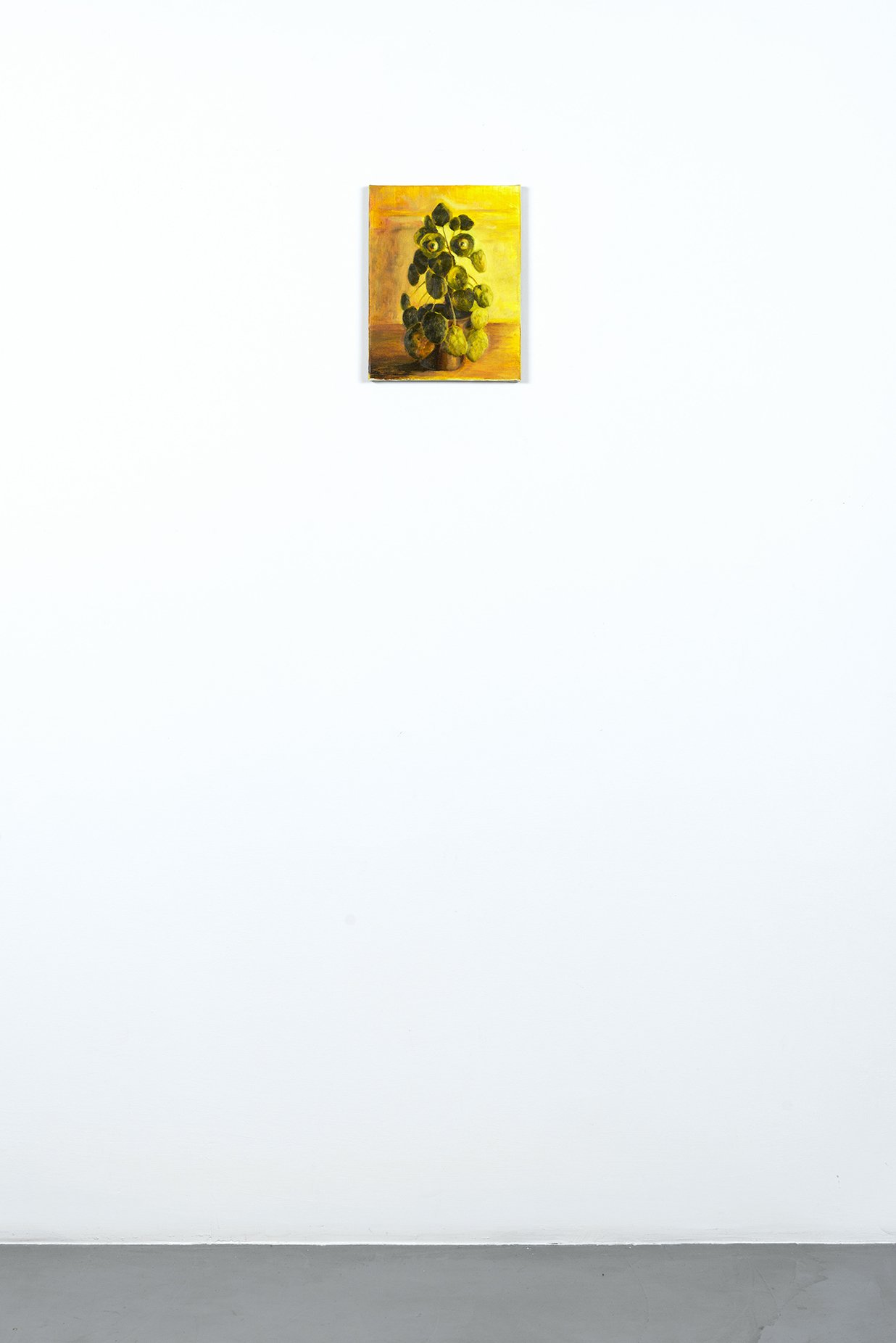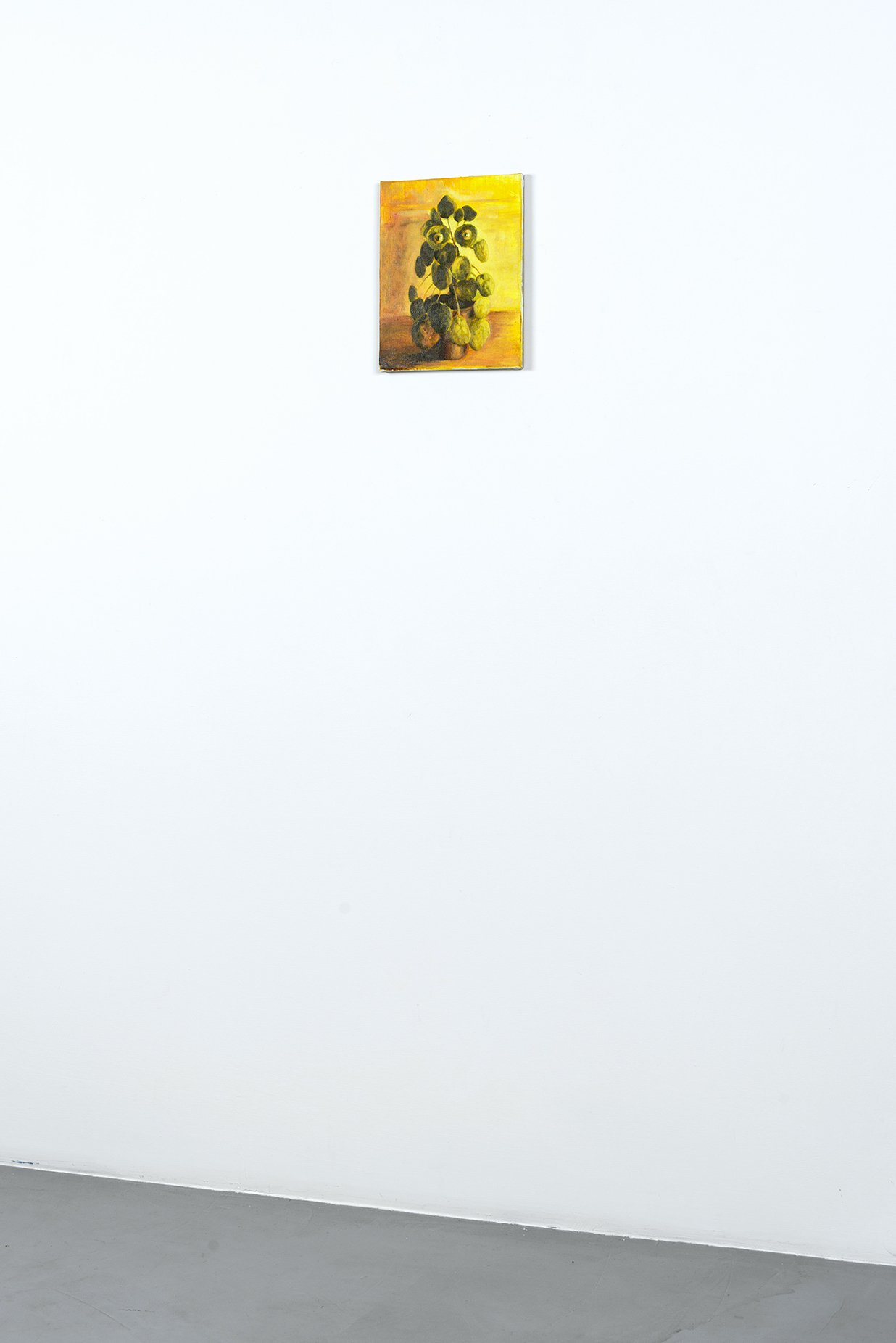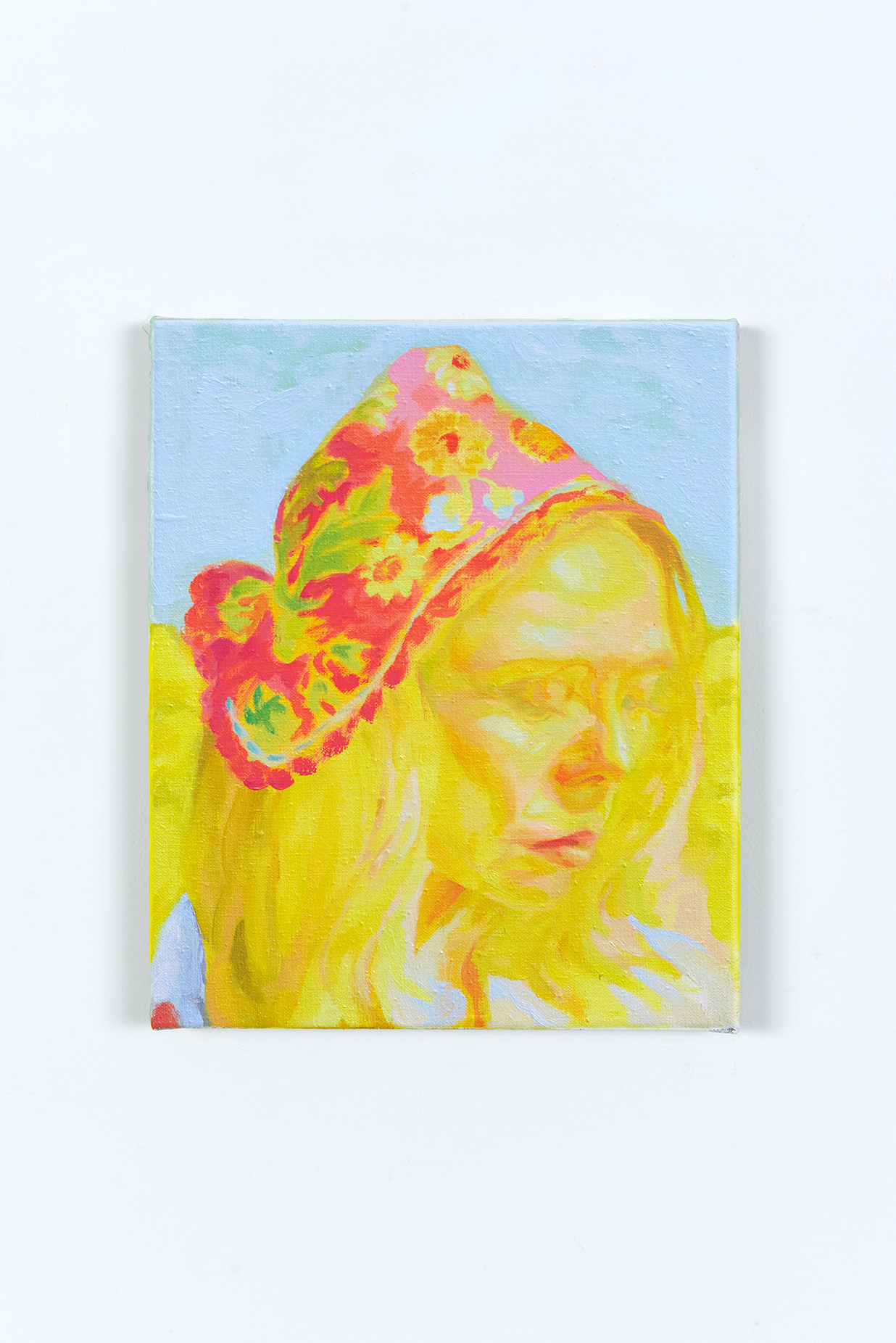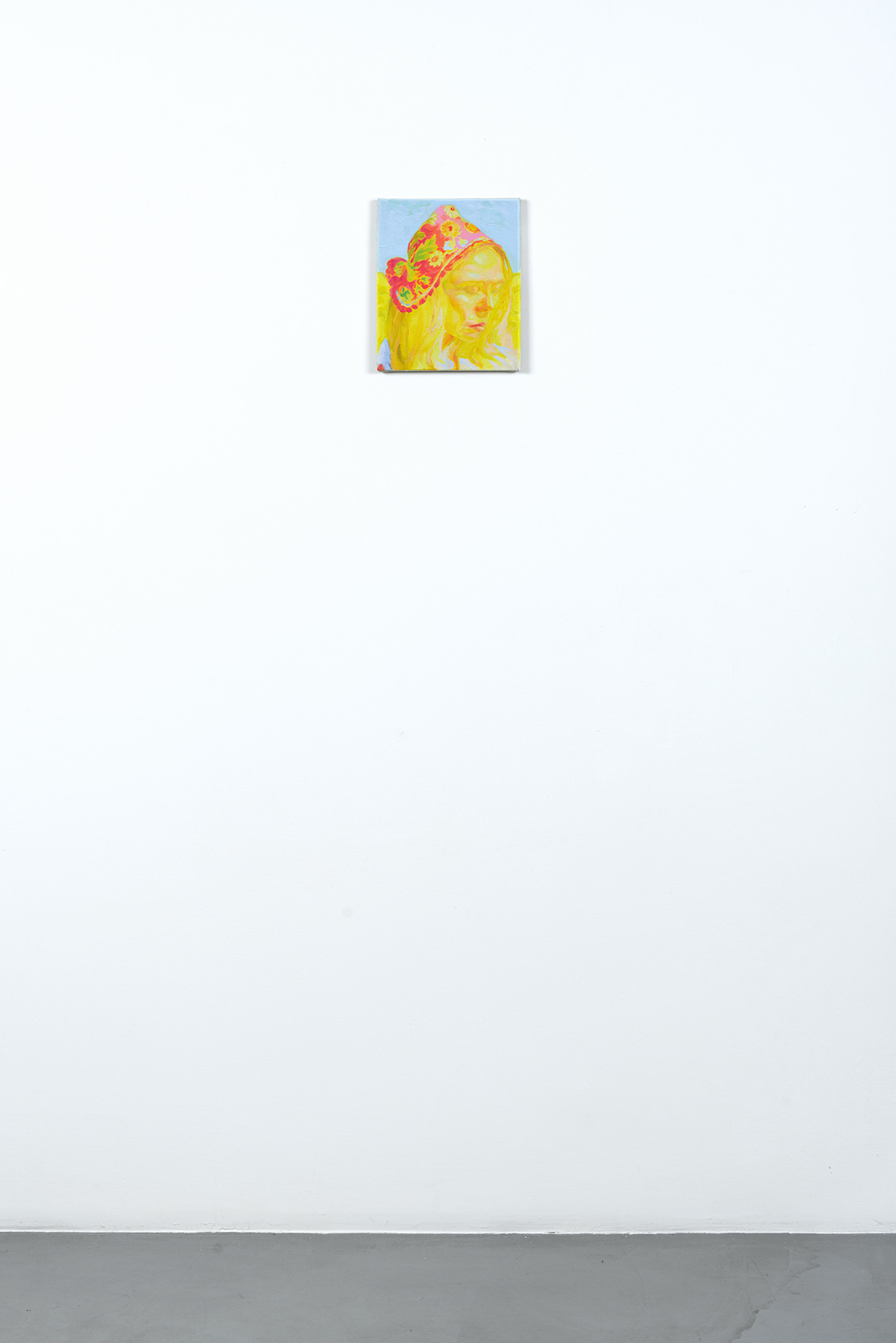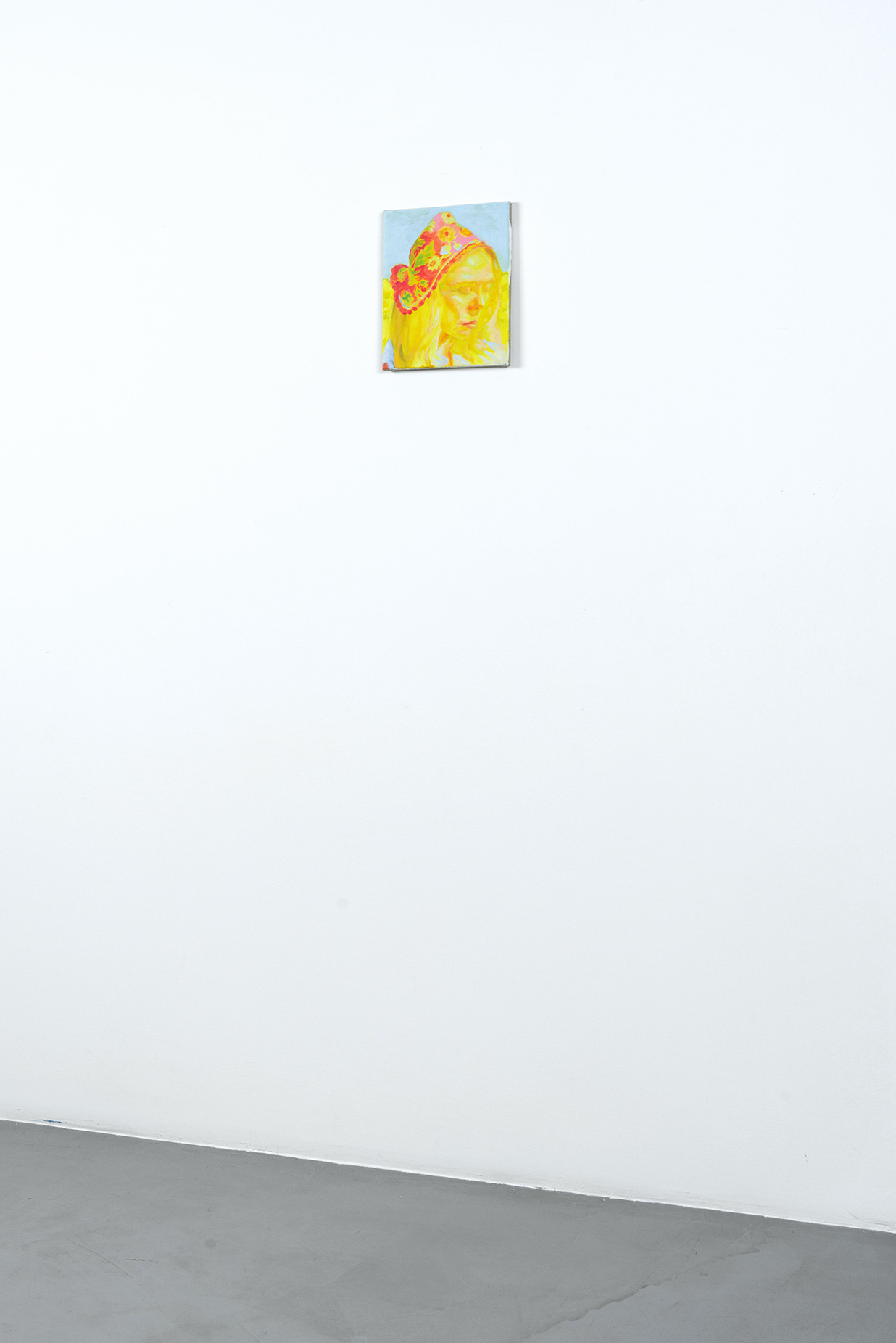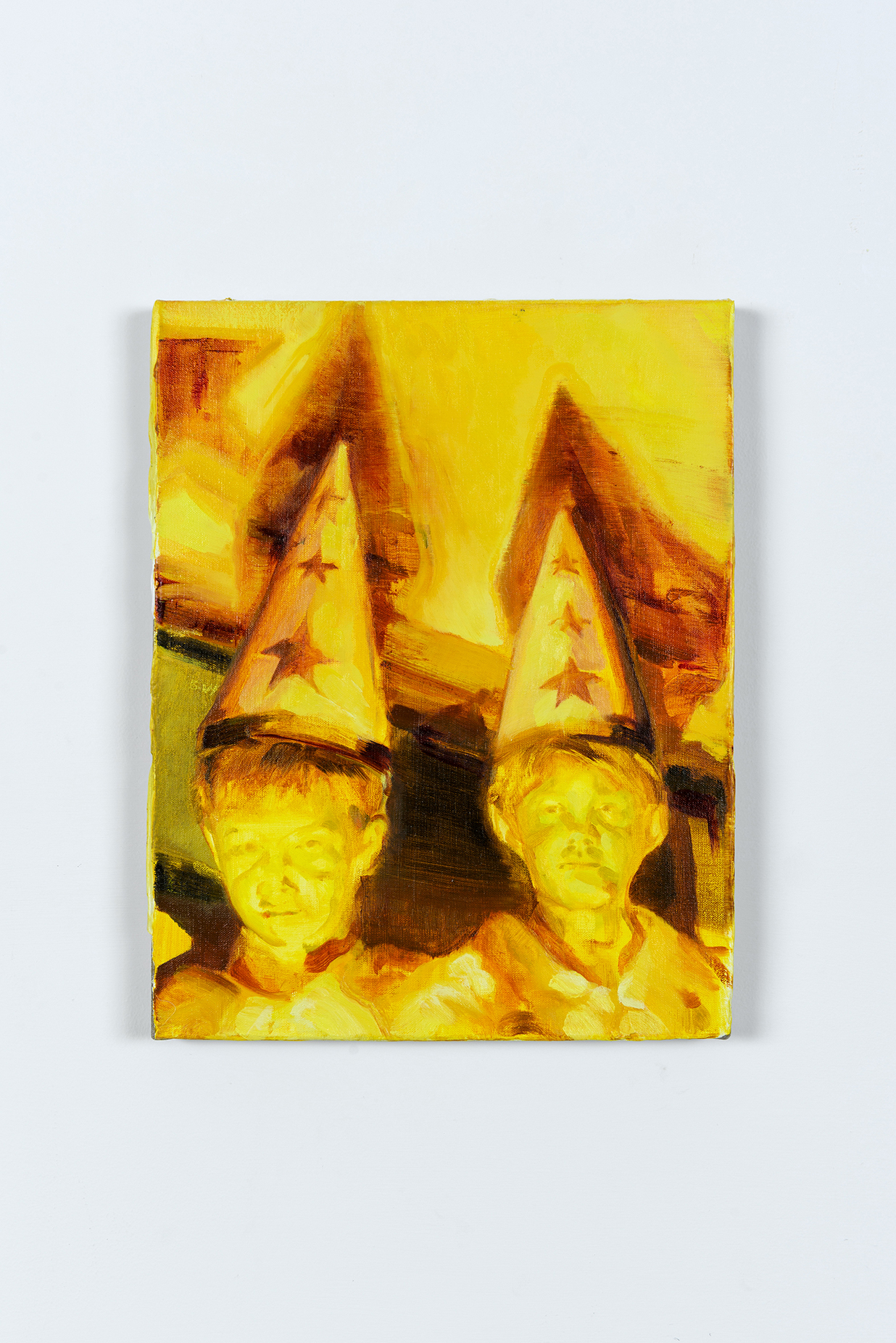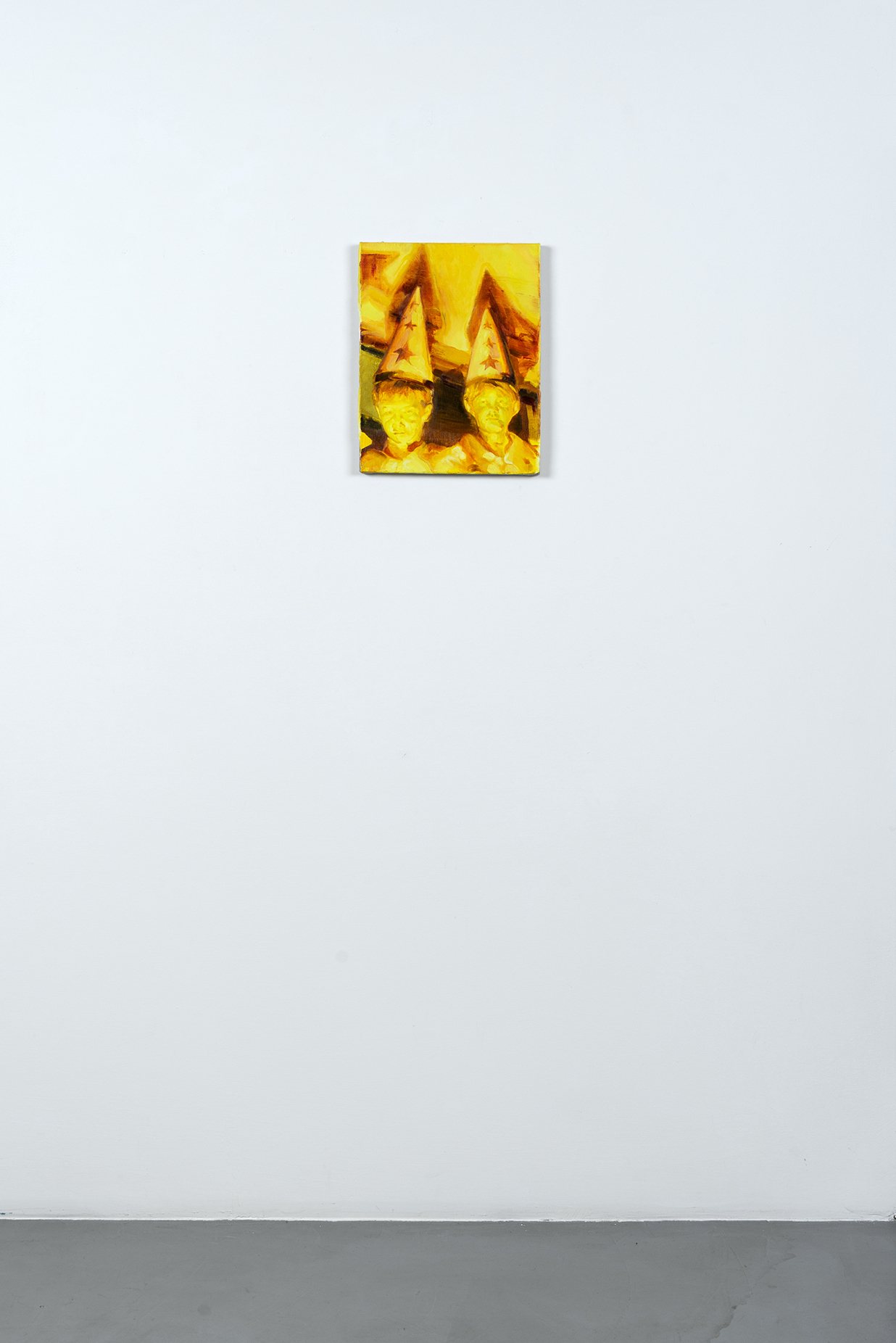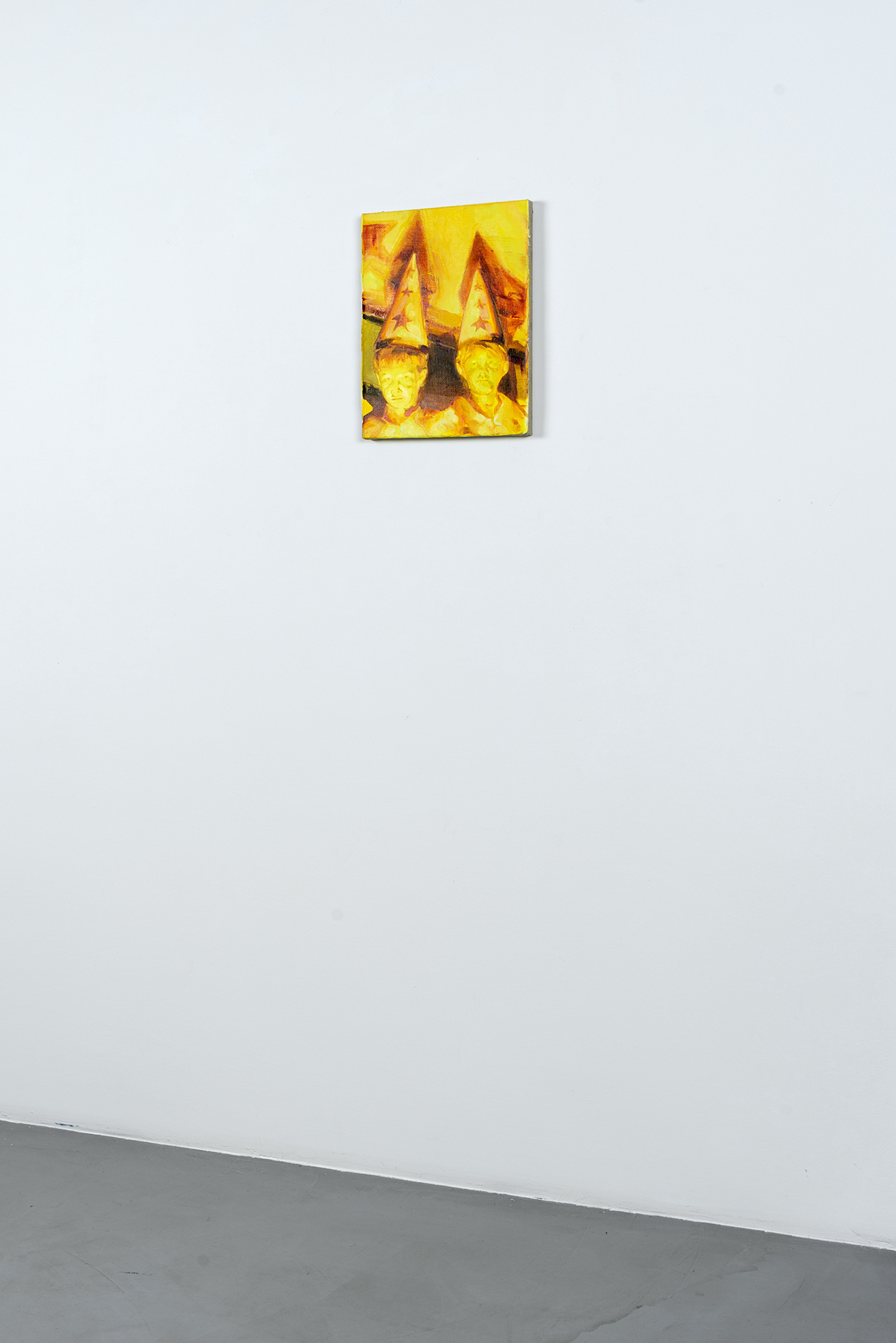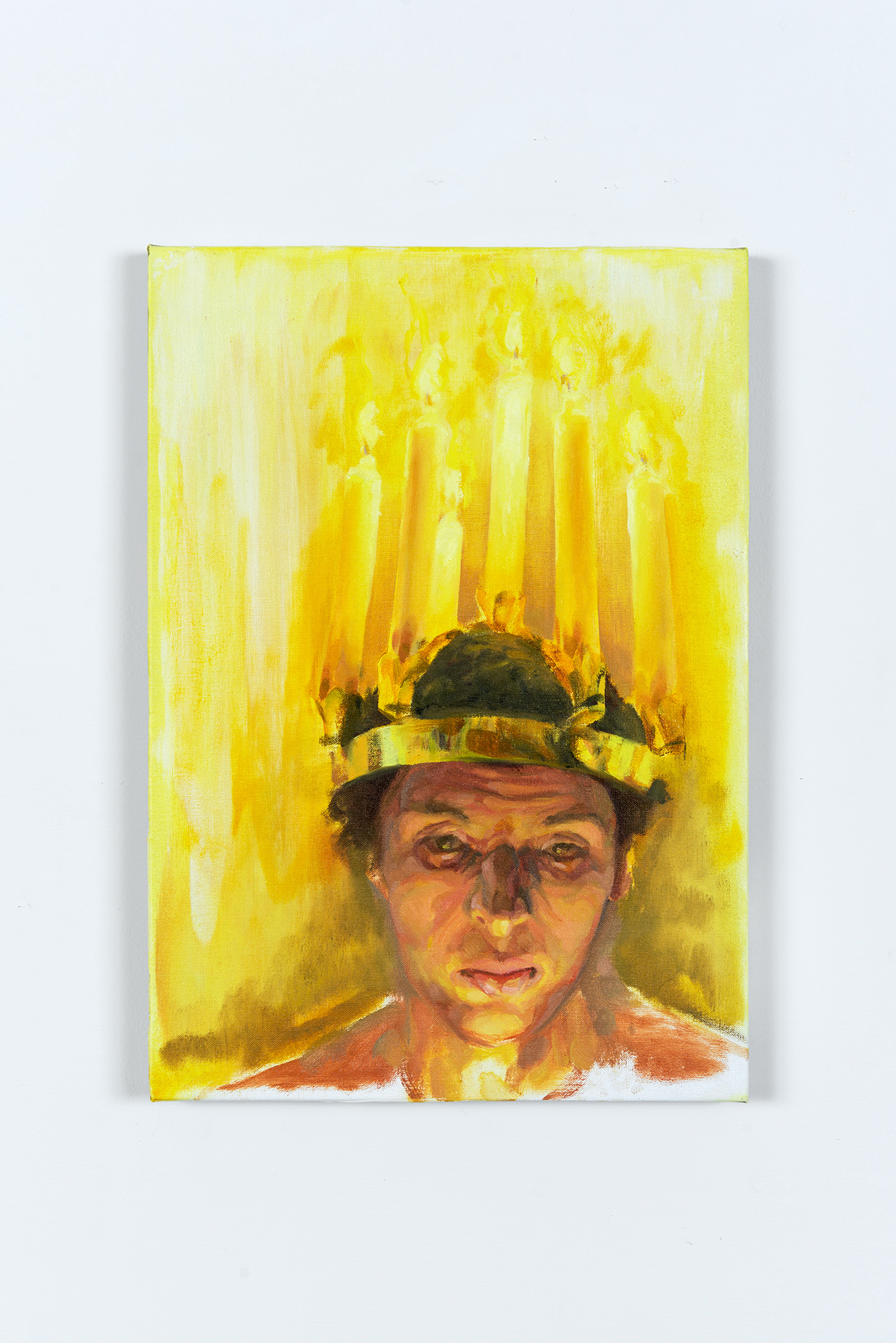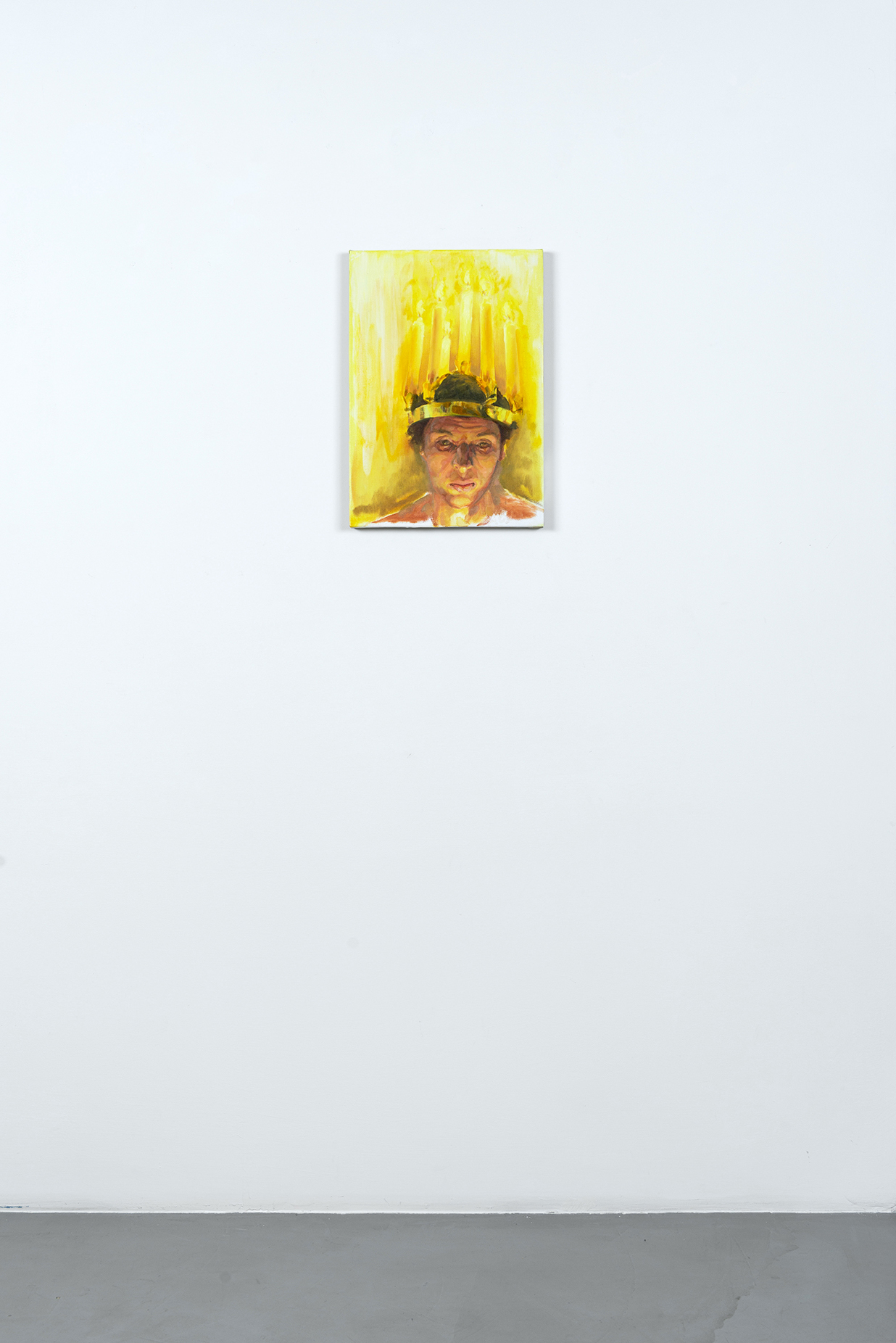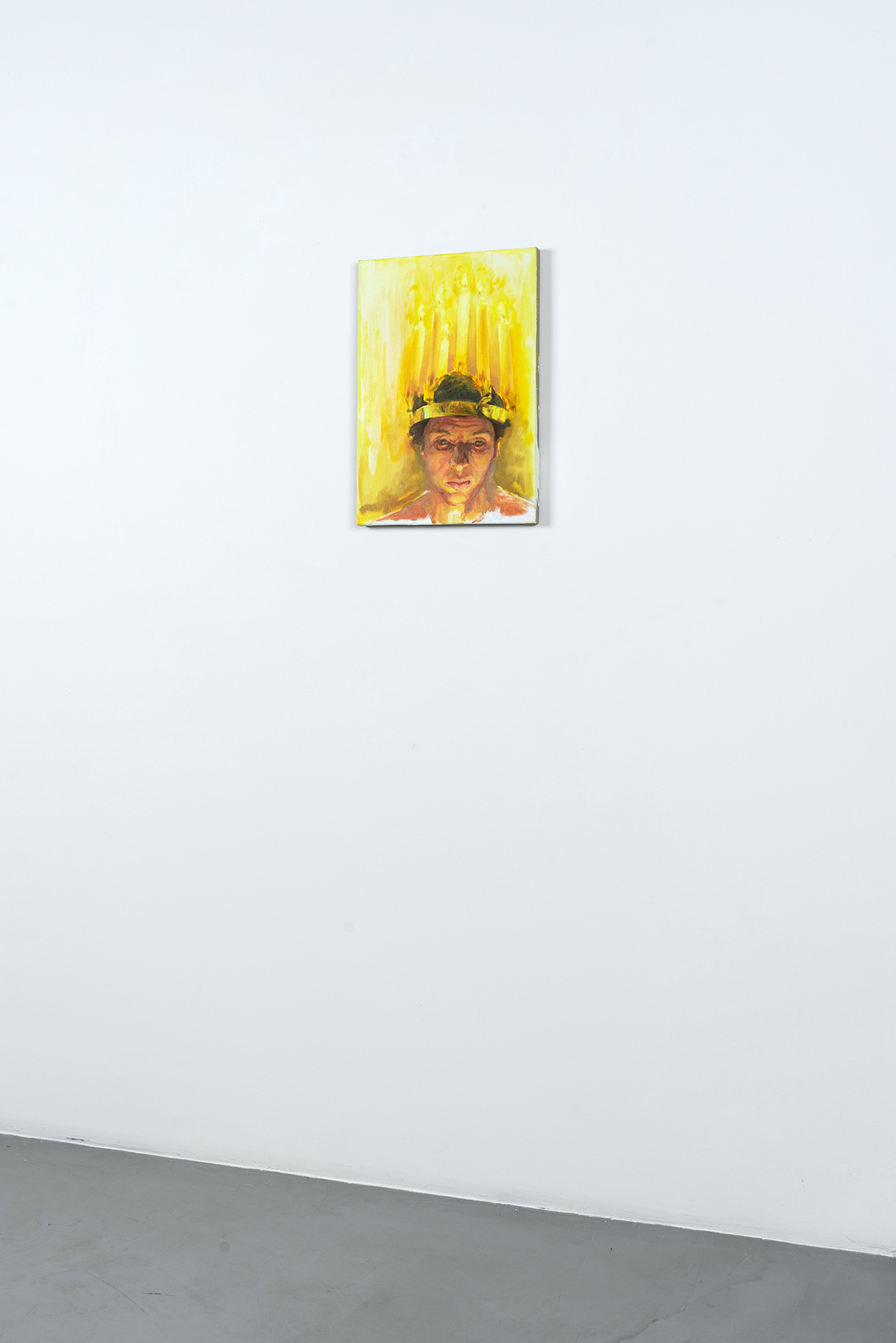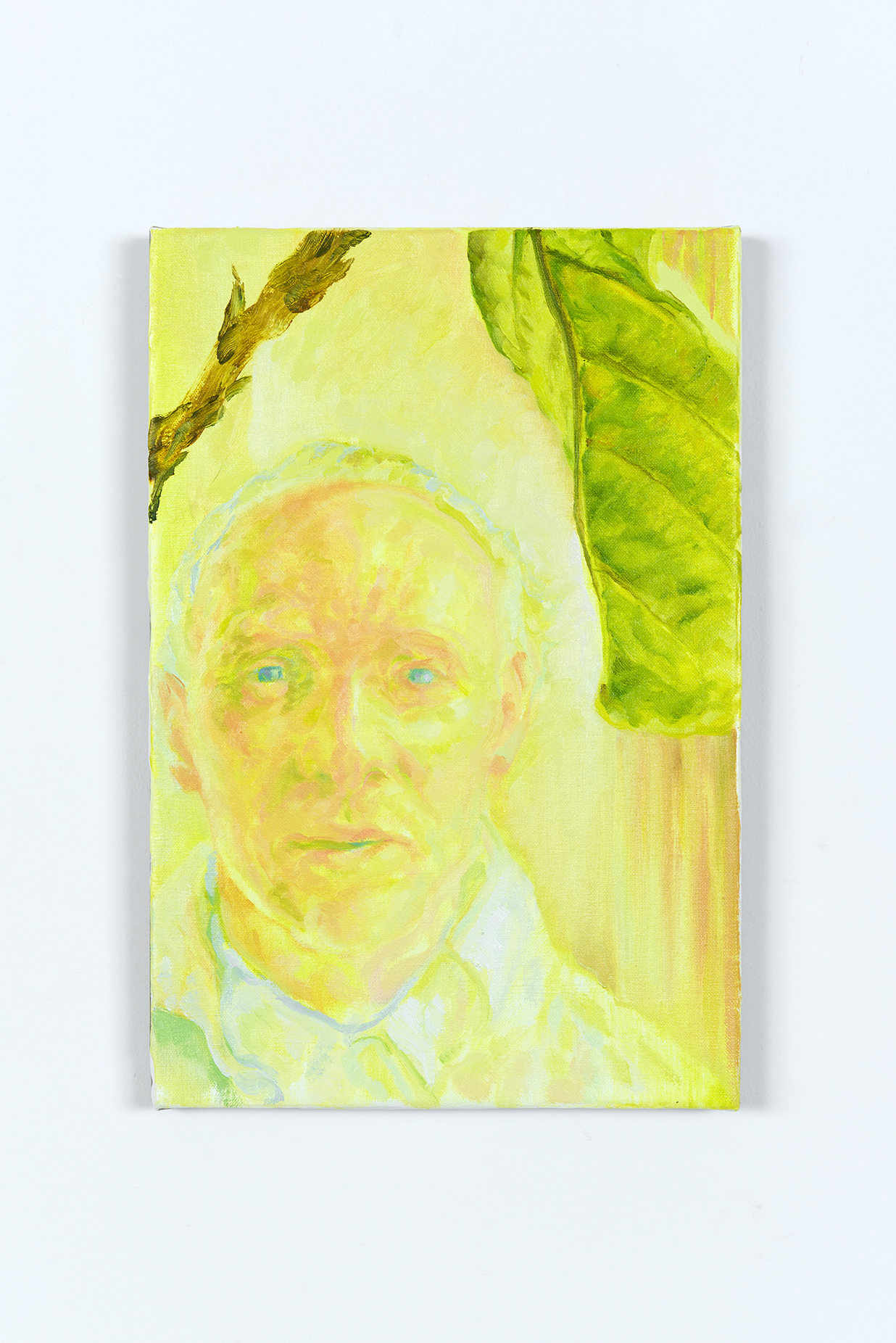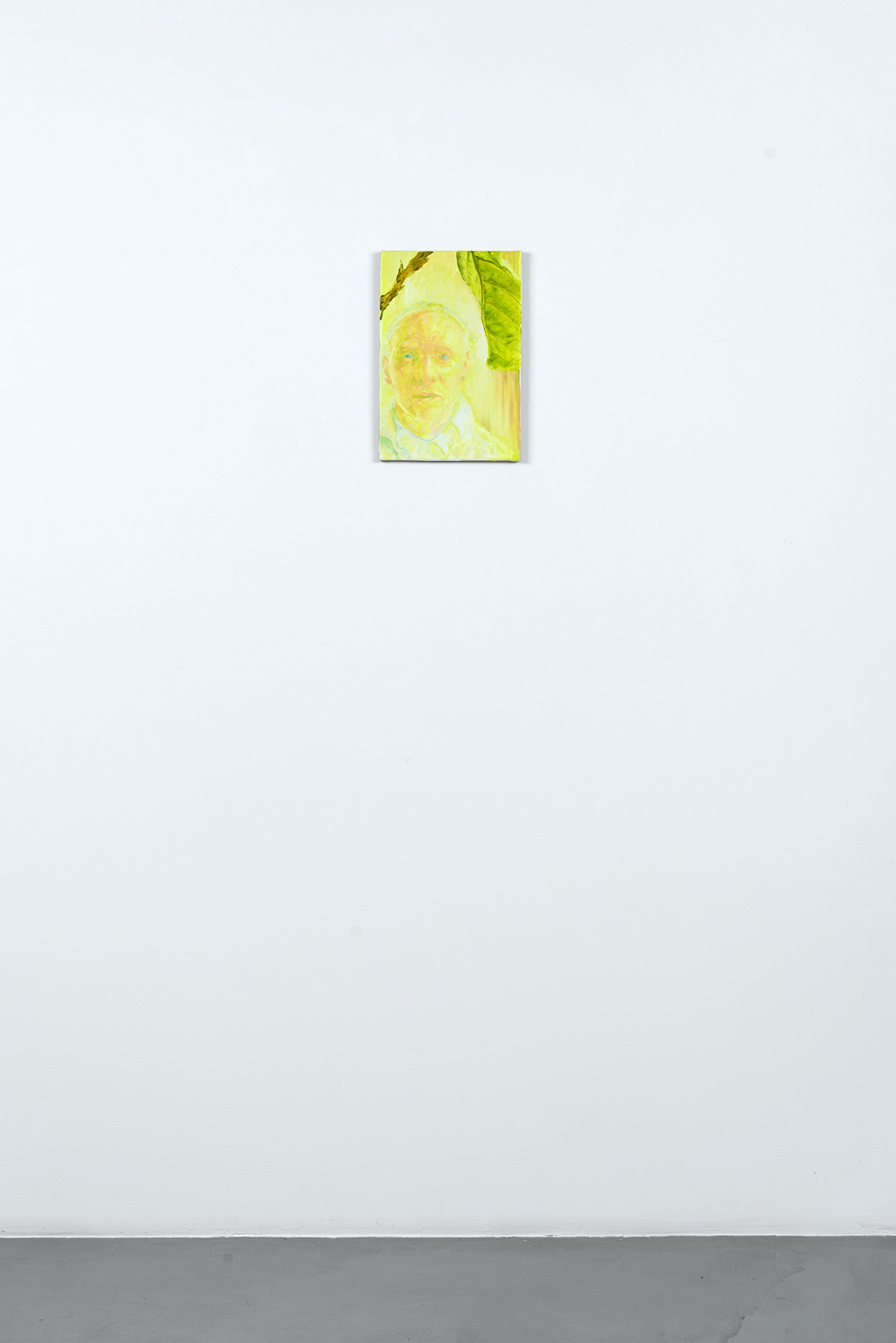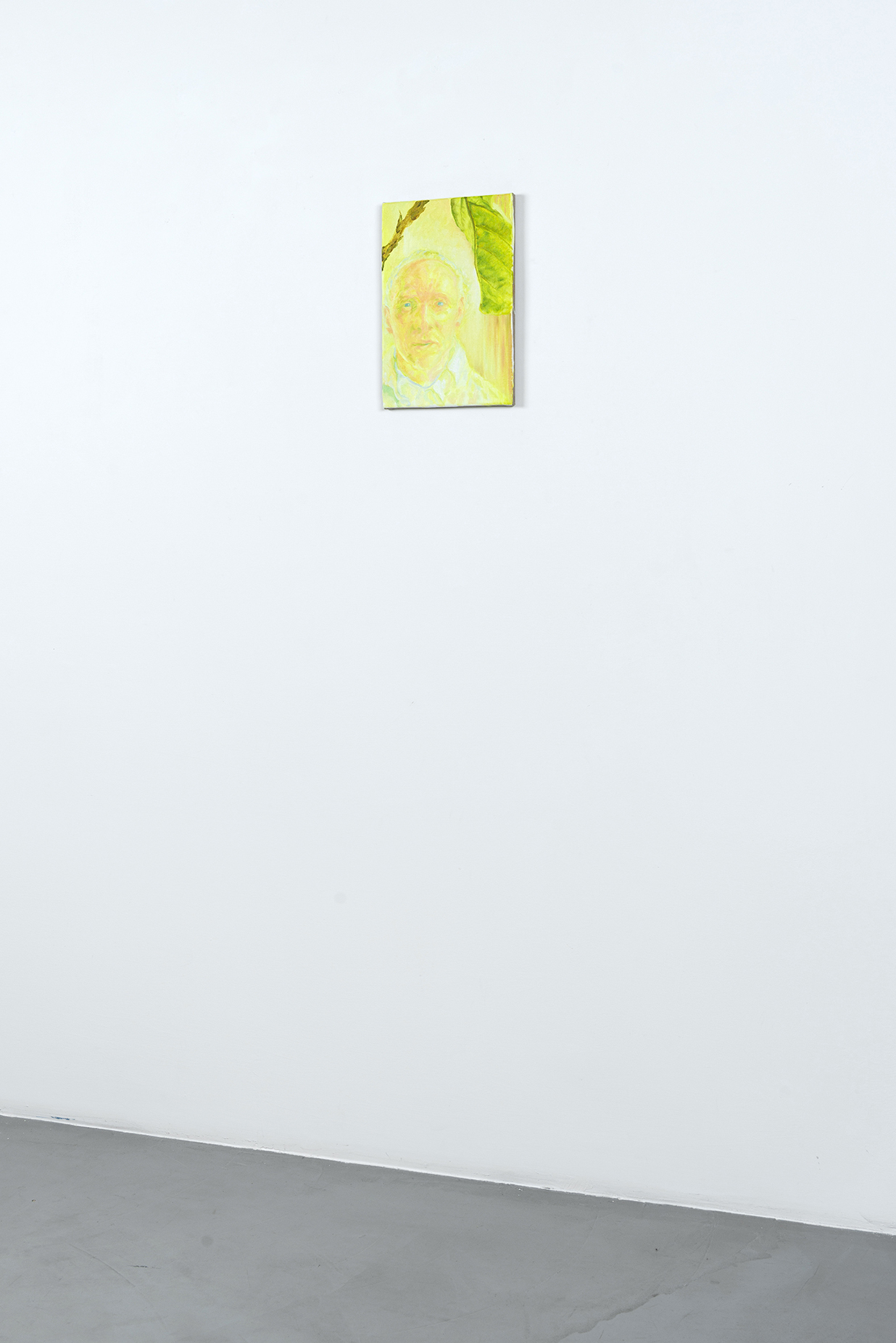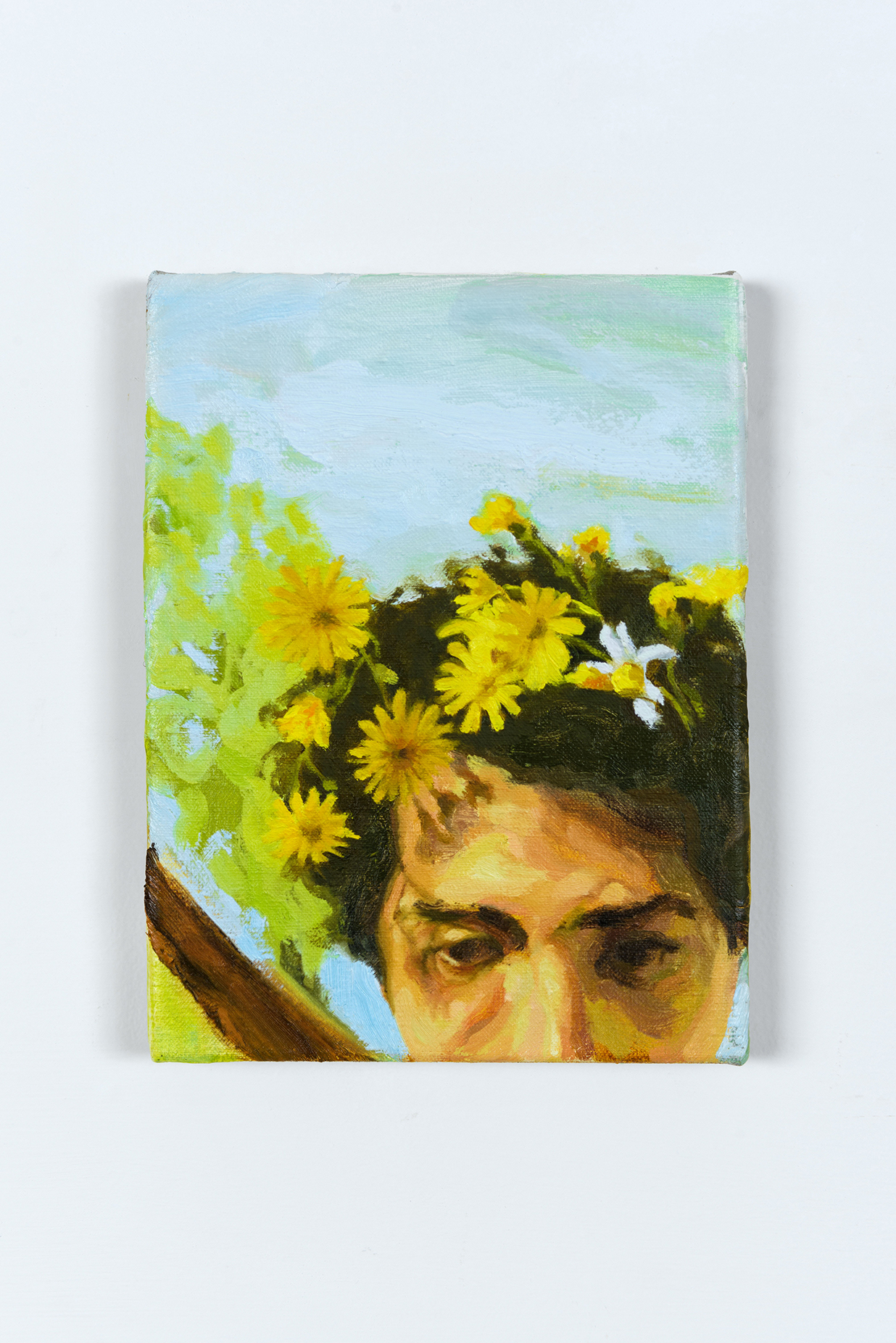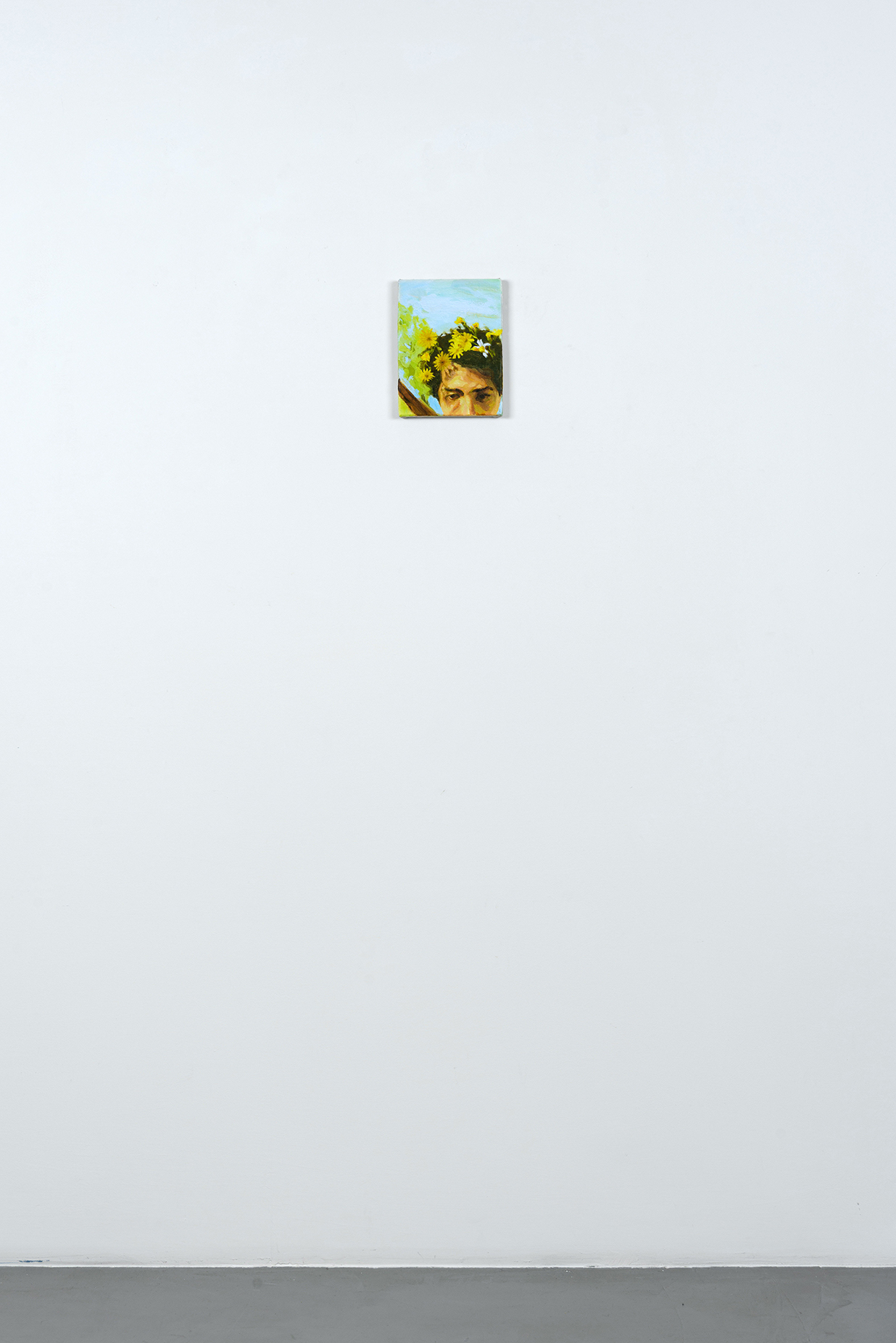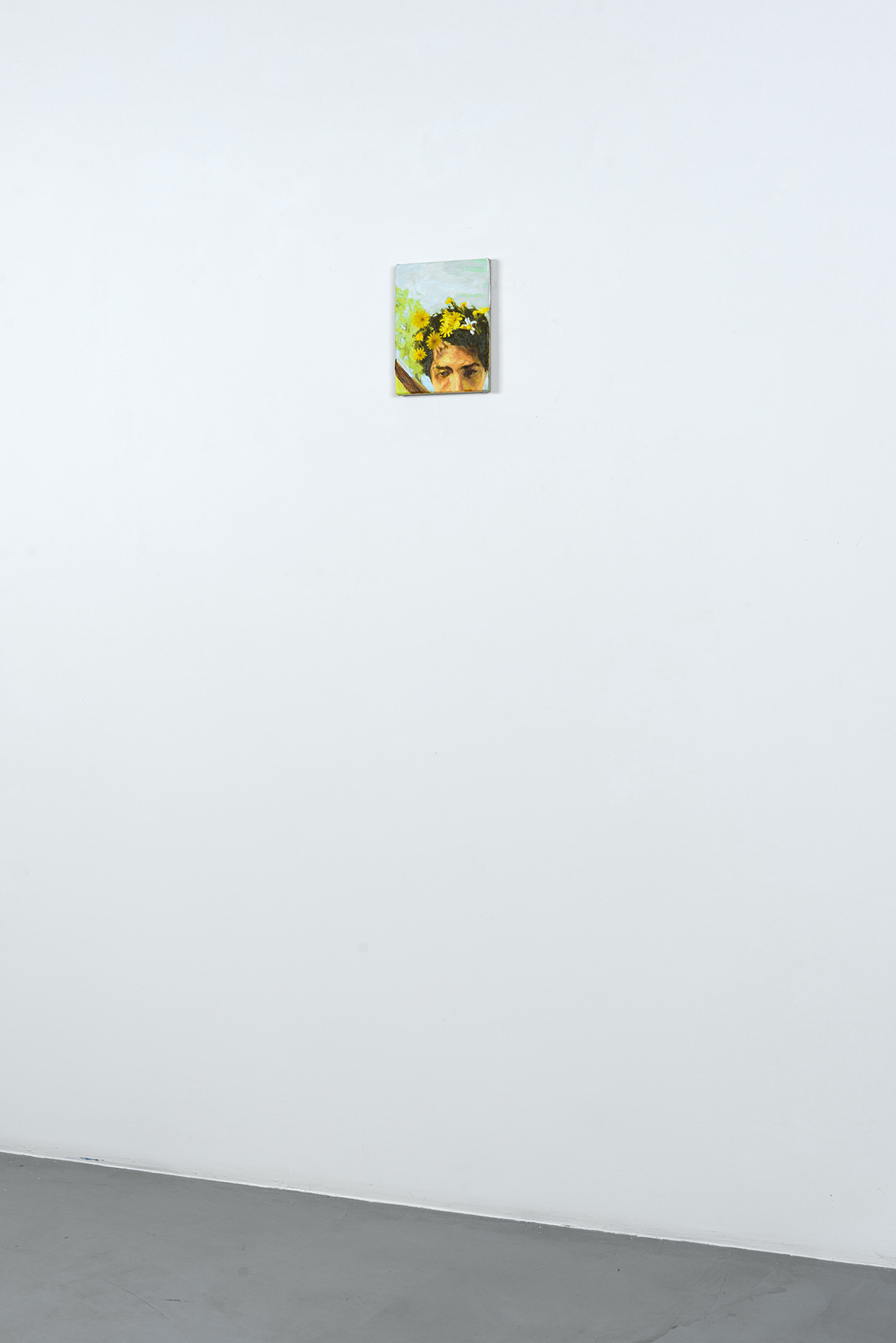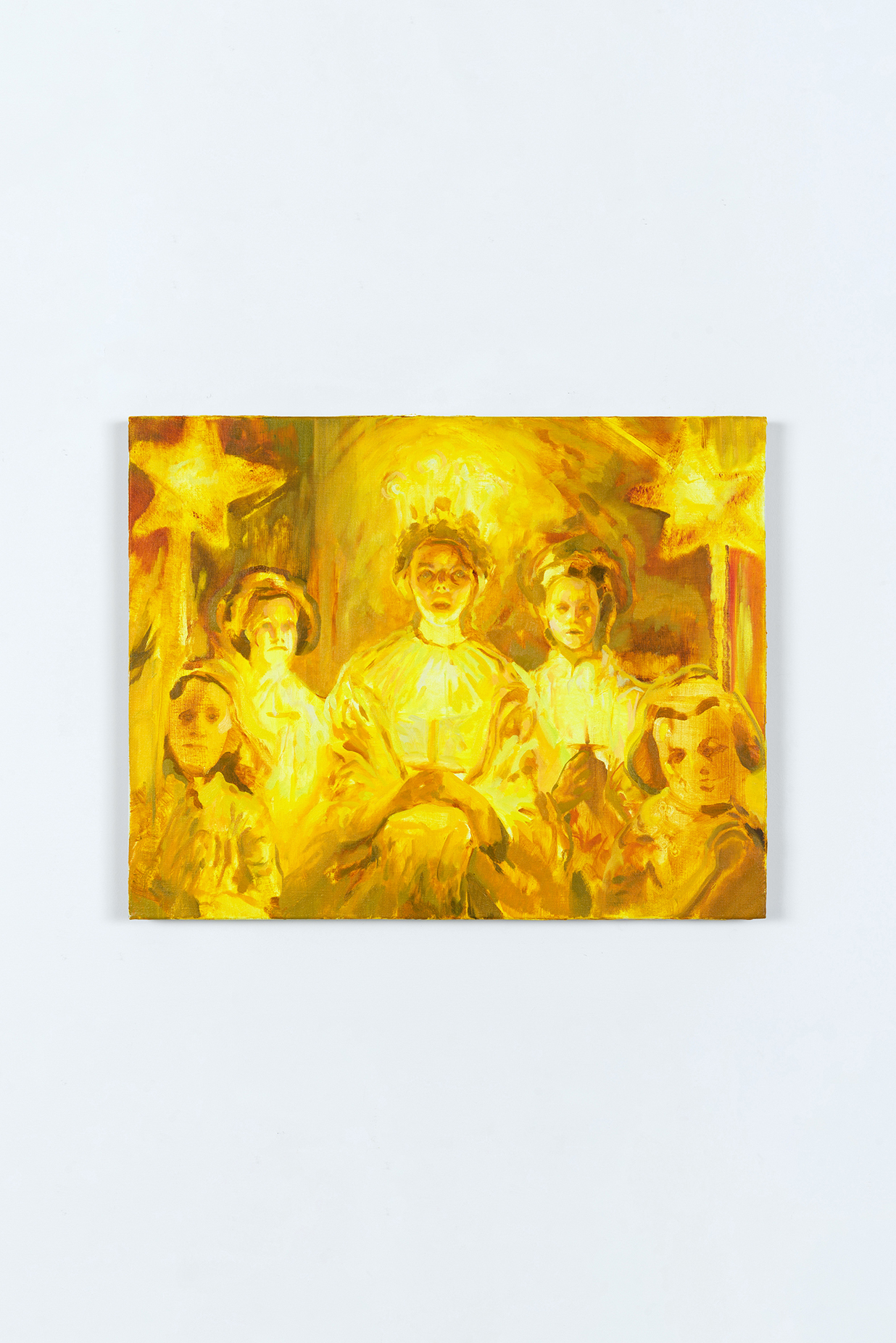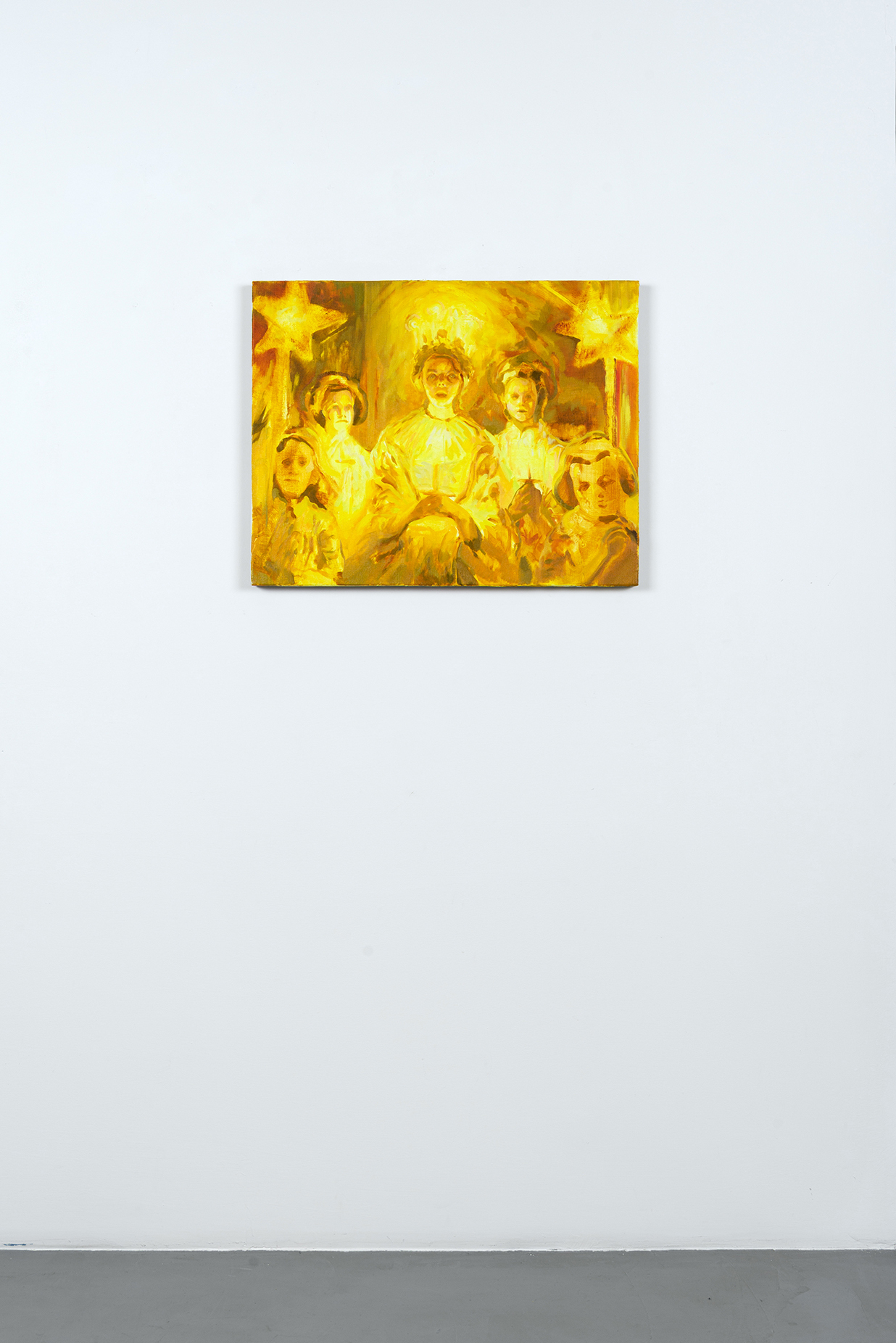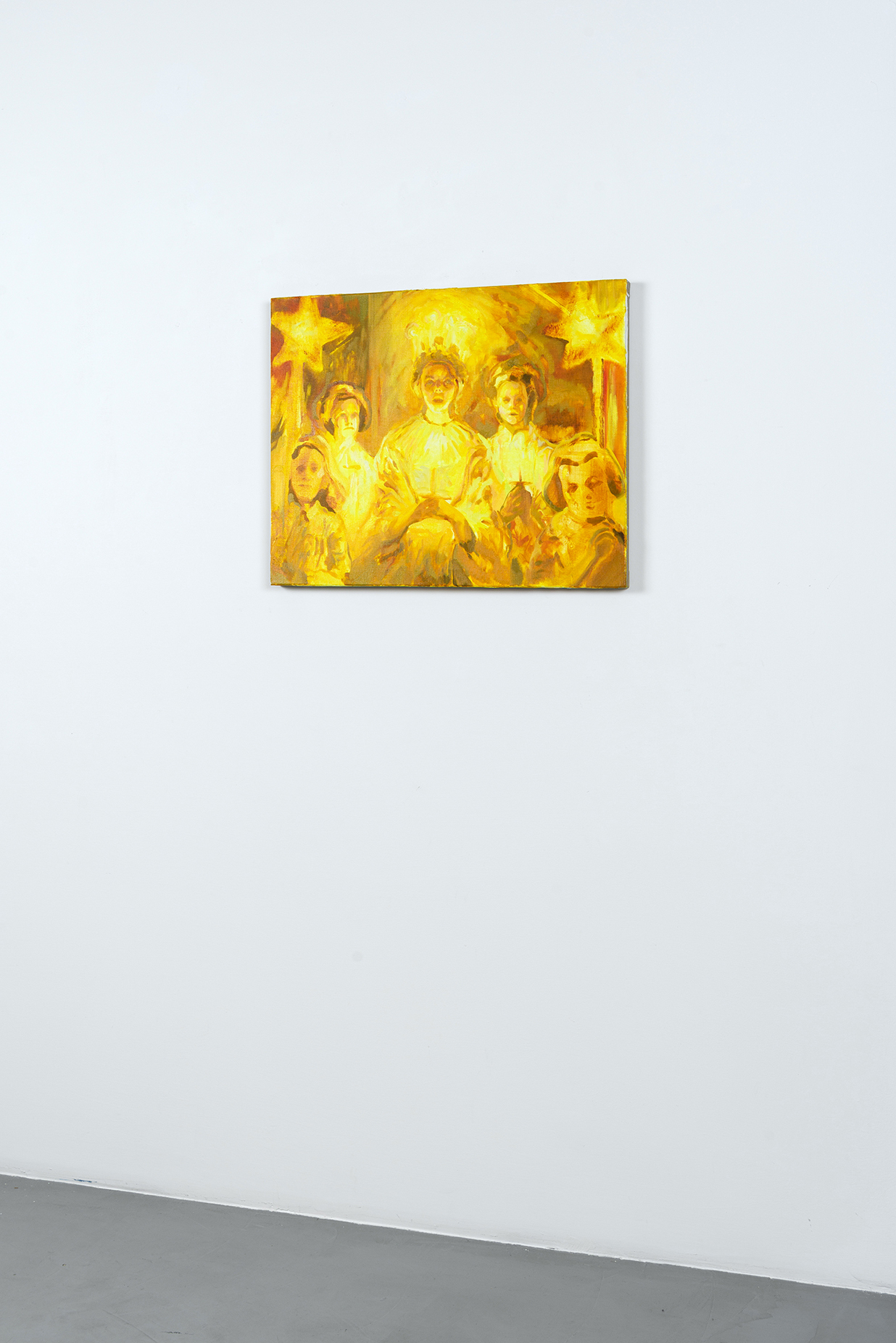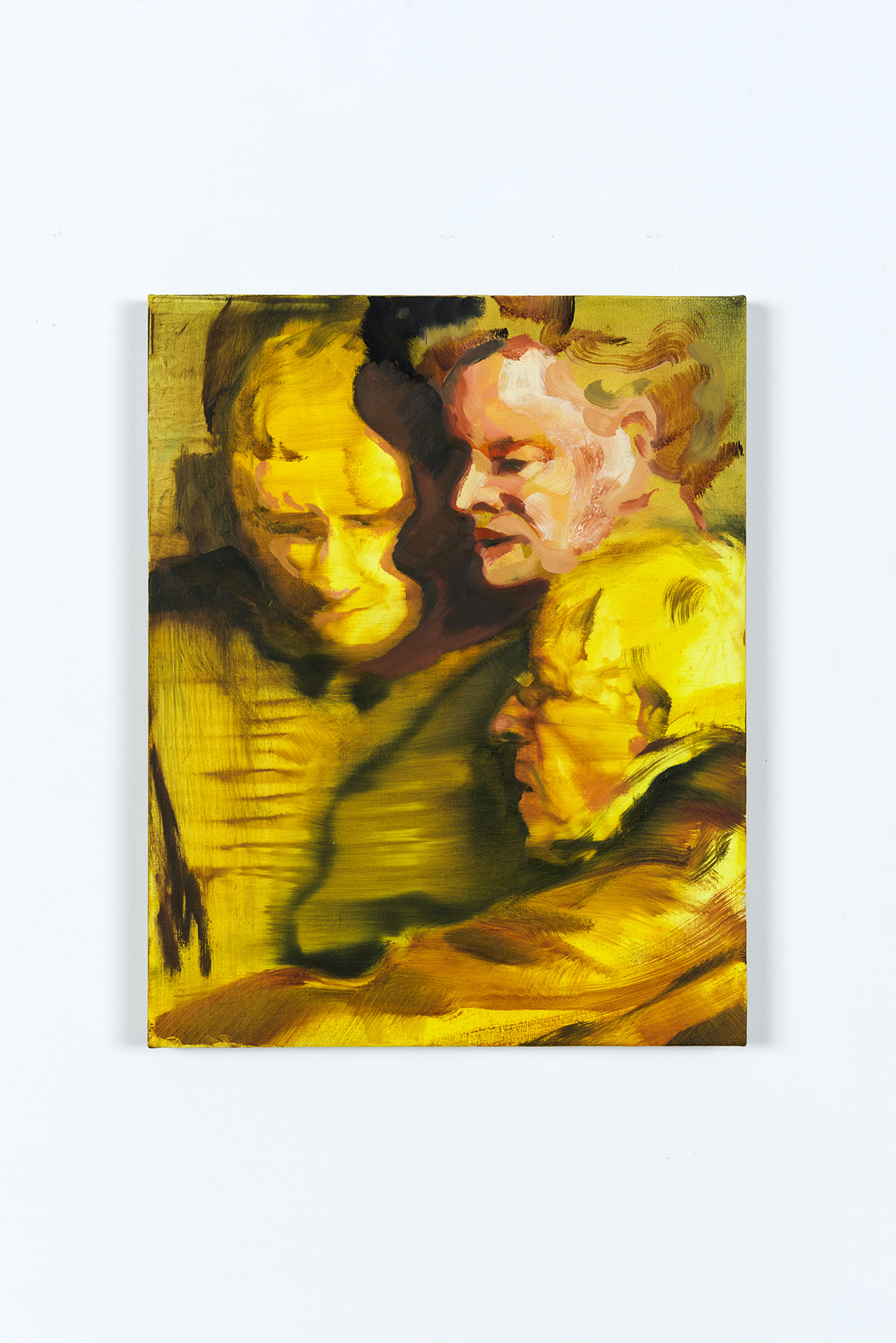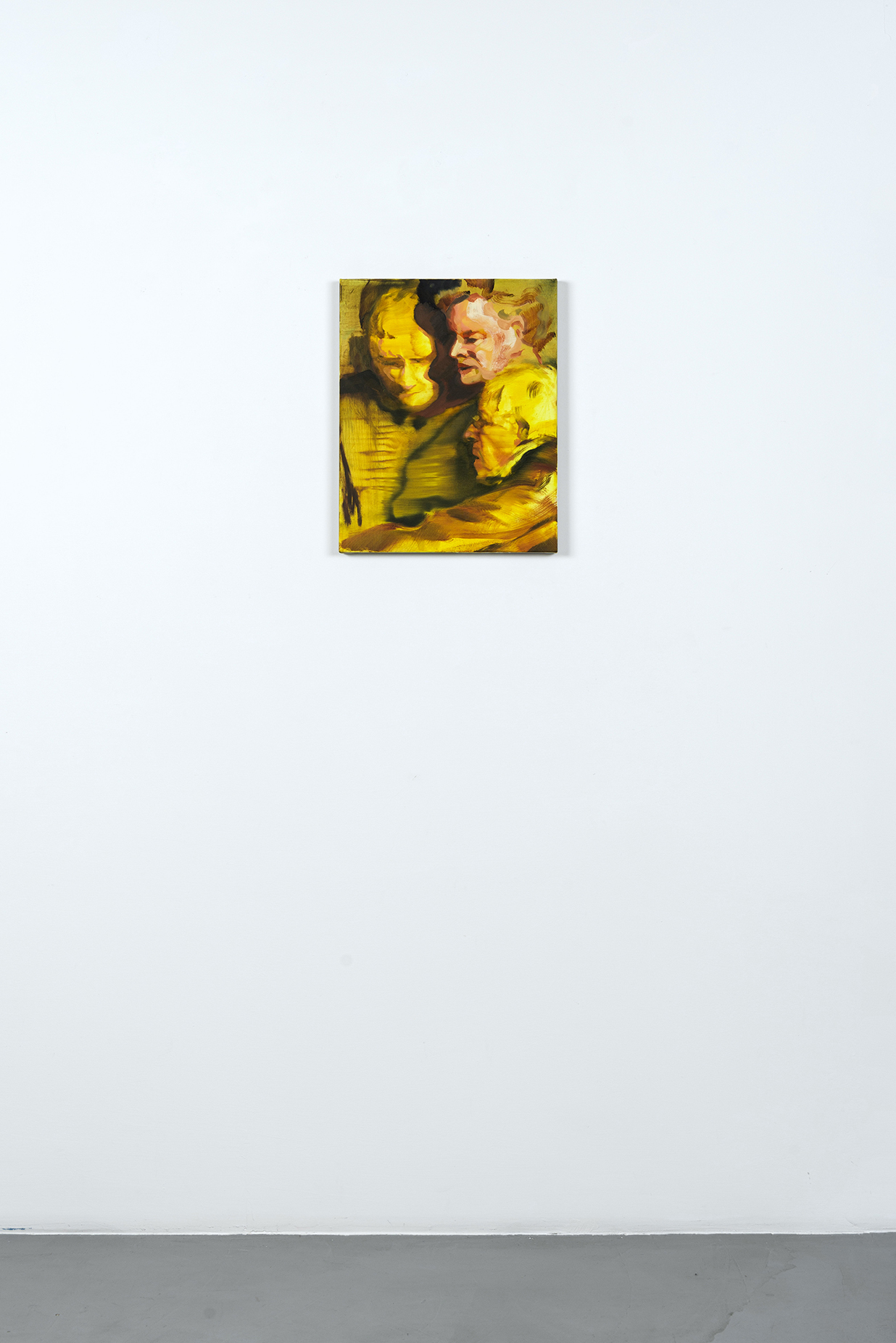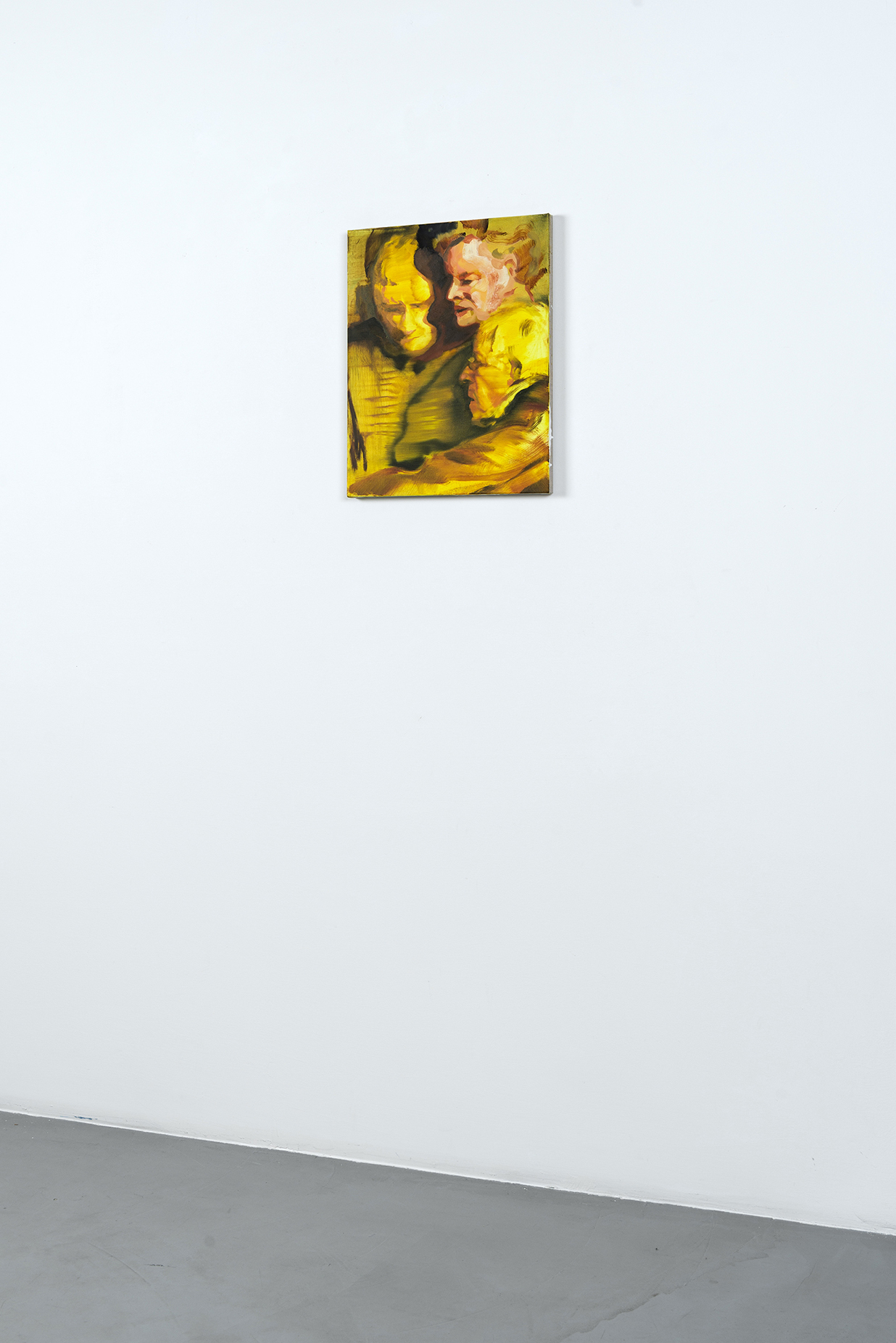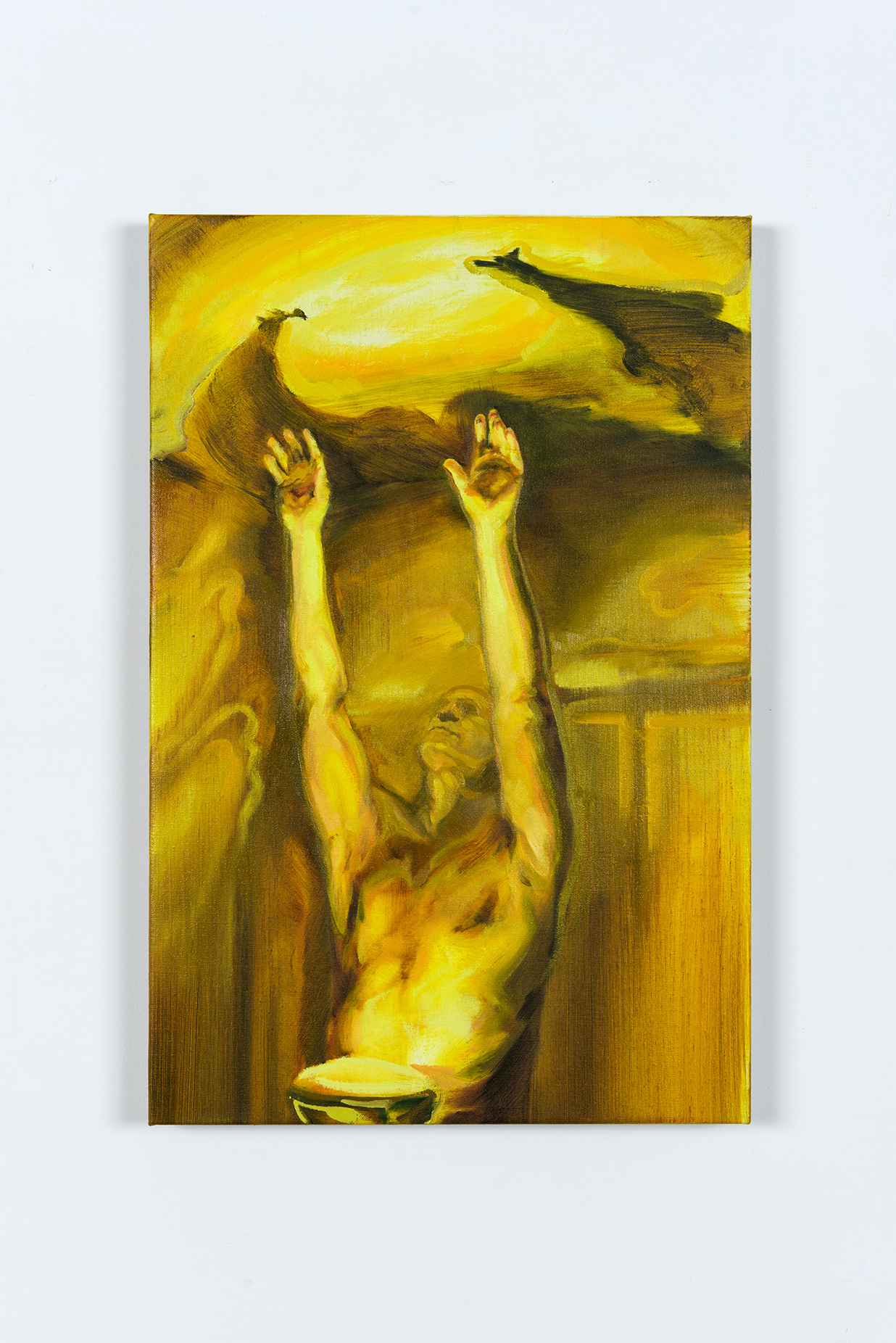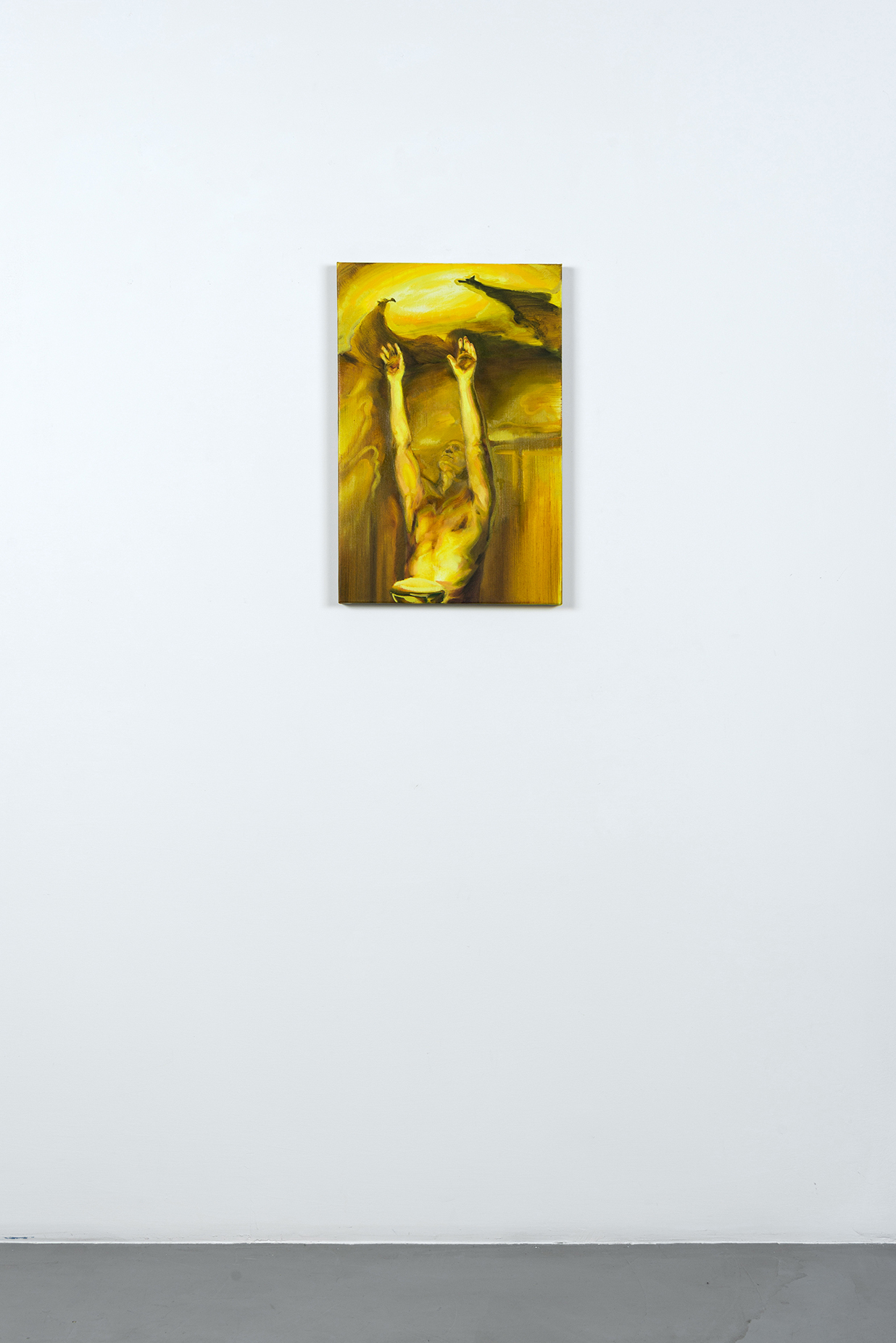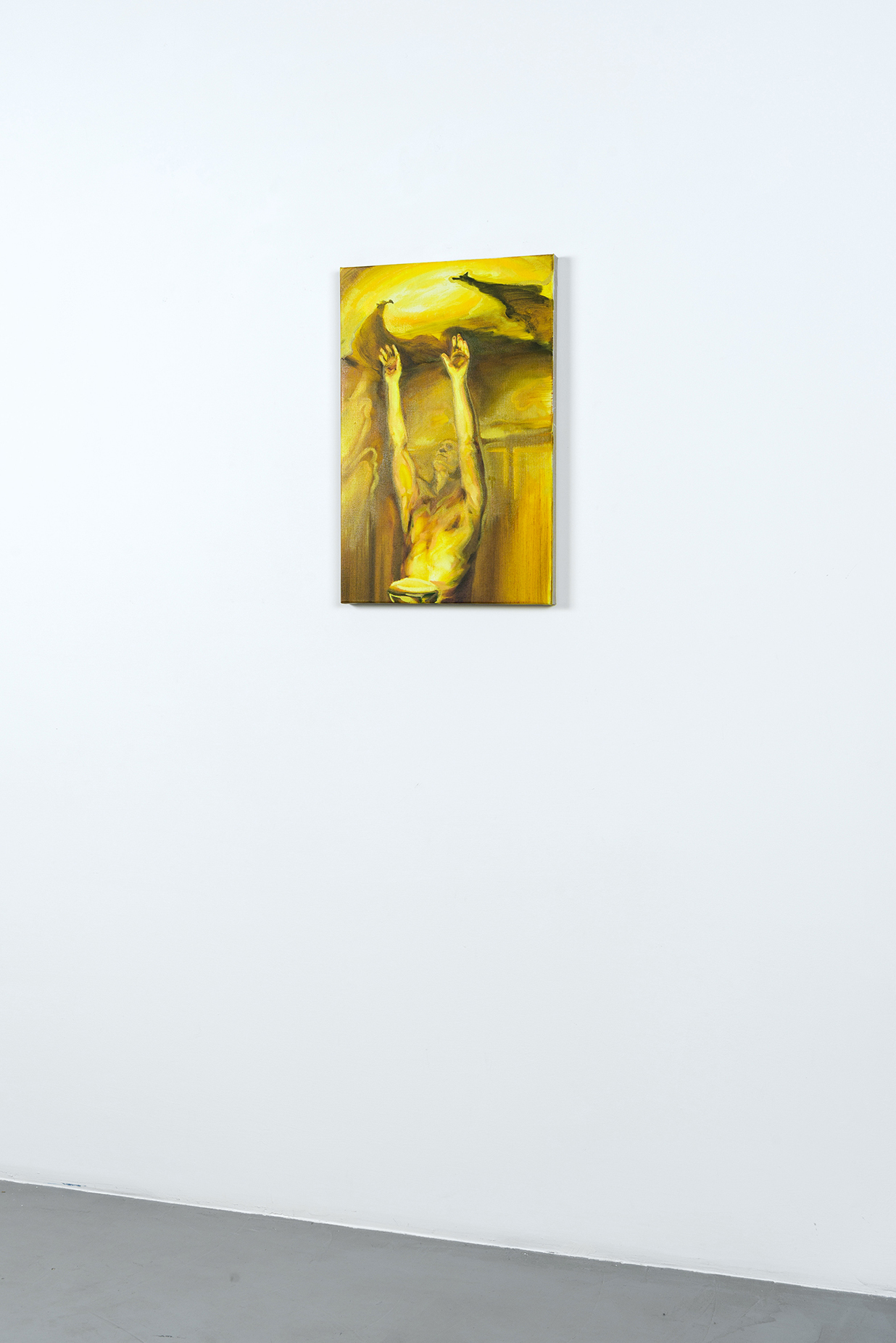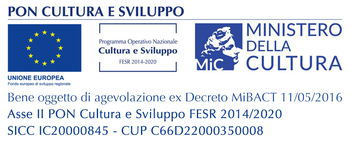Noah Beyene’s work offers a deeply personal exploration of the human form, psychological states, and our relationship with the world around us. A graduate of mixed Ethiopian and Swedish heritage, his canvases bridge the gap between the visible and the felt, transforming moments of quiet introspection and vulnerability into poignant visual narratives. Through his art, Beyene captures the fragility of intimacy, depicting friends and family in compositions that challenge the conventions of contemporary figurative painting.
The work of Noah is challenging as it offers the audience a duality, creating a welcoming and beautiful feeling while depicting something more unsettling, thus creating a powerful friction between the image and the emotions it evokes.
Beyene’s background in photography and his acclaimed work as a lighting director are evident in his artistic process. He carefully arranges and photographs his subjects in real-life settings before translating them into oil paintings, imbuing each work with a unique cinematic quality. His masterful use of light and bold color palettes creates scenes that are both meticulous in detail and evocative in atmosphere, oscillating between photorealism and emotional abstraction.
The color yellow is a powerful and prominent motif in Beyene’s practice, it is the center of its palette. In Judeo-Christian traditions, the color is often controversial, symbolizing both divine light and betrayal, as seen in depictions of Judas. In Beyene’s paintings, it takes on additional layers of meaning, representing abundance and belonging, while also naturally representing light shades, closing the loop with the artist’s photography background.
A centerpiece of the exhibition, the painting “Miracle of the Black Leg”, re-examines a gruesome Western art historical myth through a personal and familial lens. The original legend, believed to be the first time an Ethiopian was painted in Western art, depicts the sacrifice of a black man to save a white man. Beyene reclaims this narrative by reimagining it as a tranquil domestic scene.
As the artist states it: «My version reimagines this myth through a familial lens. My mother and father sit on a sofa, calmly looking at me – I’m dressed in a robe, legs resting on a table. On the table stand a pot of coffee, an Ethiopian cross, and a small concrete lion – shared cultural signifiers that float between Swedish and Ethiopian heritage».
These symbols – coffee, the cross, and the lion – take on new meaning within the context of the painting, serving as anchors of identity and resilience. Beneath the table, a seemingly mundane detail – a vacuum cleaner with a black sock caught in its nozzle – serves as a nod to «the messiness beneath symbols, to what we try to erase or contain».
Noah Beyene’s paintings invite a dialogue not just with the subjects on the canvas, but with our own inner lives, revealing the extraordinary depth of feeling that exists within the quietest corners of our daily existence. Mourning Light is a powerful reminder that our most intimate stories are often the most profound. (VVB)
Read less
Noah Beyene’s work offers a deeply personal exploration of the human form, psychological states, and our relationship with the world around us. A graduate of mixed Ethiopian and Swedish heritage, his canvases bridge the gap between the visible and the felt, transforming moments of quiet introspection and vulnerability into poignant visual narratives. Through his art, Beyene captures the fragility of intimacy, depicting friends and family in compositions that challenge the conventions of contemporary figurative painting.
The work of Noah is challenging as it offers the audience a duality, creating a welcoming and beautiful feeling while depicting something more unsettling, thus creating a powerful friction between the image and the emotions it evokes.
Read more
